The Folder He Left Behind
My name is Laura, I'm 61, and I thought I knew what it meant to be careful with money. Growing up clipping coupons from the Sunday paper and watching my mother stretch a grocery budget taught me the value of every dollar. I carried those lessons through my 32 years as a bank teller, where I helped countless people manage their finances while carefully building my own nest egg. When I married Harold, I found a kindred spirit who could make a dollar go further than anyone I'd ever met. We weren't rich, but we were secure—at least that's what I believed. When Harold passed away last winter after a brief illness that took him far too quickly, I was devastated. The house felt emptier than I could have imagined. But Harold, ever the planner, had left everything in order. Three days after the funeral, while sorting through his desk, I found a manila folder labeled in his neat handwriting: "For Laura—Everything You'll Need." Inside were our insurance papers, property deeds, and a typed list of "trusted contacts." At the top of that list was Emily, his daughter from his first marriage. I'd known Emily for twenty years—always polite but somehow distant. As I stared at her name on that paper, I had no idea that this simple list would change everything I thought I knew about family, trust, and the man I'd been married to for eighteen years.
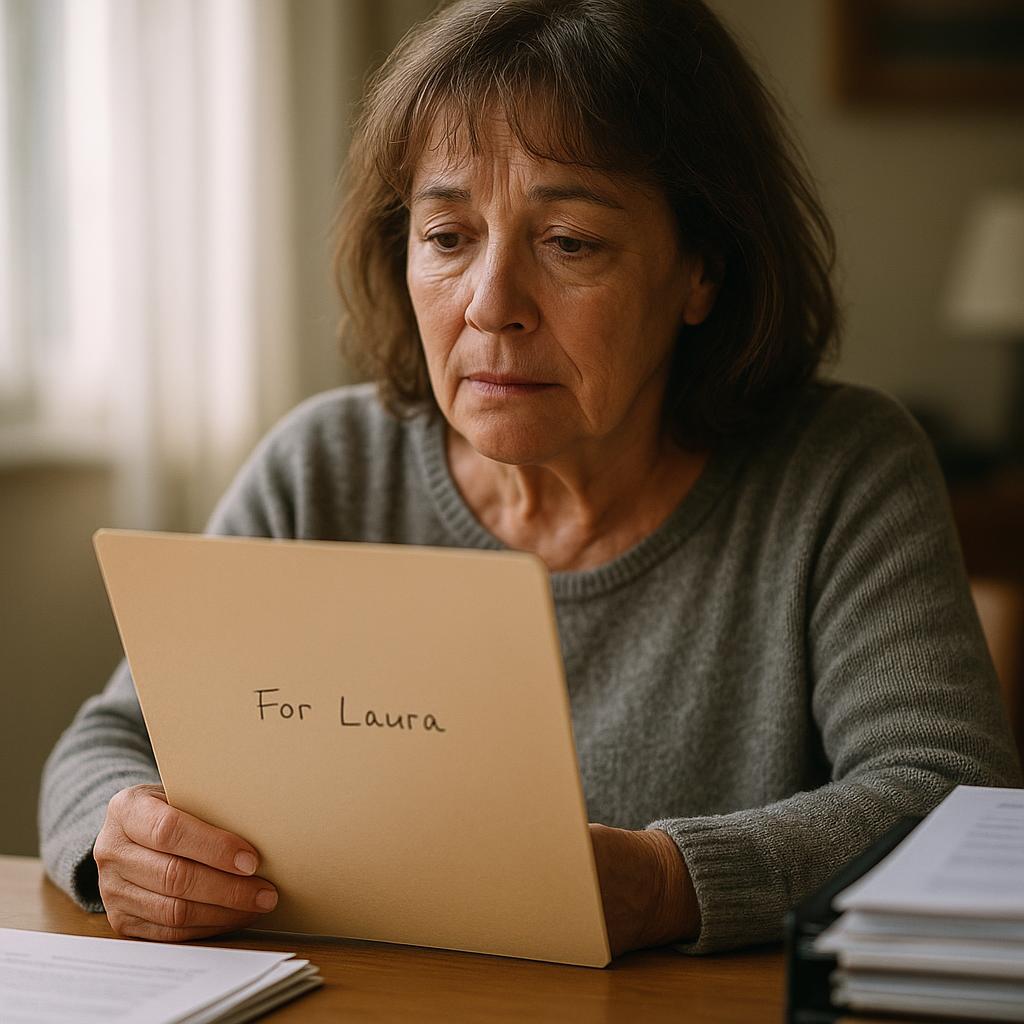 Image by RM AI
Image by RM AI
The Stepdaughter
Emily and I had what you might call a "cordial but complicated" relationship. She was already in her junior year of college when Harold and I tied the knot, so we never had that traditional stepmother-stepdaughter dynamic. I tried, believe me. I sent care packages during finals week, remembered her birthdays with thoughtful gifts, and always made her favorite apple crumble when she visited. But there was always this invisible wall between us. At holiday gatherings, she'd help with dishes and make appropriate small talk, but her smiles never quite reached her eyes. Harold would say, "Give her time, Laura. She's still processing a lot." Eighteen years later, I was still giving her time. Now, as I sat surrounded by sympathy cards and casserole dishes from well-meaning neighbors, my phone rang. The caller ID showed Emily's name, just two days after we'd stood side by side at her father's funeral. I took a deep breath before answering, wondering what could possibly bridge the gap between us now that Harold was gone. Little did I know that this call would be the beginning of something I never saw coming.
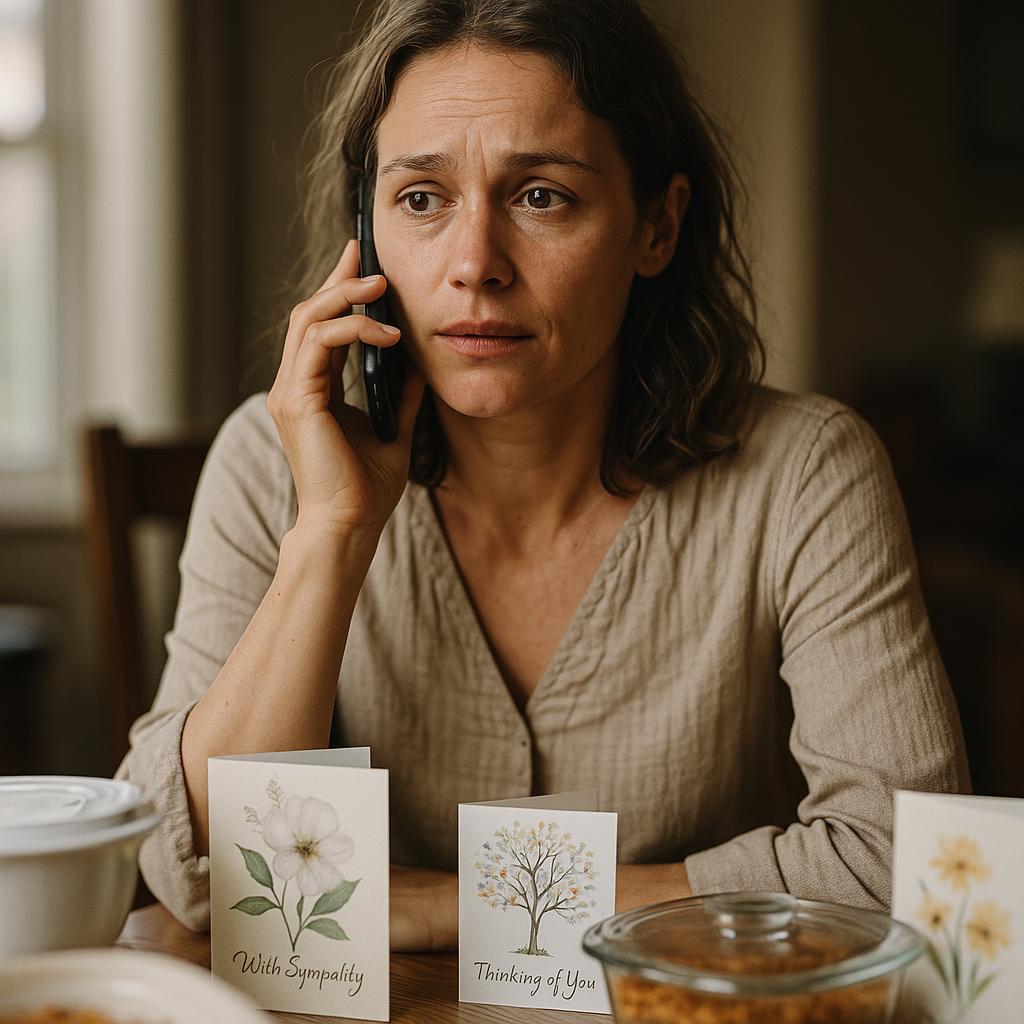 Image by RM AI
Image by RM AI
An Offer of Help
When the phone rang that morning, I never expected Emily's voice to sound so... different. 'Laura,' she said, with a warmth I'd rarely heard before, 'I've been thinking about everything you must be dealing with right now.' I clutched the receiver, surprised by her concern. 'Let me take care of the estate paperwork for you,' she continued. 'You shouldn't have to deal with all that stress right now.' The offer caught me off guard. In eighteen years, this was perhaps the most personal gesture she'd ever extended. 'Are you sure?' I asked, my voice cracking slightly. 'Absolutely,' Emily replied with that professional confidence that reminded me of Harold. 'It's what I do for a living. Dad would want me to handle this properly.' She explained how she could organize everything, file the necessary documents, and spare me the bureaucratic nightmare that follows death. I felt a weight lifting from my shoulders—one I hadn't even realized was crushing me. 'That would be... wonderful,' I admitted, tears welling up. We arranged to meet at the house the following day, and for the first time since the funeral, I felt a glimmer of hope. Maybe Harold's passing would finally bridge the gap between us. Maybe this was Emily's way of reaching out, of finally accepting me as family. As I hung up the phone, I glanced at Harold's folder on the table and whispered, 'Thank you for thinking of everything, dear.' Little did I know that the folder containing 'Everything I'd Need' was missing something crucial—a warning about what was coming next.
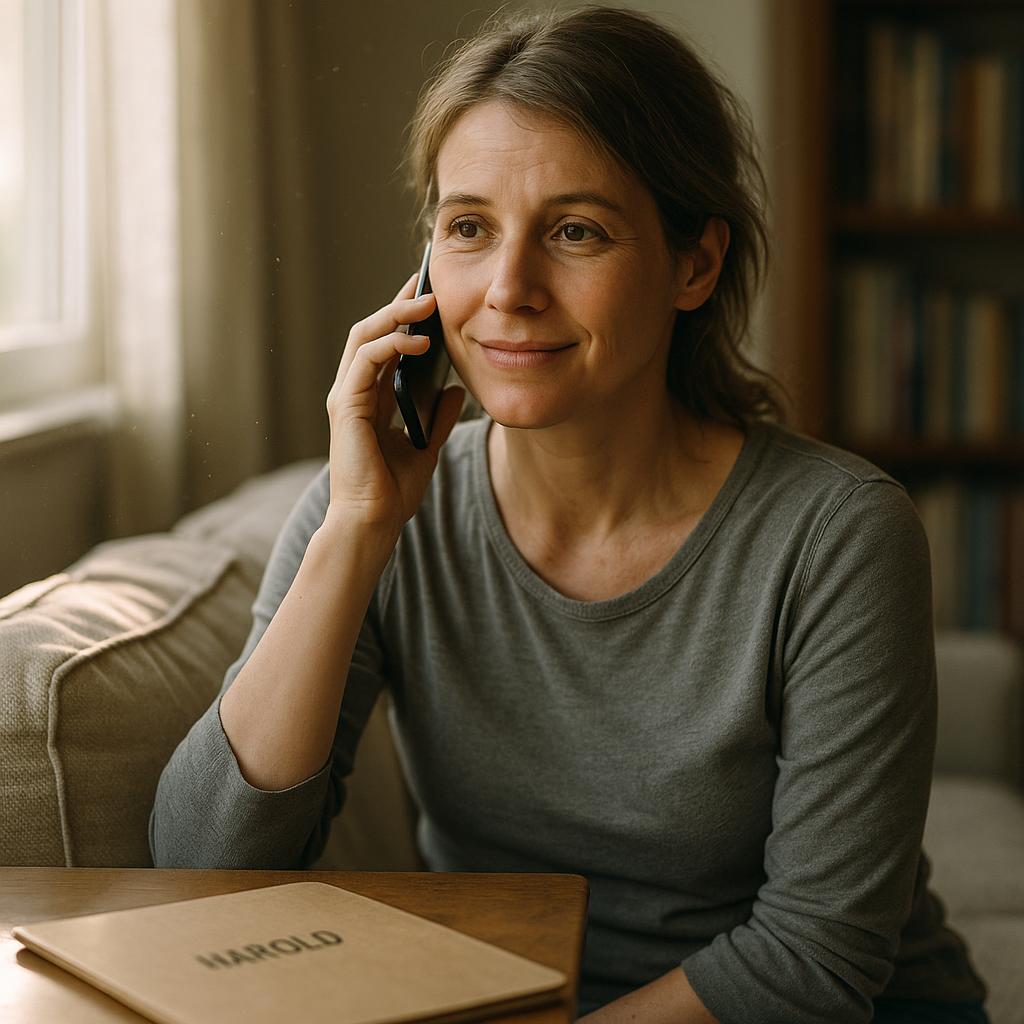 Image by RM AI
Image by RM AI
Papers Across the Dining Table
Emily arrived at my doorstep the next morning, dressed in a charcoal pantsuit that screamed 'I handle serious matters.' The sleek leather briefcase in her hand looked expensive—the kind Harold would have called 'an unnecessary splurge.' I led her to our dining table, the same oak surface where Harold and I had shared Sunday pot roasts and birthday cakes for nearly two decades. With practiced efficiency, Emily spread documents across the polished wood, creating a mosaic of legal papers that made my head swim. 'This is the executor form,' she explained, her manicured finger pointing to a line requiring my signature. 'And this one confirms the property transfer process.' I nodded, trying to follow along as she occasionally slipped into financial jargon—'probate considerations' and 'asset liquidity'—before catching herself and translating into simpler terms. 'Don't worry, Laura,' she reassured me, her voice softening slightly. 'Dad kept things remarkably straightforward—just the house, his savings accounts, and those small investments in the energy sector.' When she slid the papers toward me with a silver pen that looked suspiciously like one from Harold's desk drawer, I hesitated only briefly before signing where indicated. The pen felt heavy in my hand as I scrawled my signature again and again. With each document completed, Emily efficiently tucked it away into her briefcase, explaining that she'd 'handle everything from here.' As she packed up, I felt a strange mixture of relief and unease washing over me. I'd just signed away control of my financial future to someone who, despite being family, had always kept me at arm's length. But what choice did I have? After all, this was what Harold wanted... wasn't it?
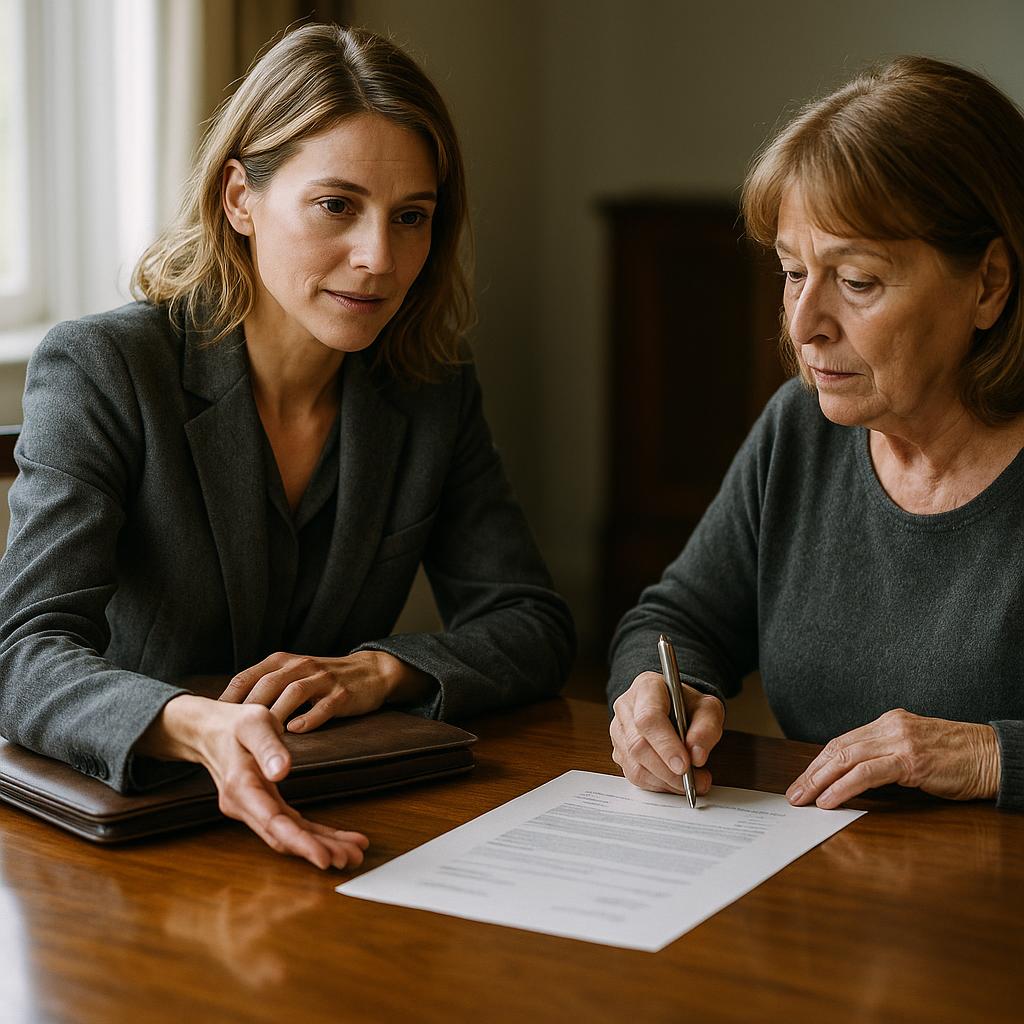 Image by RM AI
Image by RM AI
The Blur of Grief
The days after Emily left with my signed papers blurred together like watercolors in the rain. Every morning, I'd wake up reaching for Harold's side of the bed, only to find cold sheets and the crushing weight of reality. The house felt impossibly large without him shuffling around in his slippers. Friends and neighbors kept dropping by with casseroles and sympathy cards—each one saying essentially the same thing in different flowery fonts. "If you need anything, just call." But what I needed, no one could give me back. I watered Harold's prized tomato plants religiously, talking to them as if he might hear me through their leaves. "The Cherokee Purples are coming along nicely," I'd whisper, feeling slightly foolish but comforted all the same. Every few days, Emily would call with brief updates that somehow managed to say nothing at all. "The probate process is moving along," she'd say in that clipped, professional tone. "Nothing to worry about, Laura. These things take time." I'd thank her, of course. What else could I do? But as weeks stretched into a month with no concrete information, a tiny knot of unease began forming in my stomach. At night, I'd lie awake staring at the ceiling fan, wondering why I hadn't received any official paperwork. Harold had always been so meticulous about documentation—it seemed odd that there would be such silence now. I told myself I was being paranoid, that grief was making me suspicious. After all, Emily was family. She was just trying to help, right? But then came the morning when I checked our joint account balance and noticed something that made my heart skip a beat.
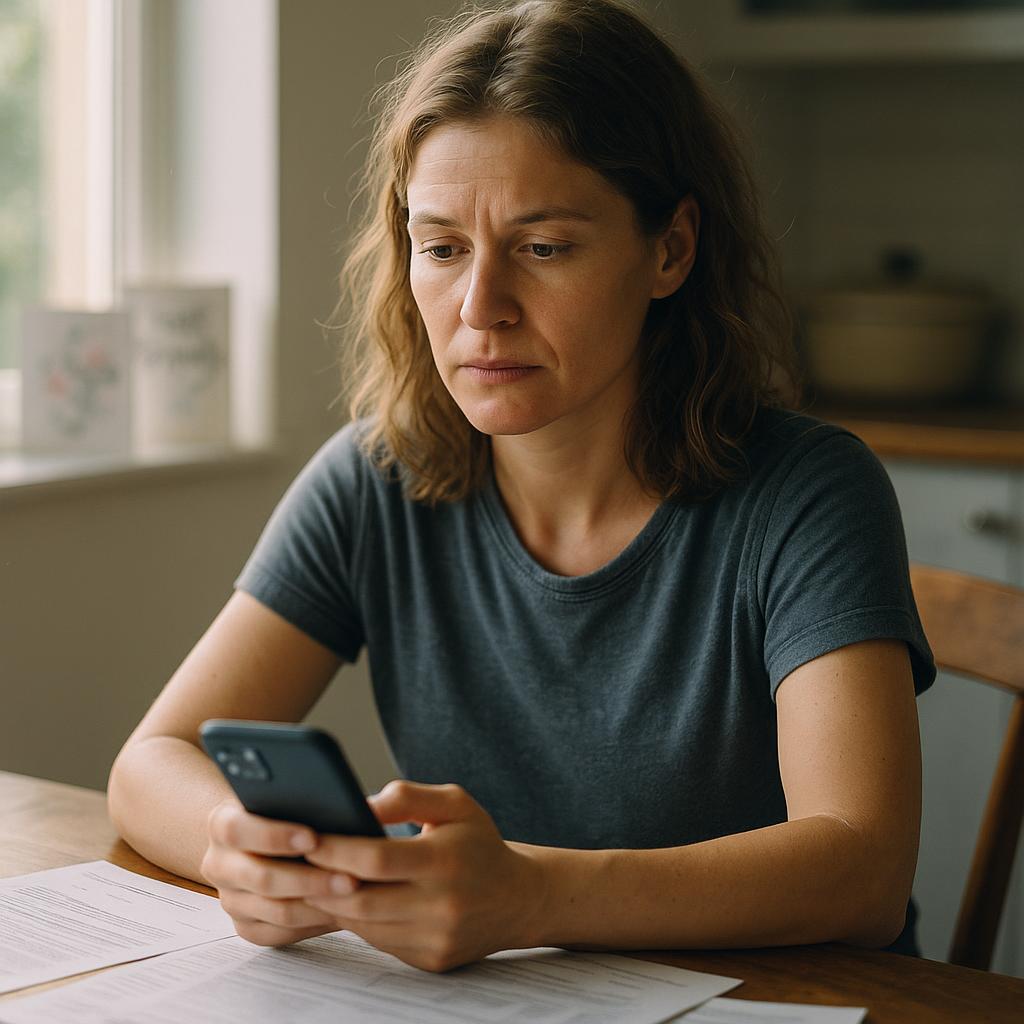 Image by RM AI
Image by RM AI
The Mysterious Deposit
It was a perfectly ordinary Tuesday in March when my world tilted on its axis. I was sipping my morning coffee, scrolling through my online banking app—something I'd started doing daily since Harold passed, just to keep tabs on things. That's when I saw it: a direct deposit for $48,750. I nearly spilled coffee all over my bathrobe. The amount just sat there on my screen, almost taunting me with its unexplained presence. My first thought was that the insurance company had finally processed Harold's policy, but that didn't make sense—we'd already received that payment weeks ago. With shaking hands, I called the bank's customer service line, navigating through the robotic menu until I finally reached a human being. 'I'm sorry, Mrs. Wilson, but all I can tell you is that the deposit came from a business account called Echelon Holdings,' the representative said after putting me on hold twice. 'Echelon Holdings?' I repeated, scribbling the unfamiliar name on the back of an envelope. 'I've never heard of them.' The representative couldn't provide any additional information. After hanging up, I stared at the name I'd written down, that knot of unease in my stomach growing tighter. Why would some company I'd never heard of deposit nearly fifty thousand dollars into my account? And why did I have the sinking feeling that this unexpected windfall wasn't good news at all?
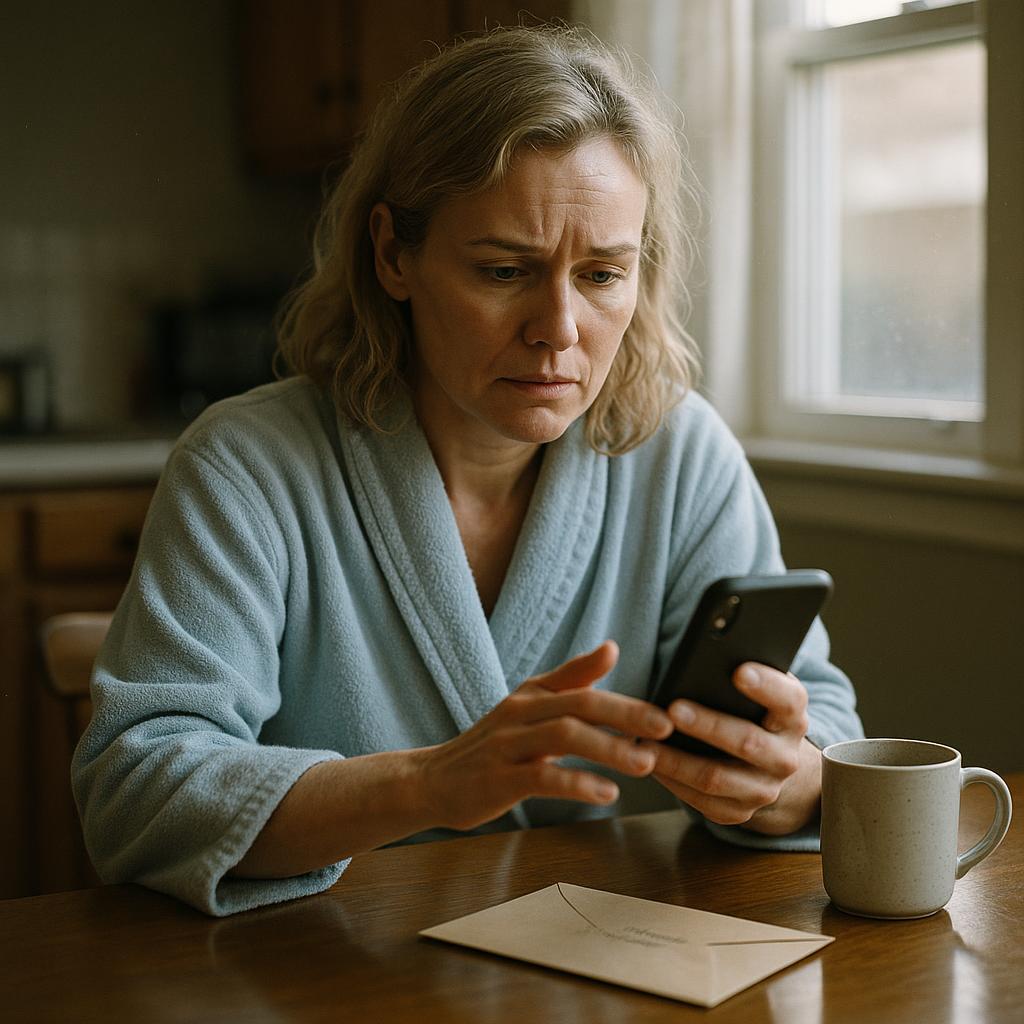 Image by RM AI
Image by RM AI
Emily's Sharp Reaction
I dialed Emily's number, my fingers trembling slightly as I held the phone. When she answered, I tried to keep my voice casual. 'Emily, the strangest thing happened. There's a deposit in my account for almost fifty thousand dollars from something called Echelon Holdings. Do you know anything about this?' The silence on the other end lasted only a second, but it felt much longer. When Emily finally spoke, her voice had transformed completely. Gone was the professional, measured tone I'd grown accustomed to. 'Don't touch that money,' she snapped, with such sharpness I actually pulled the phone away from my ear. 'It's probably a transfer error. I'll handle it.' The intensity in her voice sent a chill down my spine. This wasn't the calm, collected financial advisor who had spread papers across my dining table weeks ago. This was someone... afraid. 'But shouldn't I just call—' I began, only to be cut off. 'No! Don't call anyone. Just leave it alone, Laura. I said I'll handle it.' After she hung up, I sat at the kitchen table, staring at Harold's empty chair. The afternoon sun cast a familiar shadow across it, almost as if he might materialize and explain what was happening. Why would Emily react so strongly to money appearing in my account? And why did she seem so desperate to keep me from asking questions? I decided to let the money sit untouched for now, but something deep in my gut—the same instinct that had helped me spot counterfeit bills during my years as a teller—told me this wasn't just some random banking error. This was something else entirely, and the thought of what that might be kept me awake long into the night.
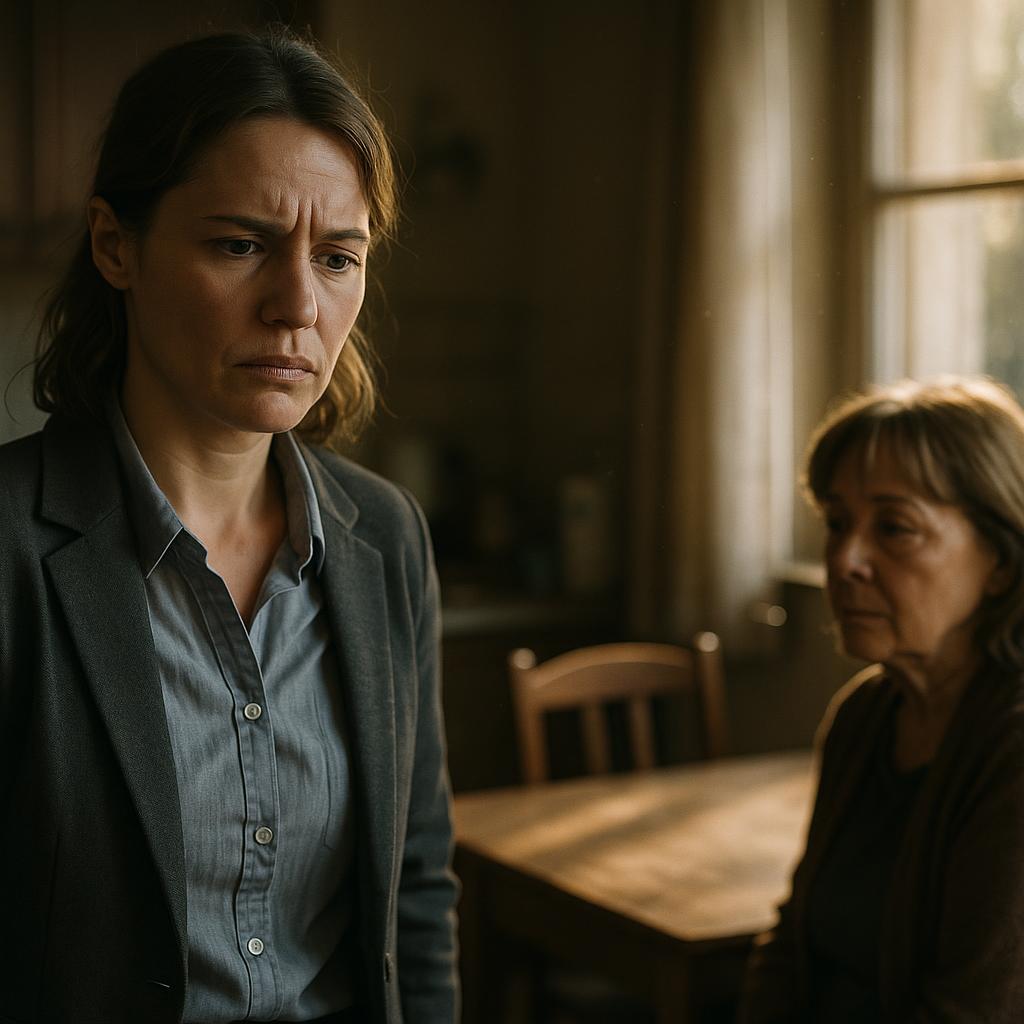 Image by RM AI
Image by RM AI
Late Night Research
Sleep was impossible that night. At 2 AM, with the house creaking in that empty way it does when you're alone, I padded downstairs to Harold's study. His desktop computer hummed to life, the blue glow illuminating the dark room as I typed 'Echelon Holdings' into the search bar. My heart was already racing before the results loaded. The first hit was a business website describing Echelon as 'a boutique investment firm specializing in estate management and asset consolidation.' Nothing suspicious there. But as I scrolled further, I clicked on a recent article from Financial Weekly, and my stomach dropped. There it was in black and white: 'Echelon Holdings acquired by Meridian Financial Partners in strategic merger.' And listed among Meridian's leadership team? 'Emily Wilson, Senior Associate, Estate Planning Division.' I stared at her professional headshot—the same tight smile she'd given me across countless holiday dinners. My hands trembled as I hit the print button, the ancient printer in the corner whirring and clunking as it produced the evidence. I also printed my bank statement showing that mysterious $48,750 deposit. As I slipped both papers into Harold's 'Everything You'll Need' folder, a chill ran through me that had nothing to do with the night air. The woman who'd offered to help me through my grief was the same woman connected to unexplained money appearing in my account. I closed the folder and pressed it against my chest, wondering what else Emily hadn't told me—and what Harold would say if he could see what was happening to everything he'd worked so hard to build.
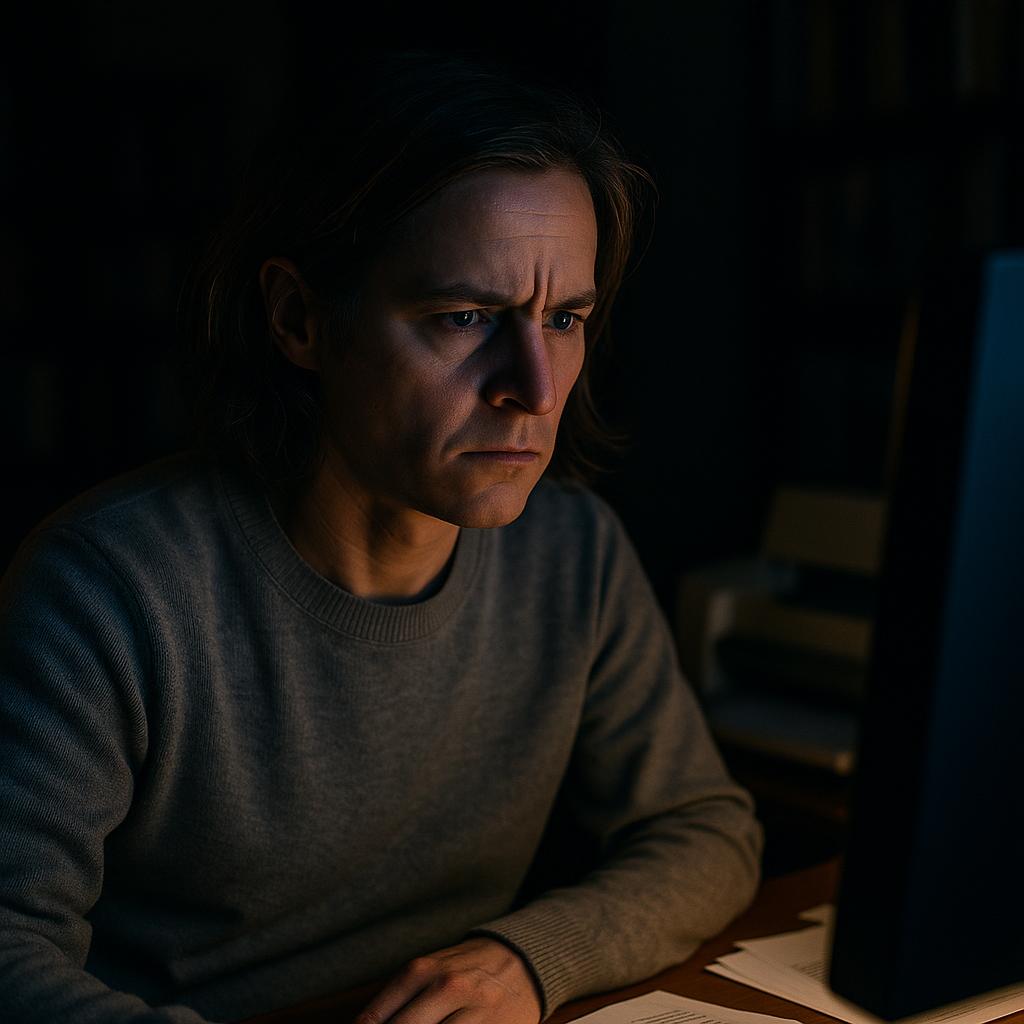 Image by RM AI
Image by RM AI
Just Trust Me
The next morning, I sat at the kitchen table with my coffee growing cold, the printed article and bank statement spread before me like evidence in a crime scene. With a deep breath, I dialed Emily's number. When she answered, I could practically hear her spine stiffening through the phone. 'Emily, I need to understand what's happening with this money,' I said, trying to keep my voice steady. 'I found some information about Echelon Holdings.' There was a pause—the kind that speaks volumes in its silence. When she finally responded, her voice had that carefully controlled quality people use when they're trying not to show panic. 'Laura,' she said with forced patience, 'there are complexities you wouldn't understand. Just trust me.' Those three words—just trust me—hit me like a physical blow. How many times had I heard Harold say that exact phrase when he was moving money around for tax purposes? But coming from Emily's lips, they sounded hollow, almost threatening. I clutched the phone tighter, staring at Harold's empty chair across from me. 'I see,' was all I managed to say before hanging up. My hands were trembling as I placed the phone down. That phrase kept echoing in my head: Just trust me. But Harold had earned my trust over eighteen years of marriage. Emily had done nothing but keep me at arm's length. As I gathered the papers and slipped them back into Harold's folder, I realized with a sinking feeling that the person Harold had designated to protect me might be the very person I needed protection from.
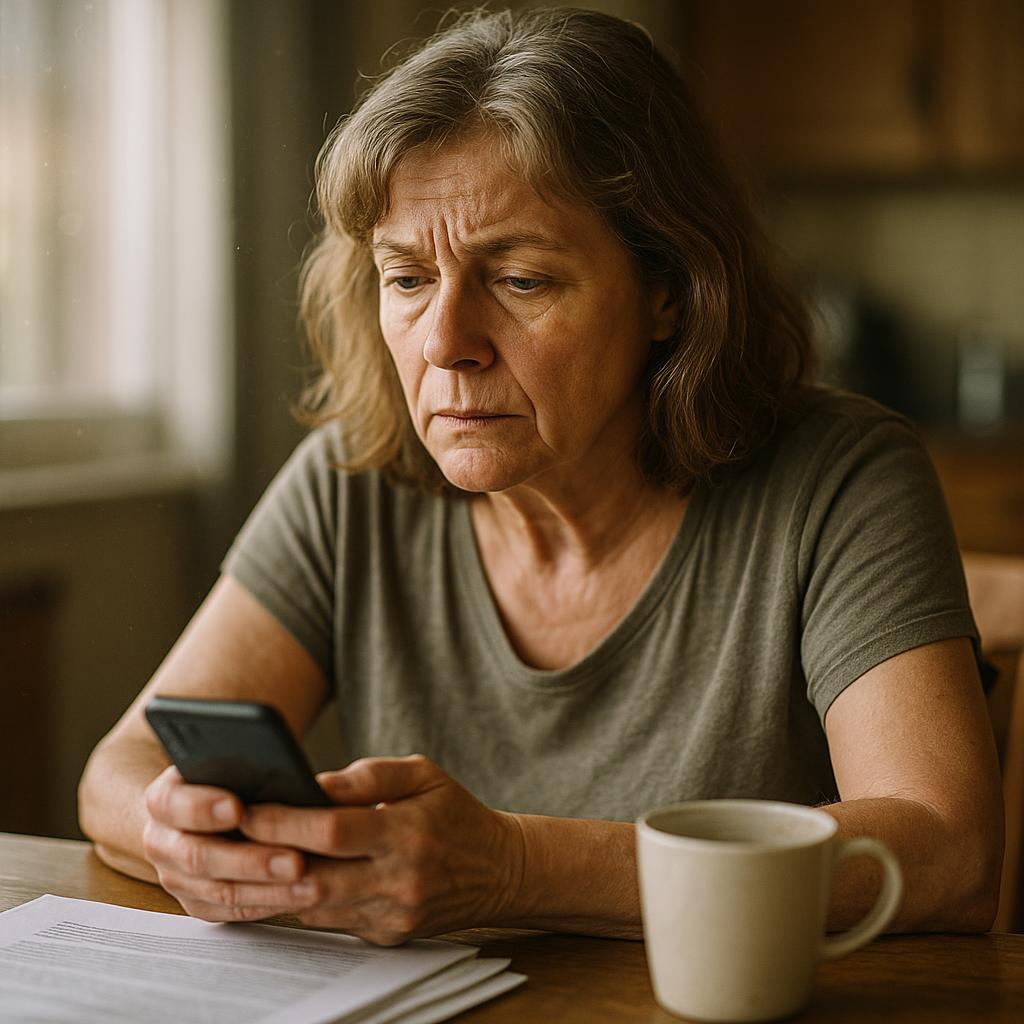 Image by RM AI
Image by RM AI
Bills Unpaid
Three days later, I was sorting through the mail when I spotted a red-stamped envelope from our insurance company. My heart skipped a beat when I opened it—a past due notice for our home insurance. That couldn't be right. Harold had set up automatic payments years ago, proudly showing me how he'd 'joined the digital age.' With trembling hands, I dialed the insurance company. 'I'm sorry, Mrs. Wilson, but the automatic payments were canceled on February 12th,' the representative informed me. 'Would you like to reinstate them?' February 12th—just two weeks after Harold's funeral. After hanging up, I pulled out our household budget binder, the one Harold had meticulously maintained with color-coded tabs. One by one, I called each utility company. Electric bill? Auto-pay canceled. Water? Canceled. Internet? Same story. By afternoon, my kitchen table was covered with notes and my ear ached from being pressed against the phone. 'We can reinstate your automatic payments today, ma'am,' each representative told me, as if it were the simplest thing in the world. But nothing felt simple anymore. Why would anyone cancel payments that Harold had so carefully arranged? As I wrote a check for the overdue insurance bill, a chill ran through me. The only person with access to make these changes was Emily. The same Emily who'd told me to 'just trust her.' The same Emily who was somehow connected to mysterious deposits appearing in my account. That night, I added a new page to Harold's folder—a list of every canceled payment and when it had happened. The pattern was unmistakable, and it pointed to something I didn't want to believe: someone was deliberately dismantling the financial safeguards Harold had put in place. And I was terrified to discover what might come tumbling down next.
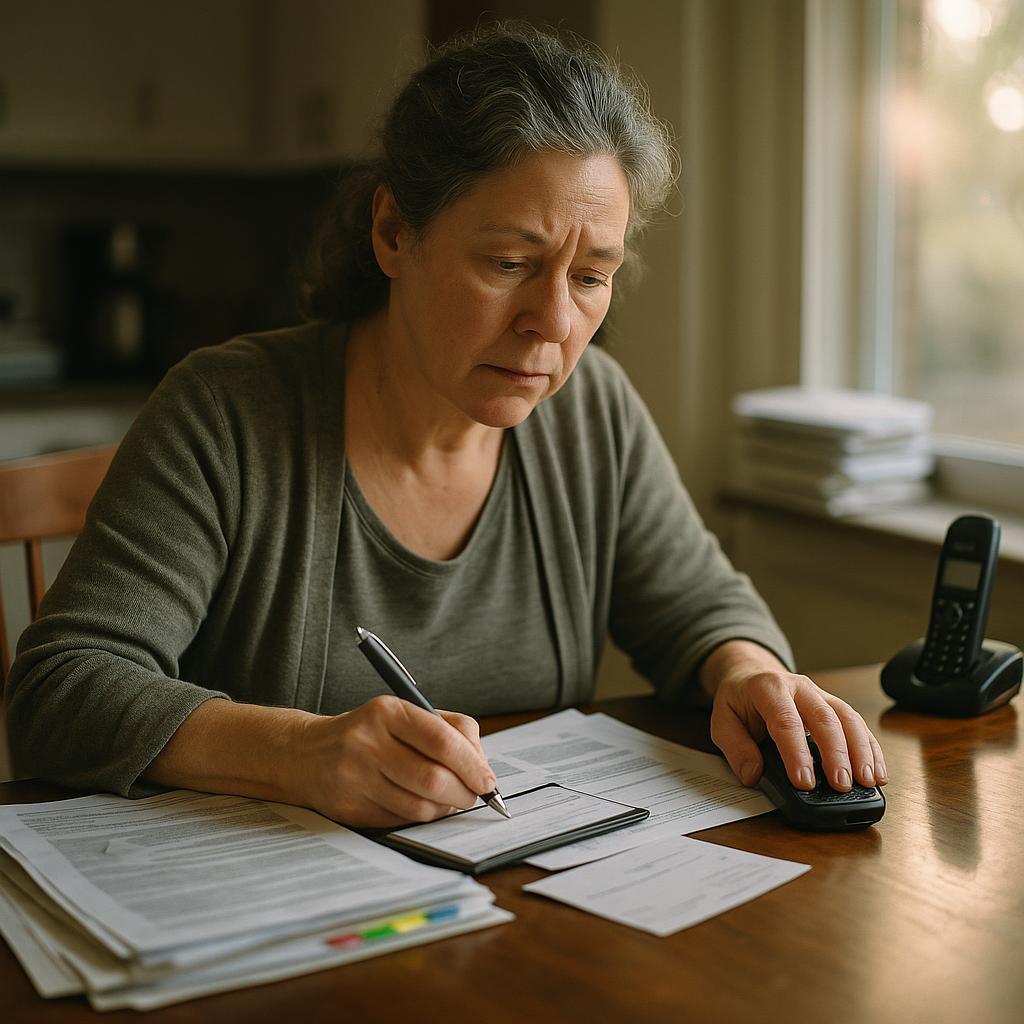 Image by RM AI
Image by RM AI
The Beneficiary Update
The mail arrived as it always did—a mundane stack of flyers and bills that I sorted through at the kitchen table. But that day, an official-looking envelope from our life insurance company caught my eye. Inside was a letter mentioning a 'policy beneficiary update' that I had supposedly requested. My heart started racing. I hadn't requested any changes. With shaking hands, I called the insurance company, navigating through the automated system until I finally reached a human voice. 'Mrs. Wilson,' the representative said after pulling up our policy, 'someone submitted paperwork to change the primary beneficiary from you to Emily Wilson, with only 15% remaining for you.' I felt like I'd been punched in the stomach. The representative continued, explaining that the change had been rejected because it lacked proper verification signatures, but they wanted to notify me of the attempt. After hanging up, I sat frozen, staring at Harold's photograph on the mantel. His kind eyes looked back at me, unchanged, while everything else in my world was shifting beneath my feet. Who was this Emily that Harold had raised? The woman who'd offered to help me through my grief was systematically trying to erase me from Harold's financial legacy. I traced my finger along the frame of our wedding photo, wondering if I'd ever really known his daughter at all—or if Harold himself had seen this side of her. That night, I added the insurance letter to my growing file of evidence, a knot of dread tightening in my stomach as I realized this was far from over.
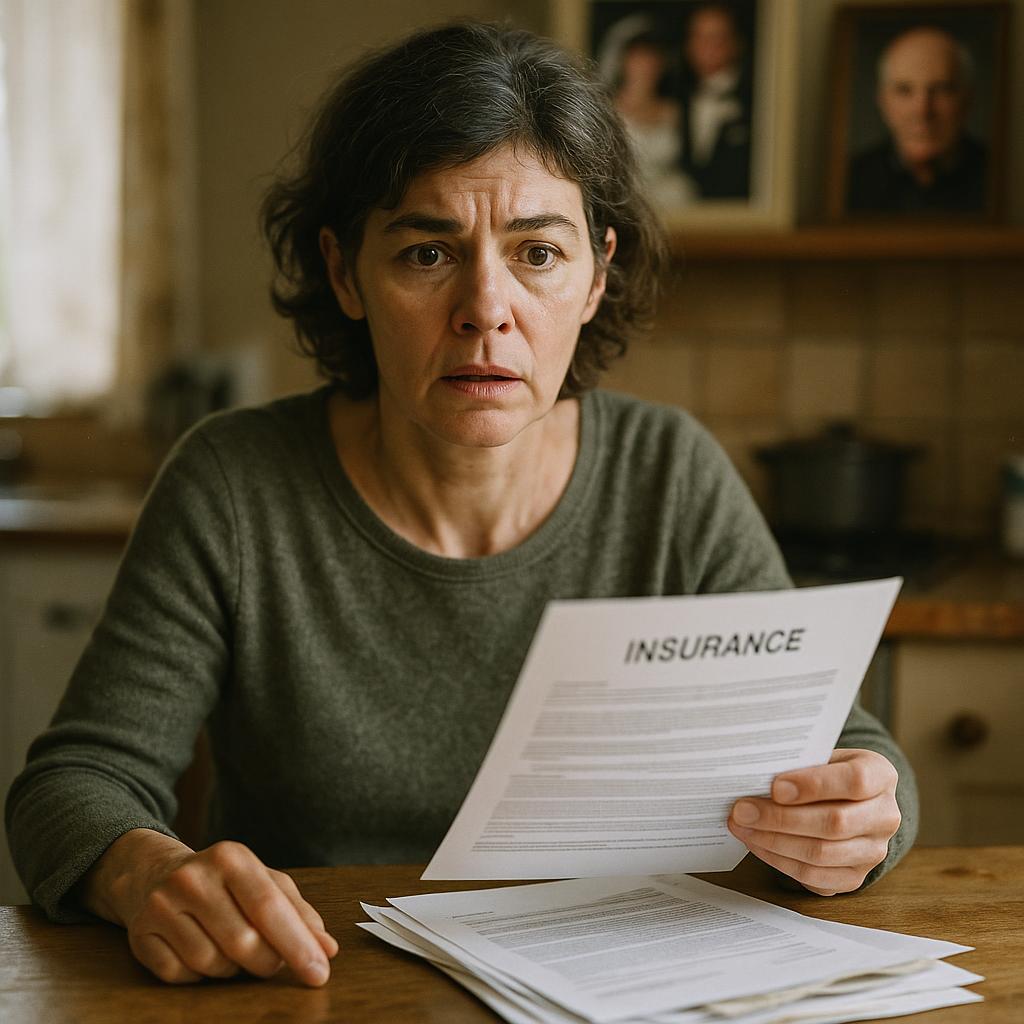 Image by RM AI
Image by RM AI
Visit to the Courthouse
The next morning, I drove to the county courthouse, clutching my purse like a shield. The building was all marble and echoes, intimidating in its bureaucratic grandeur. I approached the records desk, where a woman with kind eyes and salt-and-pepper hair took my request. 'Estate filings for Harold Wilson,' I said, my voice steadier than I felt. She returned minutes later with a thick manila folder. 'Let me walk you through this,' she offered, spreading the documents across the counter. I nodded gratefully, overwhelmed by the legal terminology. She pointed to various sections, explaining terms I'd never encountered despite my banking background. Then her finger landed on a particular line, and she frowned slightly. 'You're listed as secondary executor,' she said, 'but your stepdaughter is primary.' The words hit me like a physical blow. I gripped the edge of the counter to steady myself. 'That can't be right,' I whispered. 'When Harold and I made our wills, everything was supposed to be split evenly between me and Emily. We were supposed to have joint authority.' The clerk gave me a sympathetic look that made my stomach clench. 'It's all here in black and white, Mrs. Wilson,' she said gently, tapping the document. 'Filed three weeks ago.' Three weeks ago—when Emily was 'helping' me with paperwork. As I stared at the official stamp on the document, I realized with horrifying clarity that the papers I'd signed across my dining room table weren't what Emily had claimed they were.
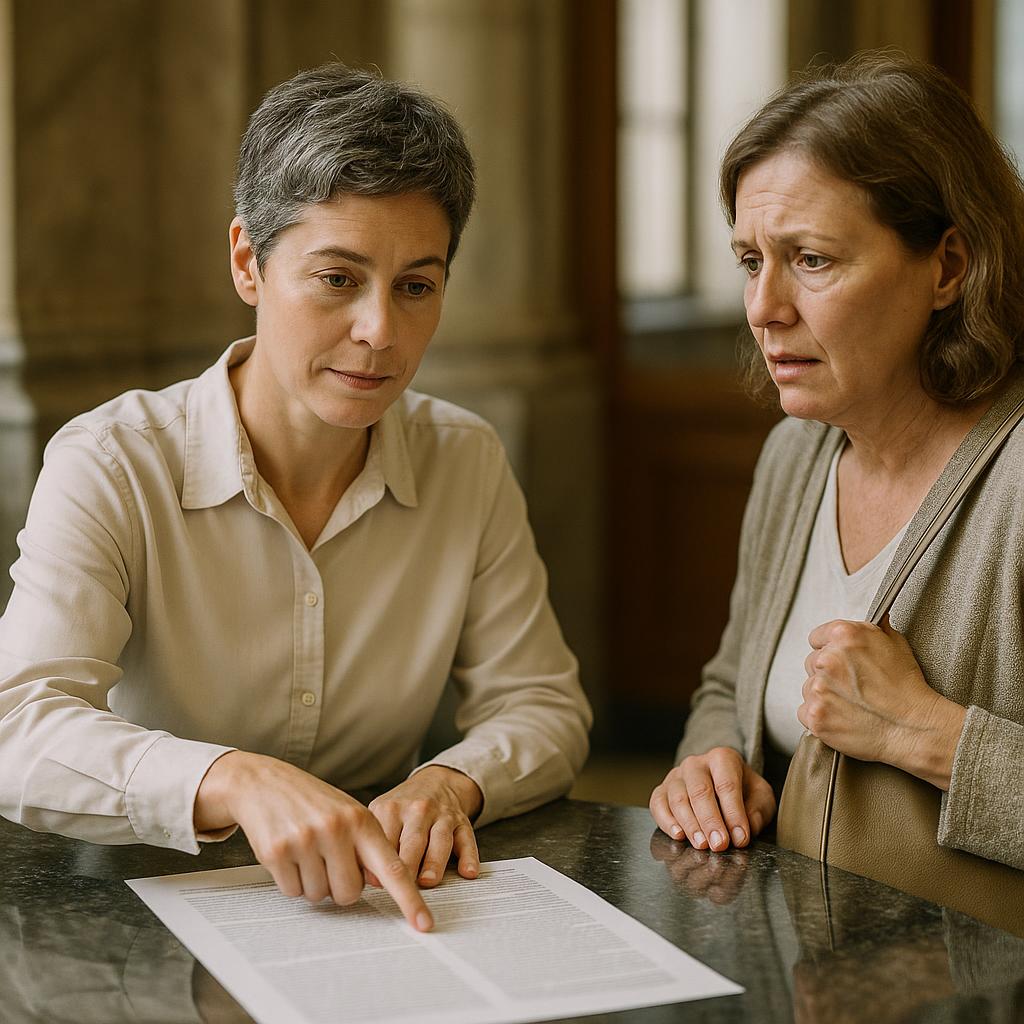 Image by RM AI
Image by RM AI
The Basement Files
That night, I couldn't sleep. The mysterious deposit, Emily's sharp reaction, the canceled payments—it all swirled in my mind like a tornado. At 3 AM, I grabbed my robe and headed to the basement with a flashlight. Harold had always been meticulous about keeping records, storing decades of our life together in neatly labeled boxes. I pulled the chain on the single bulb hanging from the ceiling and began my search. For two hours, I sifted through dusty folders, tax returns from the '90s, and utility bills from our first apartment. My fingers were gray with dust when I finally found a box marked 'Personal—Important.' Inside, beneath our marriage certificate and Harold's military discharge papers, was an envelope I'd never seen before. 'My Girls,' it said in Harold's careful handwriting. My heart pounded as I unfolded the letter inside. 'To my two favorite women,' it began, 'I hope you never need to read this, but if you do...' Harold wrote that he wanted 'no financial strain or division' between his wife and daughter, and specifically mentioned that 'the savings account at Lakeside should remain untouched until both parties agree.' I read it three times, tears streaming down my face. This was the Harold I knew—thoughtful, fair, planning ahead. But there was no mention of Echelon Holdings or any arrangement giving Emily primary control. As I climbed the basement stairs, clutching the letter to my chest, one thought kept repeating: Harold had left me a clue, but I needed help to understand what was really happening to our money.
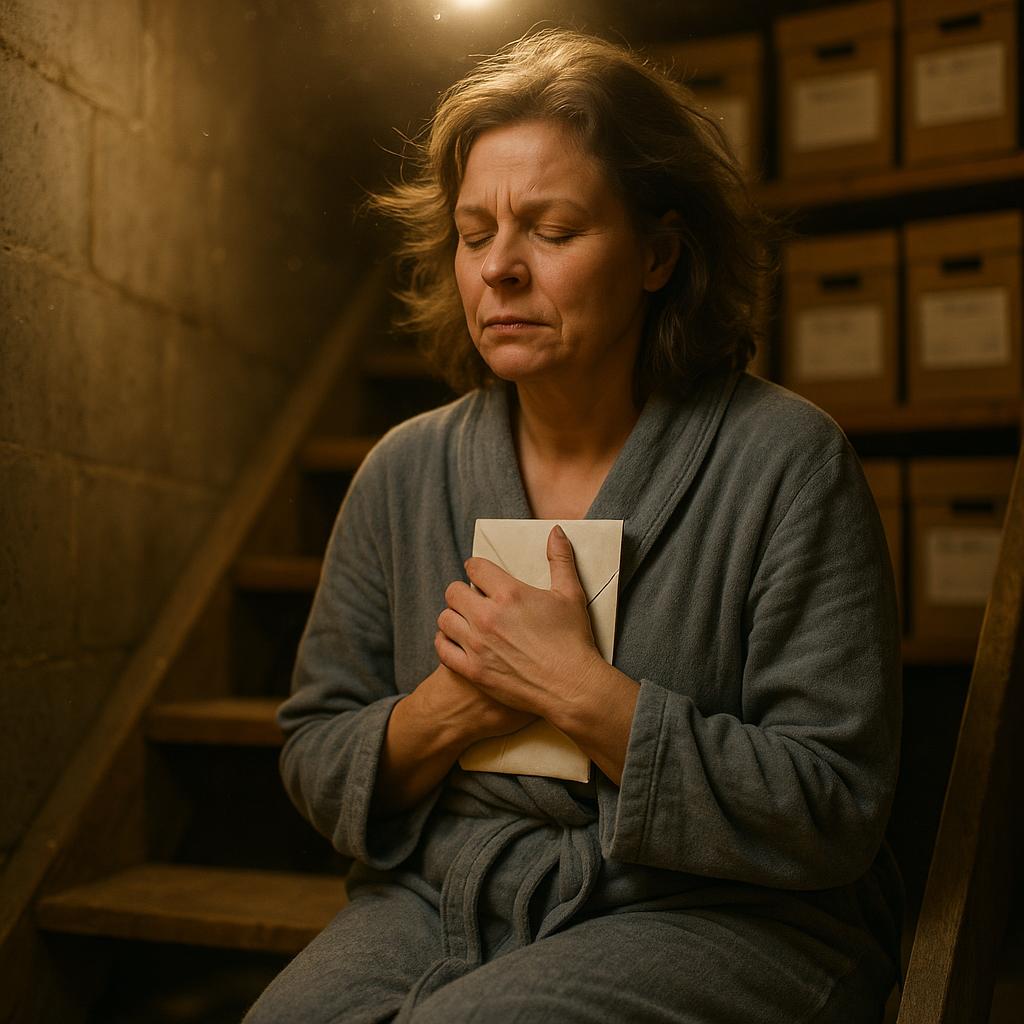 Image by RM AI
Image by RM AI
Neighbor Mark
The next morning, I found myself sitting at my kitchen table with Mark from next door, a retired accountant who'd brought me homemade sourdough bread twice since Harold's funeral. His salt-and-pepper mustache twitched as he examined the documents spread before him. 'Laura, I don't want to alarm you,' he said, adjusting his reading glasses, 'but what you're describing sounds... well, it sounds like financial manipulation.' I pushed Harold's handwritten letter toward him, my fingers trembling slightly. 'This is what Harold actually wanted,' I explained, pouring us both more coffee to steady my nerves. Mark read it carefully, his forehead creasing deeper with each line. 'And you're certain you never authorized Emily as primary executor?' he asked. I shook my head emphatically. 'Never. Harold and I agreed everything would be joint.' Mark sighed heavily, removing his glasses to rub the bridge of his nose. 'Look, I can review these records for you—discreetly. I've seen similar situations before retirement.' He hesitated, choosing his words carefully. 'Sometimes grief makes people do... questionable things. But sometimes it just reveals who they've always been.' As he gathered the papers into his worn leather portfolio, he patted my hand reassuringly. 'Give me a week, Laura. Don't confront Emily yet.' I nodded, feeling both profound relief at having an ally and terrible dread about what he might discover lurking in the numbers Harold had always kept so meticulously organized.
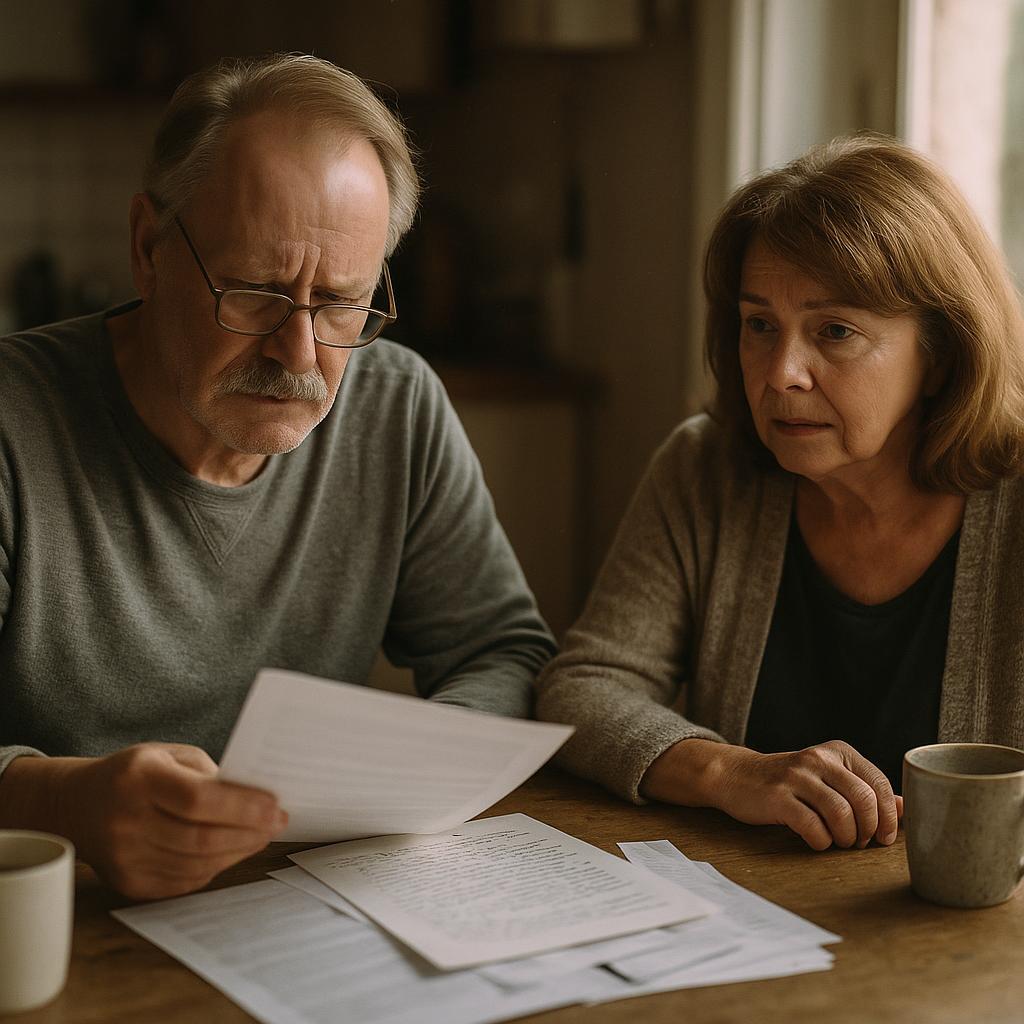 Image by RM AI
Image by RM AI
Mark's Discoveries
Exactly seven days after I handed Mark my documents, the doorbell rang at 10 AM sharp. There he stood on my porch, clutching a thick manila folder and wearing an expression that made my stomach drop. 'I found something, Laura,' he said quietly as I ushered him in. We sat at my dining table—the very same one where I'd trustingly signed all those papers for Emily—and he spread out color-coded charts and bank statements like a detective laying out evidence. 'I don't know how to say this gently,' Mark began, his accountant's precision momentarily giving way to genuine concern. 'This isn't just an inheritance issue. Someone's been systematically moving funds around—transferring assets between accounts under different company names.' He pointed to a diagram showing arrows flowing from Harold's accounts through various entities, all eventually leading to one destination. 'The paper trail leads back to your stepdaughter.' I stared at the papers, trying to comprehend the magnitude of what I was seeing. Nearly $300,000 had been siphoned away through a maze of transactions. 'But why would she do this?' I whispered, my voice barely audible. Mark's mustache twitched as he sighed. 'The oldest reason in the book, Laura. She's in debt—serious debt.' As I traced the flow of money with my trembling finger, I realized that the $48,750 deposit wasn't a gift or an error—it was a calculated distraction, a small sacrifice to hide a much larger theft.
 Image by RM AI
Image by RM AI
The Question of Fraud
I stared at Mark across my dining table, the color-coded charts between us blurring as tears welled in my eyes. 'You mean Emily's stealing from me?' The words felt foreign in my mouth, like speaking a language I'd never learned. Mark's kind face creased with concern as he carefully chose his next words. 'Technically, she might argue it's part of the estate management. But if she's funneling money into shell companies she controls, that's fraud.' He tapped his finger on a particularly damning document. The garden outside the window—Harold's pride and joy—was showing its first spring buds, oblivious to how my world was crumbling inside these walls. How could Emily do this? The same woman who'd brought me soup when I had pneumonia three years ago. The same woman who'd stood beside me at Harold's funeral, holding my elbow when my knees threatened to buckle. 'I still can't believe it,' I whispered, tracing the flow of arrows on Mark's diagram with my fingertip. 'Harold trusted her completely.' Mark sighed, removing his reading glasses. 'Laura, I've seen this before. Sometimes the people closest to us are the ones who can hurt us most.' He reached into his wallet and pulled out a business card. 'This is Diane Levinson. She specializes in estate fraud cases. She's discreet, and she doesn't charge for initial consultations.' I took the card, feeling its weight in my palm like a key to a door I never wanted to open. But some doors, once you notice them, can't be ignored—no matter how much you wish they'd disappear.
 Image by RM AI
Image by RM AI
Benefit of the Doubt
That night, I sat in Harold's recliner, clutching a framed photo of Emily's college graduation. The three of us were smiling—Harold beaming with pride, his arm around his daughter. I remembered how he'd whispered to me that day, 'She's got my brains and her mother's determination.' Those memories kept playing on repeat as I tried to reconcile them with Mark's damning evidence. How could the same woman who'd tearfully thanked Harold in her wedding toast for 'showing me what integrity looks like' be systematically stealing from his estate? I poured myself a small glass of Harold's favorite whiskey—something I'd never done before—and let the burn in my throat match the one in my chest. Maybe there was a reasonable explanation. Maybe Emily was moving money around for legitimate tax purposes, just like Harold used to do. Maybe she was protecting the assets from something I didn't understand. At 3 AM, I made a decision: I would give Emily one more chance to come clean. No accusations, no lawyers—just a straightforward conversation between two women who had both loved Harold. I owed him that much. I owed our family history that much. As I finally drifted off to sleep in Harold's chair, the whiskey glass empty beside me, I couldn't shake the nagging thought that I might be clinging to a version of Emily that existed only in my wishful thinking.
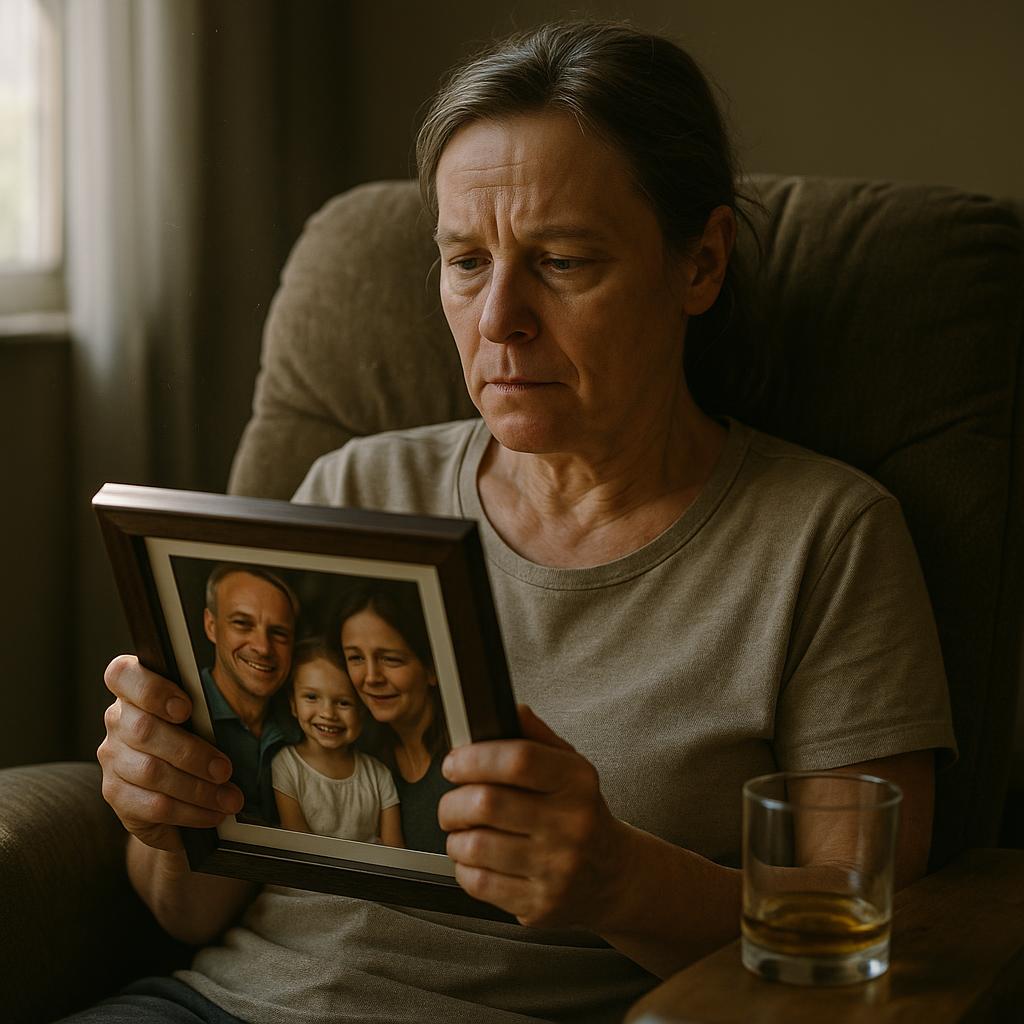 Image by RM AI
Image by RM AI
The Audit Letter
The certified letter arrived on a Tuesday, nestled between a grocery store flyer and a credit card offer. The moment I saw the return address—'Goldstein & Associates, Attorneys at Law'—my heart skipped a beat. I'd never heard of them. With trembling fingers, I sliced open the envelope and unfolded the crisp letterhead inside. 'Dear Mrs. Wilson and Ms. Wilson,' it began, and my stomach immediately knotted. It was addressed to both Emily and me. As I read further, phrases jumped out like warning flares: 'estate audit,' 'discrepancies requiring joint verification,' and 'request your presence at our offices on April 18th.' I sank into Harold's chair, letter clutched to my chest. This wasn't triggered by anything I'd done—the letter explained it was 'standard probate procedure.' But there was nothing standard about finding out your late husband's estate had 'discrepancies.' I called the law firm immediately, my banking background kicking in with a need to verify. The receptionist confirmed everything—yes, the letter was legitimate; yes, both Emily and I were required to attend. As I hung up, my phone buzzed with an incoming call. Emily's name flashed on the screen, and I knew she'd received her copy too. I stared at her name, wondering what version of Emily I was about to encounter—the helpful stepdaughter or the woman who'd been systematically dismantling Harold's careful financial plans. Either way, I was about to find out just how far she was willing to go to maintain her deception.
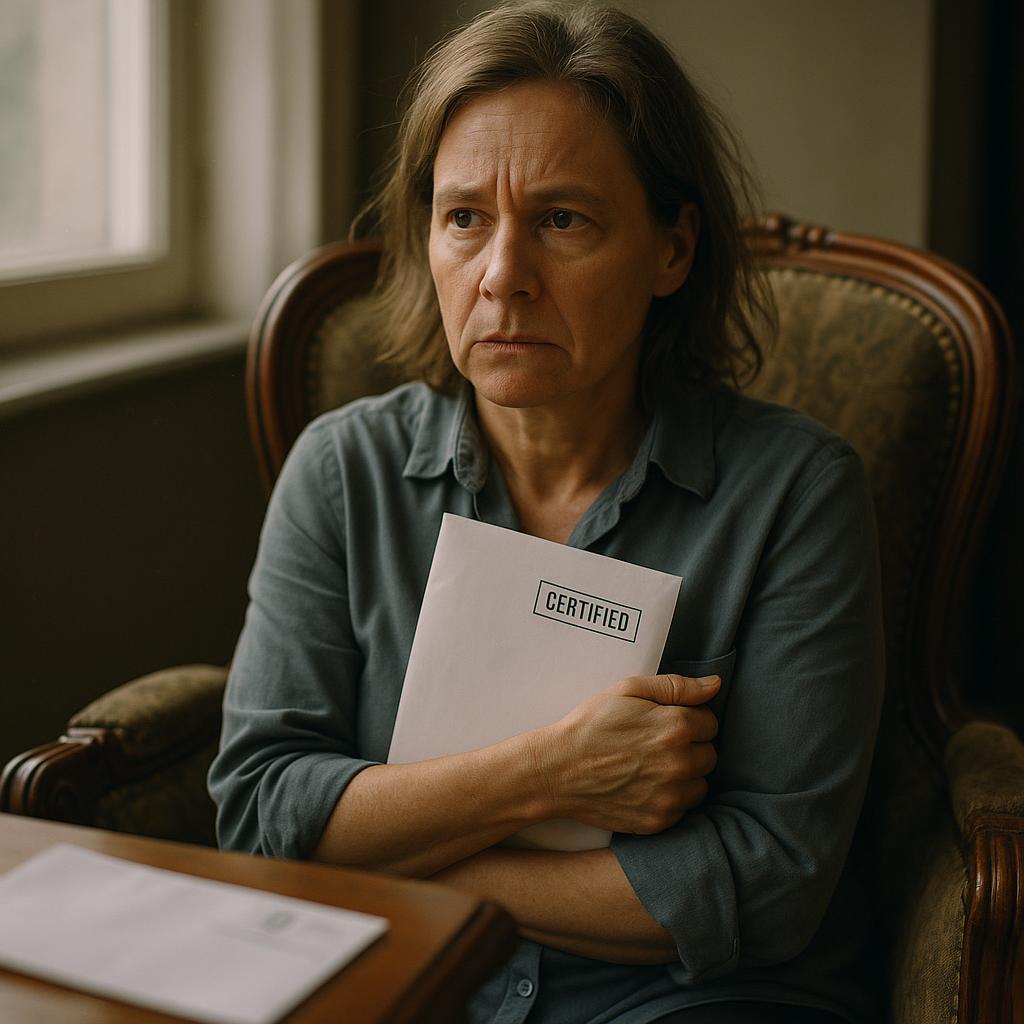 Image by RM AI
Image by RM AI
Emily's Fury
I was washing dishes when the doorbell rang that evening. Through the peephole, I saw Emily standing there, her face flushed with anger, the audit letter crumpled in her white-knuckled grip. Before I could even say hello, she pushed past me into the living room, the scent of her expensive perfume filling the air like a storm cloud. "You had no right to involve anyone else!" she shouted, waving the letter in my face. Gone was the polished financial advisor with the carefully modulated voice. This Emily was raw, unfiltered rage. "Do you have any idea what you've done?" I stood there in my kitchen apron, momentarily speechless. "Emily, I didn't request an audit. The letter says it's standard procedure—" "Don't play innocent with me," she cut me off, pacing across the living room floor where Harold and I had danced on our anniversary just six months ago. "Dad wanted me to protect his investments from your...impulsive spending." The accusation was so absurd I almost laughed. Me? Impulsive spending? I still used coupons from the Sunday paper and wore shoes until they had holes. That's when it hit me like a thunderbolt—Emily wasn't just stealing from me. She was rewriting history, creating a narrative where I was the irresponsible one who couldn't be trusted with money. She needed to believe this lie to justify what she was doing. As I watched her gesturing wildly in Harold's living room, I realized with a chill that I wasn't just fighting for my financial security—I was fighting for the truth of who I was in Harold's life.
 Image by RM AI
Image by RM AI
Standing My Ground
Emily's words hung in the air between us, heavy with accusation. For months, I'd been the grieving widow, the confused old lady who needed help. But something inside me had finally snapped. 'I didn't request the audit,' I said, my voice steadier than I expected, 'but I'm glad it's happening. There are too many things that don't add up.' I ticked them off on my fingers like items on a grocery list: the mysterious deposit from Echelon Holdings, the unpaid bills that Harold had meticulously set up for automatic payment, the attempted beneficiary change. With each point, Emily's face grew redder. 'Laura,' she said, switching tactics with the smoothness of a seasoned salesperson, 'grief does terrible things to people's minds. You're confused. Paranoid, even.' She reached for Harold's letter that I'd foolishly left on the coffee table. 'Let me take this for safekeeping until you're... more yourself.' I moved faster than I had in years, snatching the letter before her manicured fingers could close around it. 'This stays with me,' I said firmly, surprising us both with my resolve. For a moment, I saw something flicker across Emily's face—respect, maybe, or just the realization that manipulating me wouldn't be as easy as she'd thought. The woman standing before her wasn't just Harold's widow anymore. I was Laura Wilson, 61 years old, and I was done being anyone's doormat. As Emily gathered her designer purse to leave, muttering something about 'discussing this when you're more reasonable,' I realized that standing my ground felt better than any false peace ever could. The real question now was: how far would Emily go when she realized I wasn't backing down?
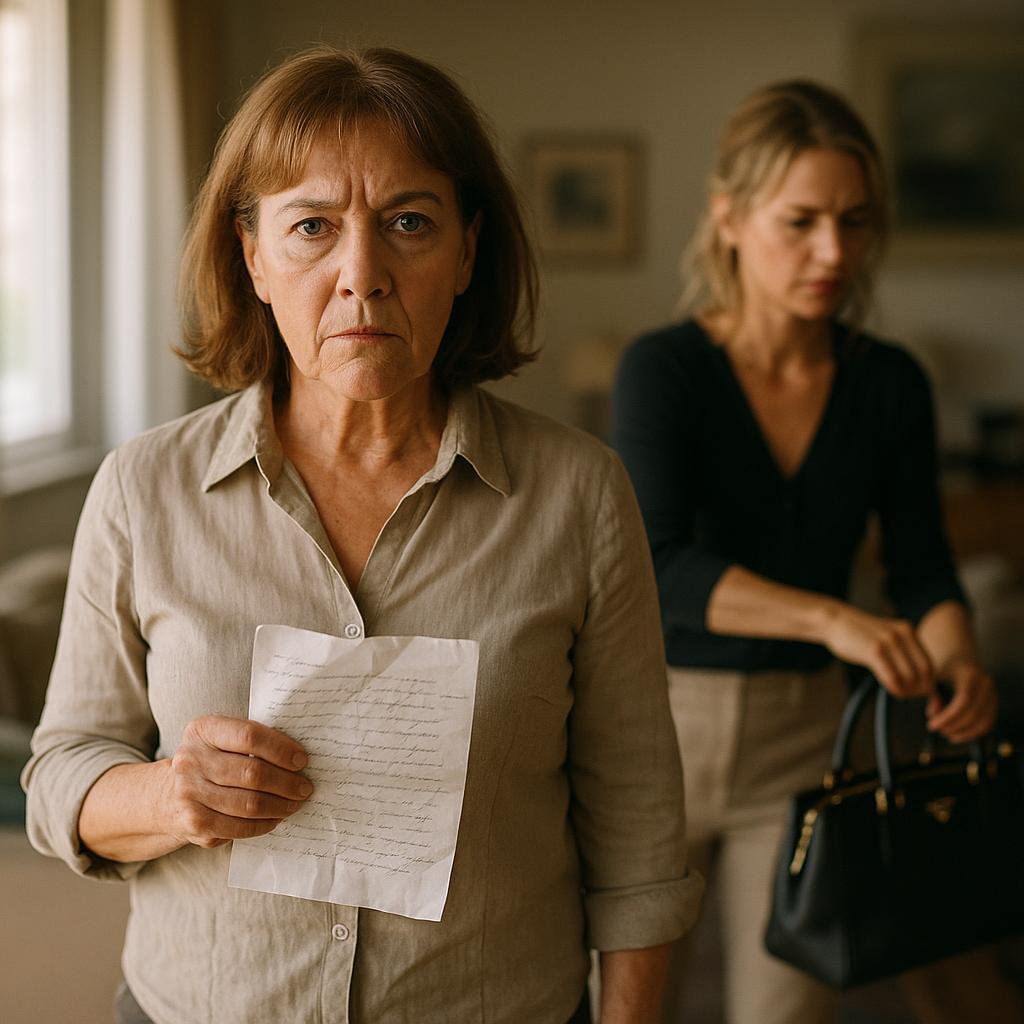 Image by RM AI
Image by RM AI
Meeting with the Lawyer
Mark drove me to Ms. Novak's office the following Monday. The law firm occupied the entire tenth floor of a downtown building, with views that probably cost as much as my mortgage. 'Remember, just tell her everything,' Mark whispered as the receptionist led us down a hallway lined with framed law degrees. Ms. Novak wasn't what I expected—younger than me, with kind eyes that contrasted with her no-nonsense handshake. I spread everything across her mahogany desk: Mark's financial analysis, Harold's handwritten letter, the mysterious deposit slip. She listened without interrupting, occasionally jotting notes in a leather-bound notebook. 'Mrs. Wilson,' she finally said, removing her glasses, 'what you're describing is textbook estate fraud.' She explained that Echelon Holdings was essentially a shell company—a financial sleight of hand. 'Your stepdaughter created a paper trail to make it appear legitimate, but it's clear these were unauthorized transfers.' When she showed me the flow chart she'd sketched, my heart sank. The mysterious $48,750 deposit wasn't generosity—it was calculated misdirection. 'A decoy,' Ms. Novak called it. 'A small sacrifice to make you think you'd received your fair share while she diverted the bulk elsewhere.' I stared out the window at the city Harold and I had called home for decades, wondering how the daughter he'd loved so much could betray him this way. 'What happens now?' I asked, my voice barely above a whisper. Ms. Novak's answer would change everything.
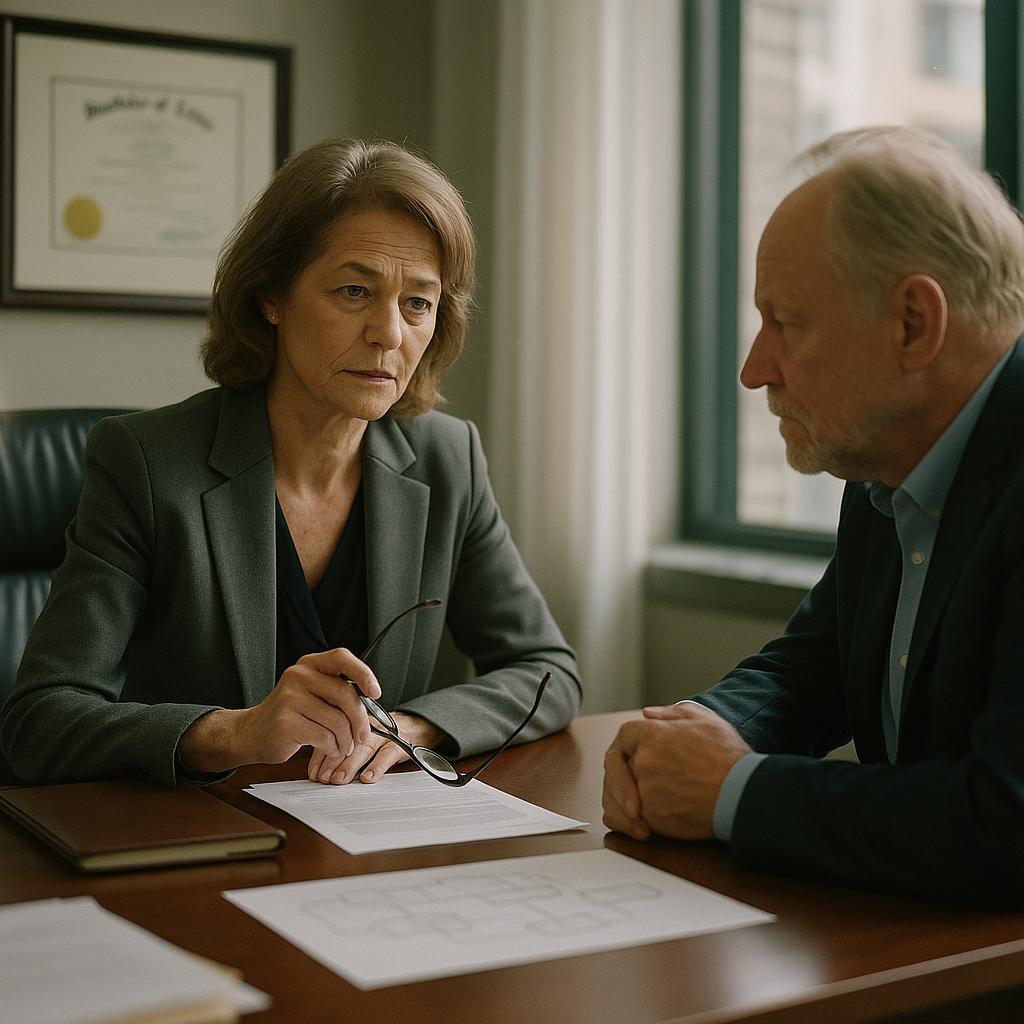 Image by RM AI
Image by RM AI
The Joint Meeting
The conference room at Goldstein & Associates felt like a pressure cooker. I sat beside Ms. Novak, my hands folded tightly in my lap to hide their trembling. Emily arrived fifteen minutes late with a tall man in an expensive suit who introduced himself as 'Richard Keller, counsel for Ms. Wilson.' The estate auditor, a soft-spoken man with wire-rimmed glasses, methodically presented his findings using a PowerPoint presentation that made my stomach churn with each new slide. 'As you can see here,' he said, pointing to a particularly damning chart, 'we've identified several irregular transfers totaling approximately $287,000.' Emily maintained her professional mask until he mentioned Echelon Holdings—I watched her knuckles turn white around her leather portfolio. When her lawyer attempted to wave away the evidence as 'simple administrative oversights in a time of family grief,' Ms. Novak calmly opened her folder. 'Perhaps this will clarify matters,' she said, sliding Harold's handwritten letter across the table. 'Mr. Wilson's explicit instructions regarding the management of his estate.' Emily's lawyer snatched it up before she could touch it, but I saw the color drain from her face. She knew exactly what that letter contained. 'This document hasn't been authenticated,' her lawyer protested, but his voice lacked conviction. The auditor cleared his throat. 'Actually,' he said, 'we've already verified it against Mr. Wilson's other handwritten documents. It's genuine.' That's when Emily finally looked directly at me, and what I saw in her eyes wasn't remorse or shame—it was cold, calculating fury at being caught.
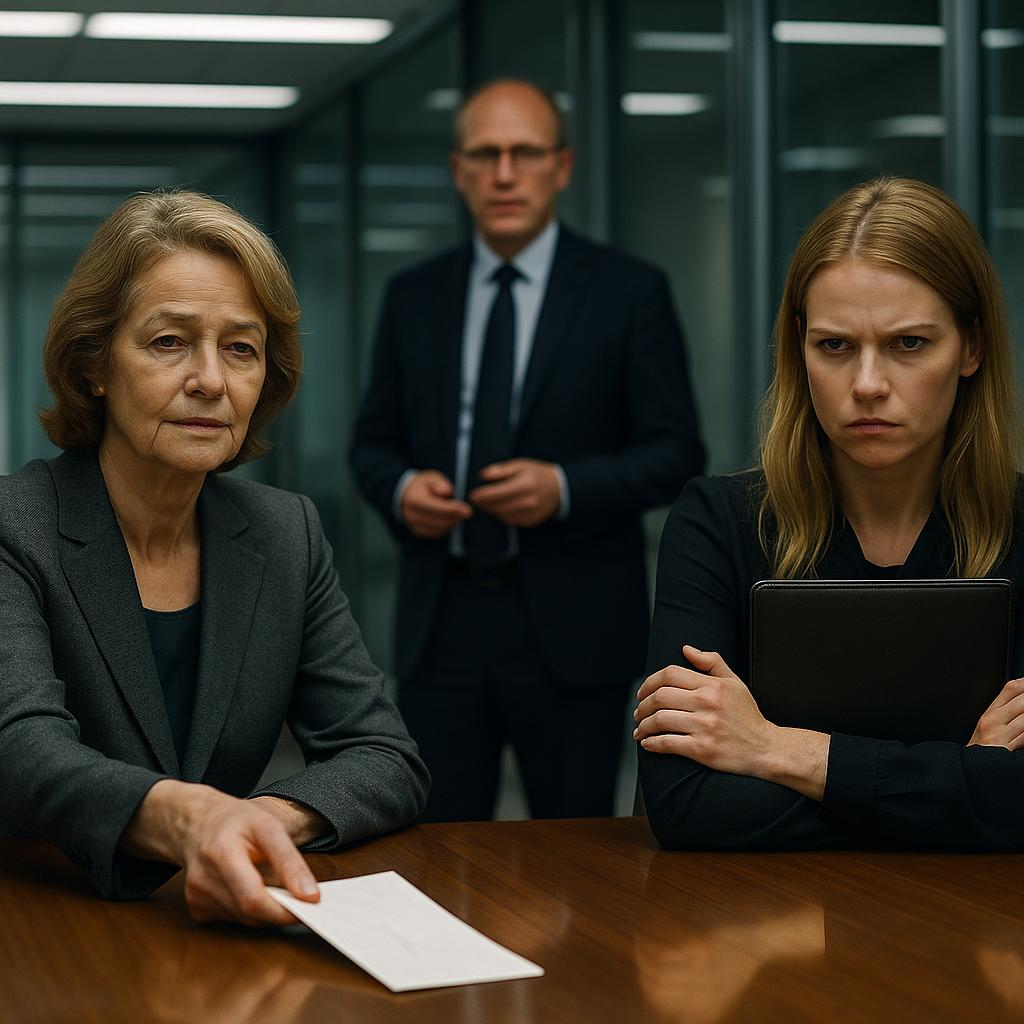 Image by RM AI
Image by RM AI
Emily's Confession
The conference room fell silent as Emily's carefully constructed facade finally crumbled. 'Fine!' she snapped, her voice cracking. 'I temporarily reallocated some funds. I was going to put everything back!' Her lawyer's head whipped toward her, eyes wide with alarm. I watched as the woman who'd been so composed just moments ago began to unravel before us. 'My investment firm was facing an audit,' she continued, words tumbling out faster now. 'I needed liquidity to cover some... discrepancies. It was always temporary.' Ms. Novak remained stone-faced, methodically writing notes while Emily's lawyer frantically whispered in her ear. But Emily wasn't finished. 'Dad would have understood,' she insisted, her eyes glistening. 'He always protected family assets. That's all I was doing.' Something in me snapped at that moment. After months of confusion and betrayal, I found my voice. 'Harold would never have wanted deception,' I said, surprised by the steadiness in my tone. 'He valued honesty above everything else. You know that, Emily.' For just a brief moment, I caught a glimpse of the vulnerable young woman Harold had introduced me to all those years ago—the college student who'd asked for my banana bread recipe, who'd helped me pick out Harold's birthday presents. Then, like a switch being flipped, her expression hardened again. 'You don't know everything about him,' she said coldly. But the damage was done. Her confession hung in the air between us, and I realized with a strange mix of sadness and clarity that the battle for Harold's legacy was only just beginning.
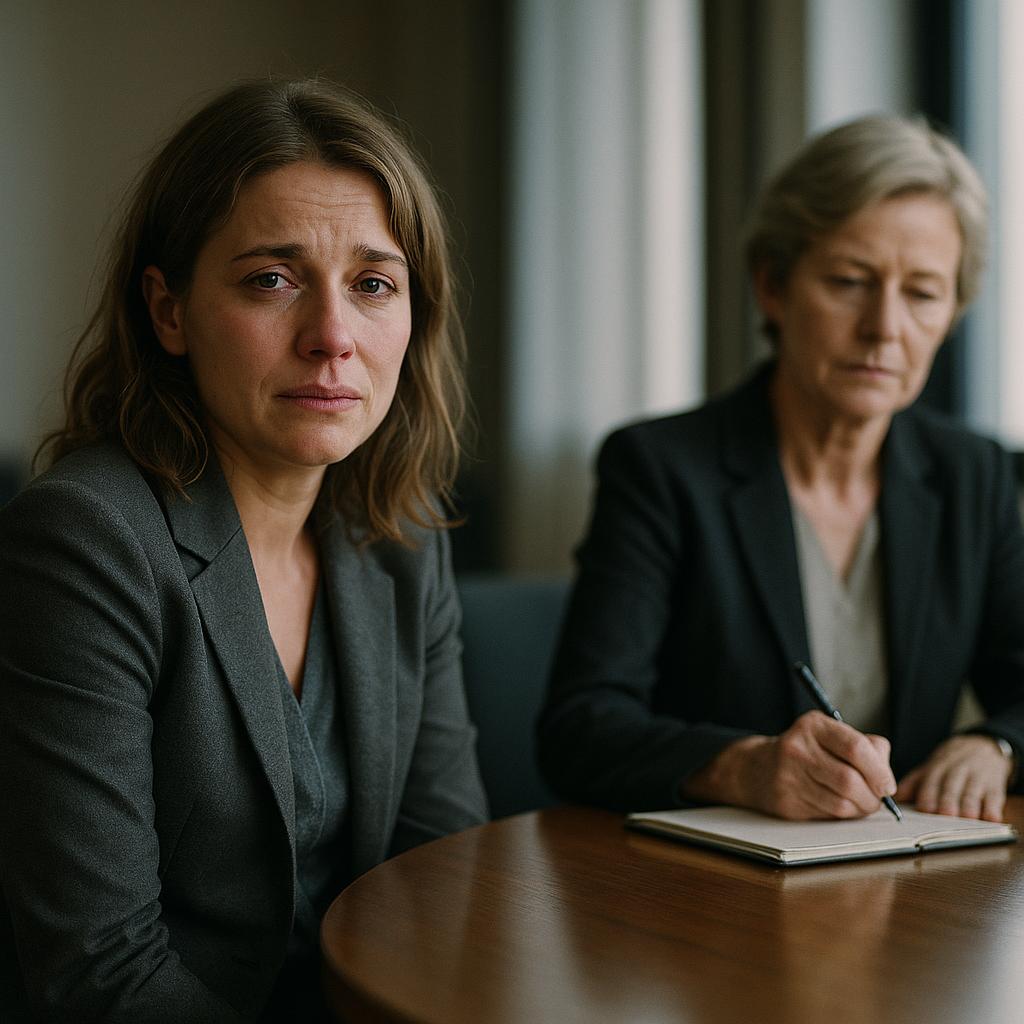 Image by RM AI
Image by RM AI
The Failed Investment
Ms. Novak's office felt too warm as she slid a manila folder across her desk toward me. 'Laura, there's something else you should know about Emily,' she said, her voice gentle but firm. Inside was a stack of documents about a real estate development called 'Riverside Heights'—Emily's failed investment venture that had collapsed spectacularly just three months before Harold's diagnosis. The numbers made me dizzy: Emily had sunk over $400,000 into the project, most of it borrowed. 'She was facing bankruptcy,' Ms. Novak explained, pointing to collection notices dated just weeks after Harold's funeral. I sat there, my hands trembling as I flipped through page after page of evidence. The timing was too perfect to be coincidence—Harold gets sick, Harold passes away, and suddenly Emily has access to enough money to cover her catastrophic losses. 'Do you think...' I couldn't finish the sentence. The implication was too horrible. Ms. Novak shook her head. 'I don't believe she was waiting for him to die, if that's what you're asking. But when he did...' She let the thought hang in the air. 'She saw an opportunity.' I closed the folder, unable to look at it anymore. The calculated nature of what Emily had done—using her grief as a cover while systematically dismantling Harold's careful financial plans—made me physically ill. This wasn't just opportunistic theft; this was a meticulously executed plan by someone who knew exactly what she was doing. And the worst part? I still couldn't shake the memory of Emily at Harold's bedside, holding his hand and promising to 'take care of everything.'
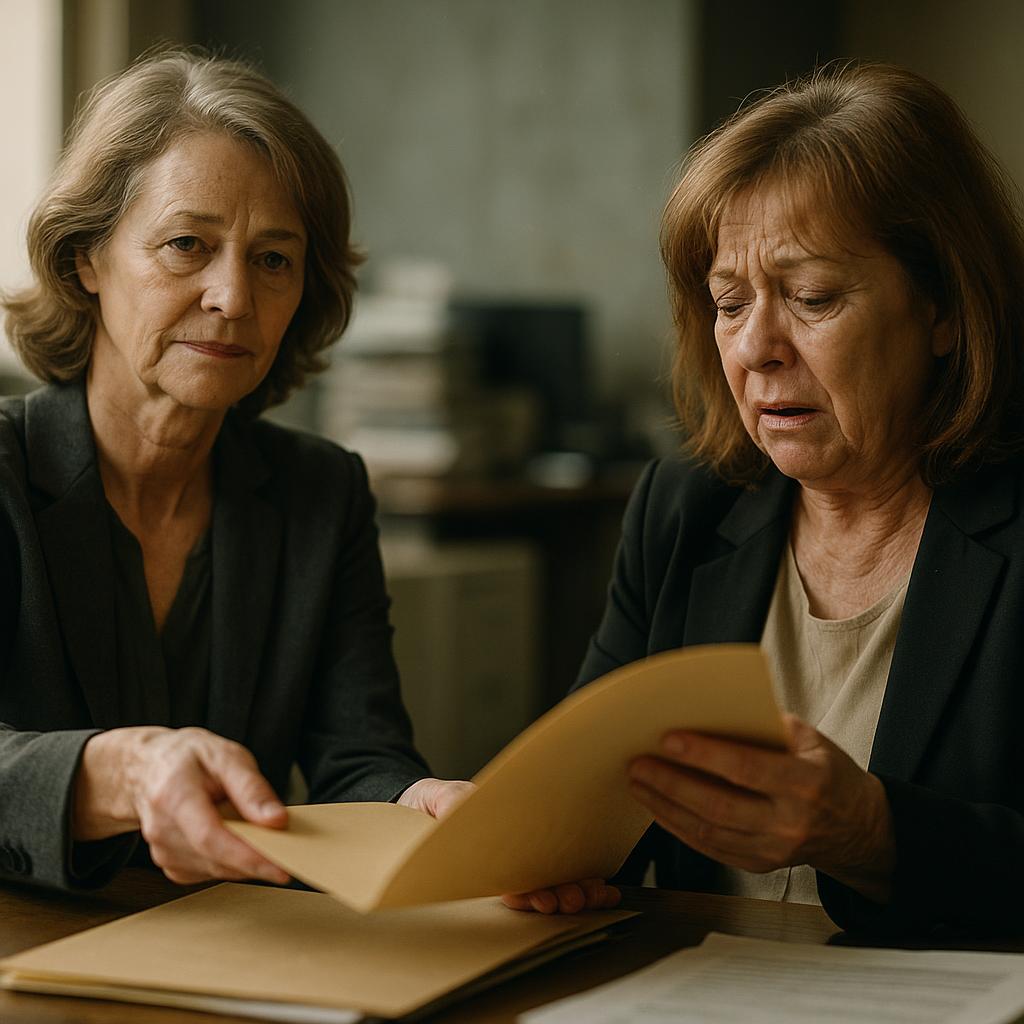 Image by RM AI
Image by RM AI
Filing the Complaint
The morning I filed the formal complaint against Emily was surreal. Ms. Novak's office smelled of leather and lemon polish as I watched her assistant organize the mountain of evidence we'd gathered—bank statements showing the diverted funds, Harold's handwritten letter, the damning audit findings, and Mark's meticulous financial analysis. Each document felt like another nail in the coffin of what little relationship Emily and I had left. 'Are you absolutely certain you want to proceed?' Ms. Novak asked, sliding the final paperwork across her desk. I hesitated, my pen hovering above the signature line. This wasn't just paperwork—it was me formally accusing my late husband's daughter of fraud. The weight of it made my hand tremble. I thought about Harold, about how he'd always told me that doing the right thing rarely felt good in the moment. 'He valued honesty above all else,' I whispered, more to myself than to Ms. Novak. As I signed my name—Laura Wilson—with the same careful penmanship I'd used for 32 years at the bank, a strange sense of peace washed over me. Ms. Novak squeezed my shoulder gently. 'He would be proud of you, Laura,' she said, as if she'd been reading my thoughts. 'This isn't about revenge. It's about justice.' Walking out of that office, I felt simultaneously lighter and heavier—lighter because I was finally taking action, heavier because I knew the real battle was just beginning. What I couldn't possibly know then was just how ugly things would get before they got better.
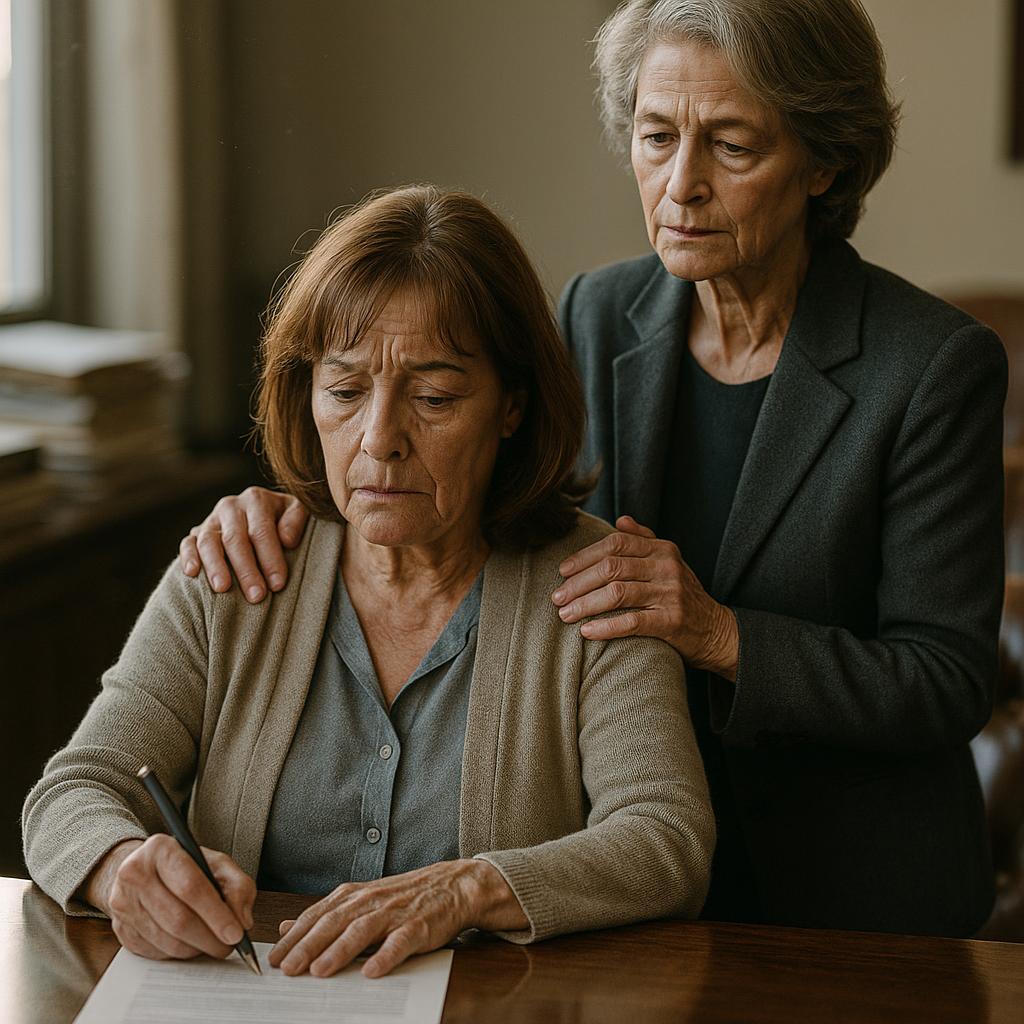 Image by RM AI
Image by RM AI
The Wait Begins
The days after filing the complaint stretched into weeks, then a month. I found myself living in a strange limbo—going through the motions of normal life while carrying the weight of what was happening behind the scenes. Every morning, I'd check my email and phone for updates from Ms. Novak before tending to Harold's garden, which was now bursting with the summer blooms he'd planned last fall. 'The zinnias are beautiful this year, Harold,' I'd whisper, kneeling in the soil with my gardening gloves. 'I wish you could see them.' At the community center where I volunteered twice a week, I'd catch myself zoning out during conversations, my mind drifting to courtrooms and bank statements. Meanwhile, Emily had launched her own campaign. My neighbor Judith called one afternoon, her voice hesitant. 'Laura, I ran into Emily at the grocery store. She told me she's worried about you—said you've been... unstable since Harold passed.' I gripped the phone tighter. 'Did she now?' The nerve of that woman, painting me as the crazy widow while she siphoned away my future. Mark became my rock during this waiting period, dropping by with his famous lasagna and updates from Ms. Novak. 'These things move at the pace of molasses in January,' he'd remind me, refilling my wine glass. 'But the evidence is solid as concrete.' I nodded, trying to believe him. What terrified me most wasn't the waiting—it was the possibility that Emily might somehow slip through the cracks of the legal system, that her professional connections and smooth talking might outweigh the truth. And underneath it all was a question I couldn't shake: if Emily could betray her own father's wishes so completely, what else might she be capable of?
 Image by RM AI
Image by RM AI
Unexpected Support
I was watering Harold's prized dahlias when the doorbell rang. Standing on my porch was Robert, Emily's ex-husband—a man I hadn't seen since their bitter divorce five years ago. He looked like he'd aged a decade, his once-confident posture now hunched with discomfort. "Laura," he said, shifting his weight from one foot to another, "I need to talk to you." Over coffee at my kitchen table, Robert slid a manila folder toward me, his fingers lingering on it as if reluctant to let go. "I found these when I was cleaning out some old files," he explained, not quite meeting my eyes. Inside were printed emails between him and Emily, dated just after Harold's diagnosis. My heart pounded as I read Emily's words: 'Dad's estate will be substantial. As executor, I can temporarily borrow what I need to cover the Riverside losses. No one will notice if I'm careful.' I felt the blood drain from my face. "She told me it was all above board," Robert said quietly, staring into his untouched coffee. "I only realized what was really happening when I saw the news about the audit." His hands trembled slightly. "I should have said something sooner." I reached across the table and squeezed his hand. "You're saying something now," I told him, "and that takes courage." As Robert left, he paused at the door. "Emily can be... ruthless when cornered," he warned. "Be careful, Laura." I watched him drive away, the folder of damning evidence clutched to my chest, wondering what other secrets might still be hidden in the wreckage of Harold's carefully planned legacy.
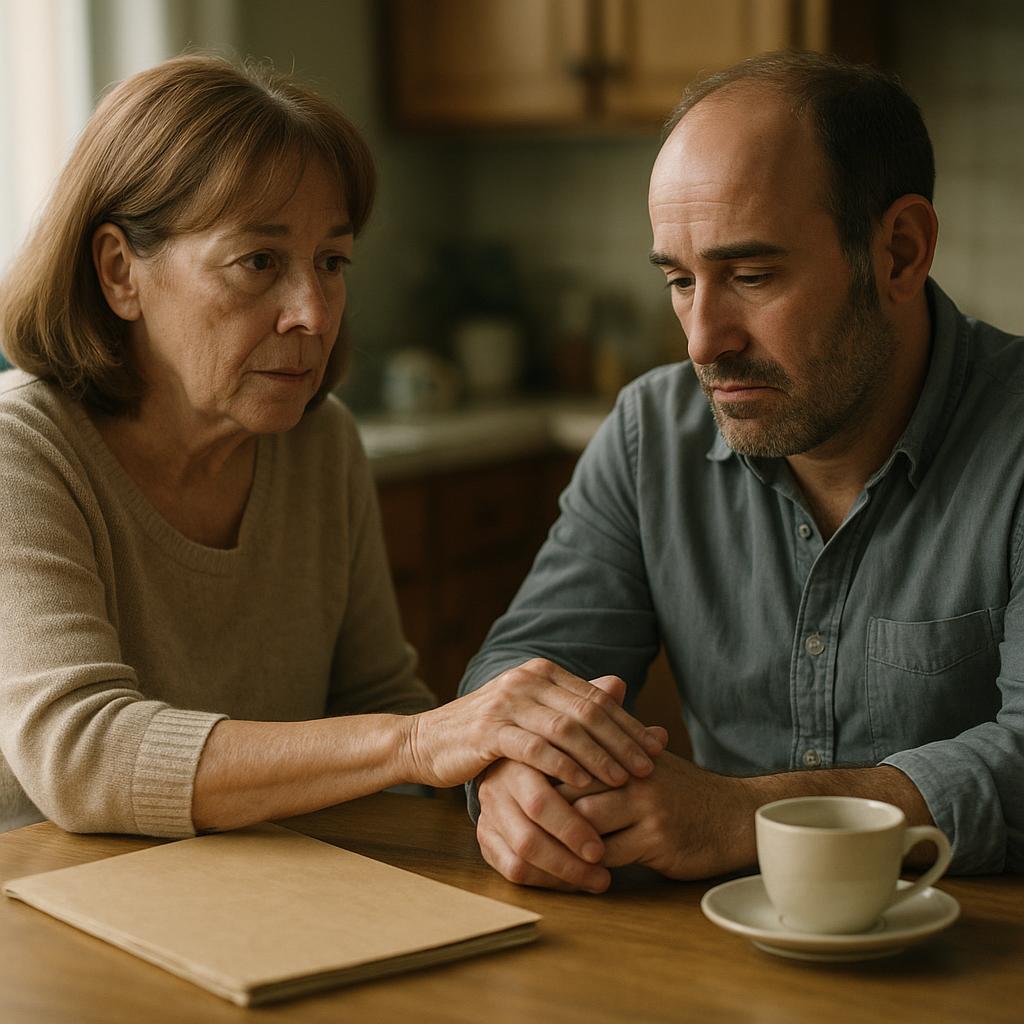 Image by RM AI
Image by RM AI
The Court Date
The court date was set for July 15th—exactly three months after I'd filed the complaint. I marked it on my calendar with a red pen, the circle around the date looking like a warning sign. Ms. Novak spent hours preparing me, her office becoming as familiar as my own living room. 'They'll try to paint you as confused, possibly even unstable,' she warned, role-playing as Emily's attorney with surprising intensity. 'Remember, just stick to the facts and speak clearly.' The night before the hearing, I couldn't sleep. At 2 AM, I found myself wandering into Harold's study, a room I'd mostly avoided since his passing. His leather chair still held the impression of his body, and when I sat down, I could almost feel him surrounding me. The bookshelf held his collection of mystery novels and financial guides—so perfectly Harold in their organization and variety. 'I'm scared,' I admitted to his framed photograph on the desk, his smile frozen in time from our trip to Yellowstone five years ago. 'What if she wins? What if I look like a vindictive old woman?' I traced the edge of his picture frame, the glass cool under my fingertips. 'But this isn't about revenge. You always said do what's right, even when it's hard.' In the stillness of that room, with the faint scent of his aftershave still clinging to his cardigan draped over the chair, I felt something shift inside me. Not confidence exactly, but resolve. Whatever happened tomorrow, I would face it knowing I was honoring the man who'd trusted me with his heart for twenty-three years. As dawn broke through the curtains, I realized I'd fallen asleep in his chair, and for the first time in months, I hadn't dreamed of betrayal or loss—just Harold, walking beside me through a garden of his beloved dahlias, nodding approvingly as if to say, 'You've got this, Laura.'
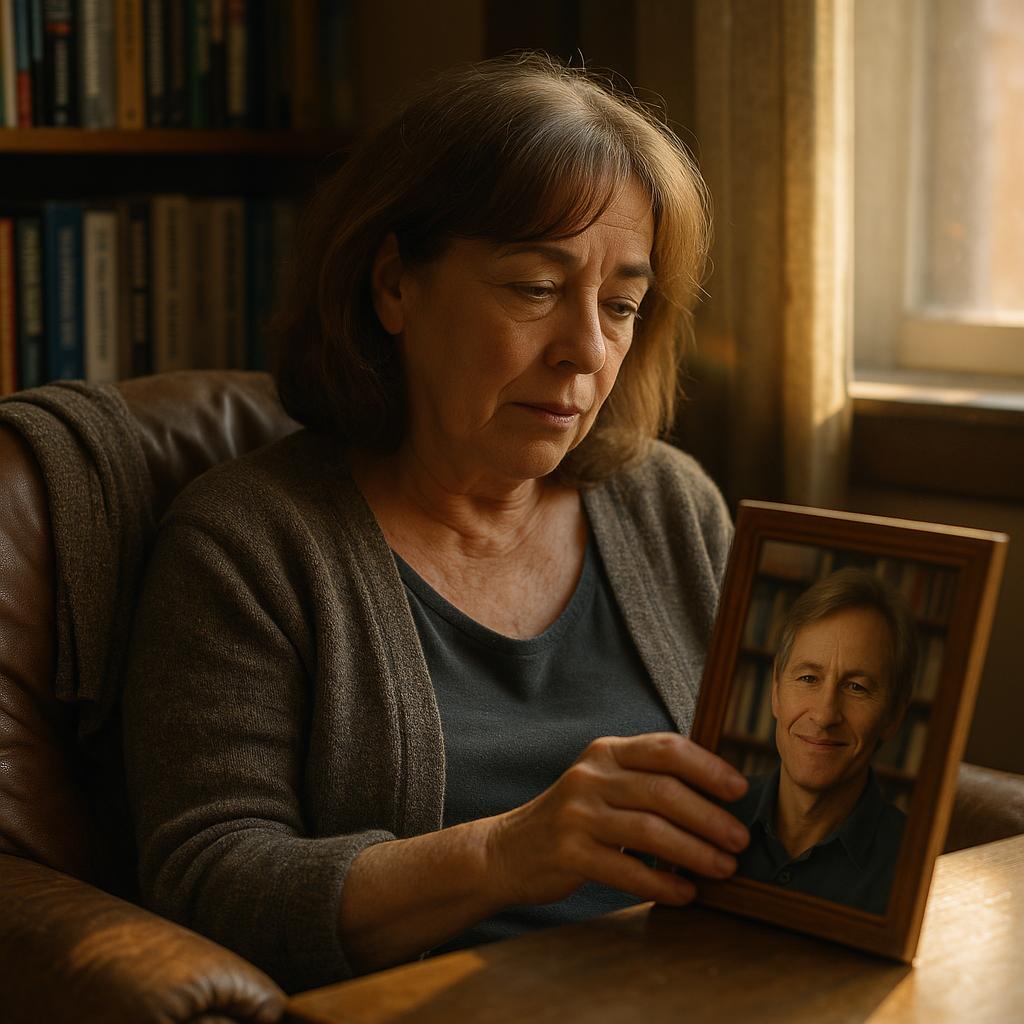 Image by RM AI
Image by RM AI
Day in Court
The courtroom felt smaller than I expected, with its dark wood paneling and American flag standing sentinel beside the judge's bench. I smoothed my navy dress—the one Harold always said made me look distinguished—and tried to steady my breathing. Ms. Novak sat beside me, her legal pad covered in neat handwriting, while across the aisle, Emily refused to meet my eyes. She wore a cream-colored suit that probably cost more than my monthly pension, her posture rigid as a fence post. The Honorable Judge Marilyn Reeves, a woman about my age with silver-rimmed glasses and no-nonsense eyes, studied the documents before her with such intensity I could almost hear the gears turning in her mind. 'The court recognizes this is a complex matter,' she began, her voice carrying surprising warmth despite its authority. When Emily's slick attorney tried characterizing everything as a 'regrettable family misunderstanding,' Judge Reeves cut him off mid-sentence. 'Counselor, I'm particularly interested in these Echelon Holdings transfers,' she said, tapping a document with her pen. 'Perhaps you could explain why funds moved through three separate accounts before landing in your client's personal holdings?' I watched Emily's face drain of color as Robert's damning emails were entered into evidence. Her lawyer whispered something urgently in her ear, but she just stared straight ahead, her carefully constructed world crumbling around her like a sandcastle at high tide. What happened next would change both our lives forever.
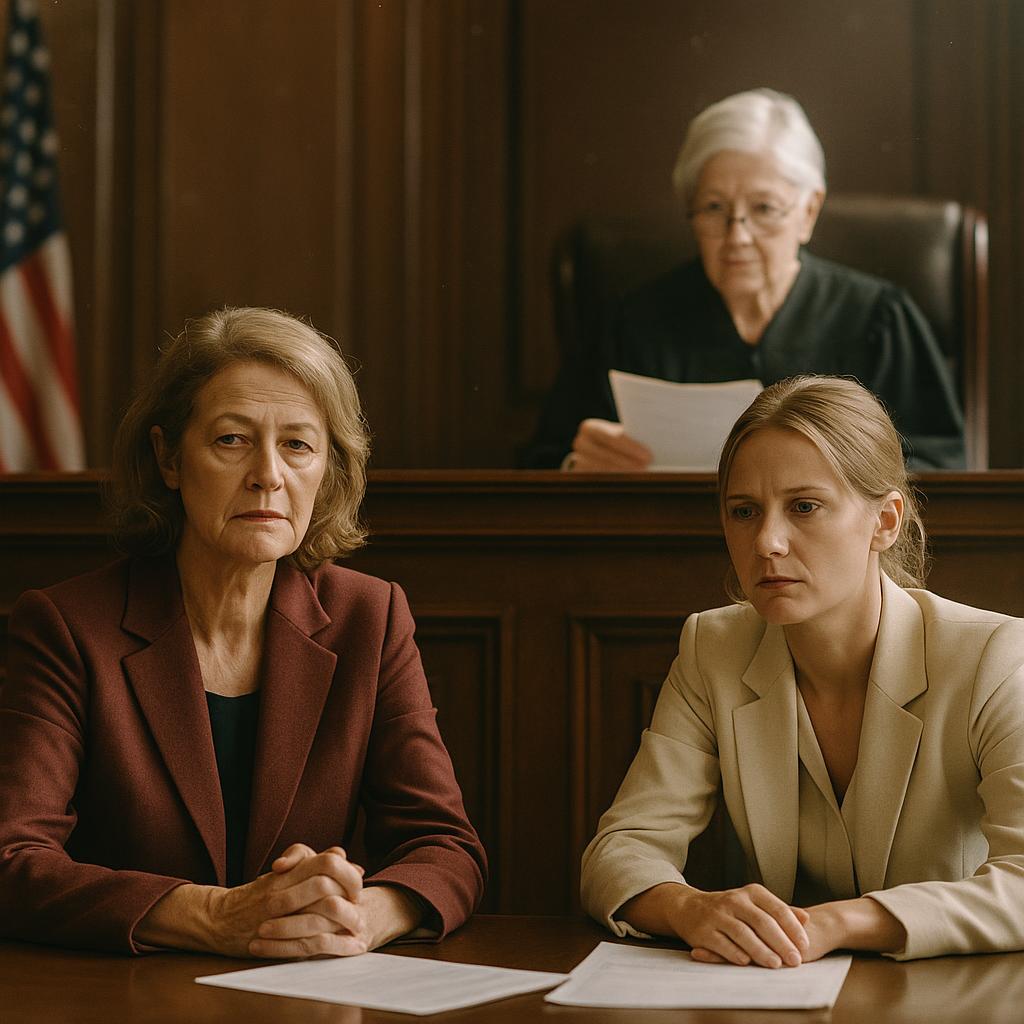 Image by RM AI
Image by RM AI
The Judge's Decision
Judge Reeves cleared her throat, and the courtroom fell silent. I gripped Ms. Novak's hand under the table, my heart pounding so loudly I was sure everyone could hear it. 'After careful review of all evidence presented,' the judge began, her voice steady and clear, 'this court finds substantial proof of improper management of the Wilson estate.' She detailed Emily's violations one by one, each word landing like a stone in still water. When she ordered 'full restitution of all diverted funds, plus interest,' I heard Emily's sharp intake of breath. But it was when Judge Reeves looked directly at Emily and said, 'The court is troubled by your abuse of both your fiduciary duty and your father's trust,' that I felt tears spring to my eyes. Not tears of victory—tears of profound sadness for what Harold would have felt witnessing this moment. As we all rose for the judge's exit, Emily finally turned to look at me. Her face was a battlefield of emotions—anger, shame, and something else that might have been regret. For a fleeting second, I saw the young woman Harold had loved so dearly, now trapped in a web of her own making. Ms. Novak squeezed my shoulder and whispered, 'It's over, Laura.' But as Emily and I locked eyes across the courtroom, I knew with absolute certainty that some things were just beginning.
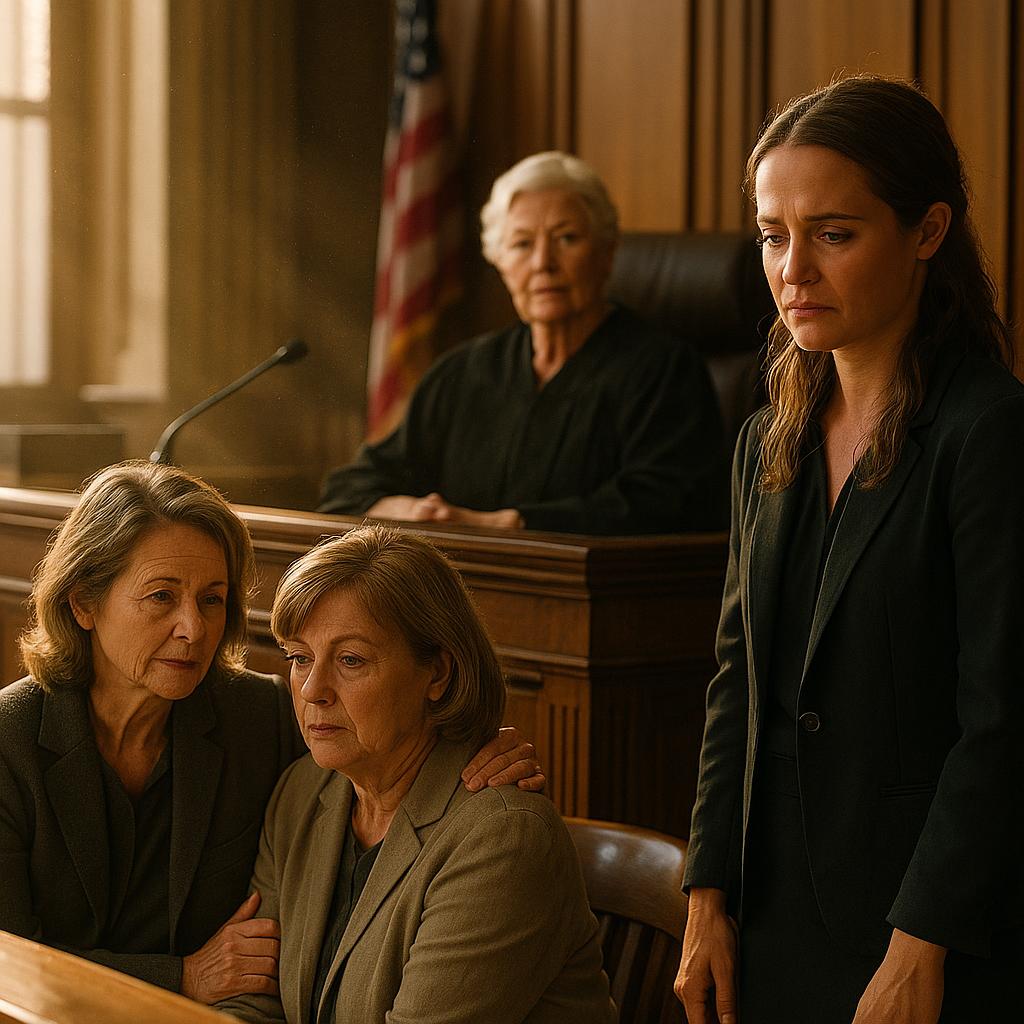 Image by RM AI
Image by RM AI
Aftermath
The marble hallway outside the courtroom felt like it was closing in on me as Ms. Novak discussed our next steps. 'The funds should be released within thirty days,' she explained, but her words seemed to float past me. I was exhausted—emotionally drained in a way that no amount of rest could fix. That's when I saw Emily break away from her lawyer, marching toward us with purpose in her stride. My heart hammered against my ribs. 'This isn't over,' she hissed, her voice low enough that only we could hear it. 'You've ruined everything.' The venom in her words made me flinch. This wasn't the woman Harold had raised—or maybe it was, and I'd just never truly seen her. Before I could find my voice, Ms. Novak stepped between us like a shield. 'Ms. Wilson,' she said with practiced calm, 'I strongly suggest all future communication go through proper legal channels.' Emily's eyes, so much like Harold's in shape but nothing like his in warmth, locked with mine for one final moment. As she turned and walked away, her cream suit disappearing around the corner, I felt no triumph—only a profound emptiness. Harold had spent his life building bridges between the people he loved, and here we were, burning the last one to ashes. I wondered if, somewhere, he was watching this sad finale to the family he'd tried so hard to nurture. What would hurt him more, I wondered—his daughter's betrayal or the fact that there was no path back from it?
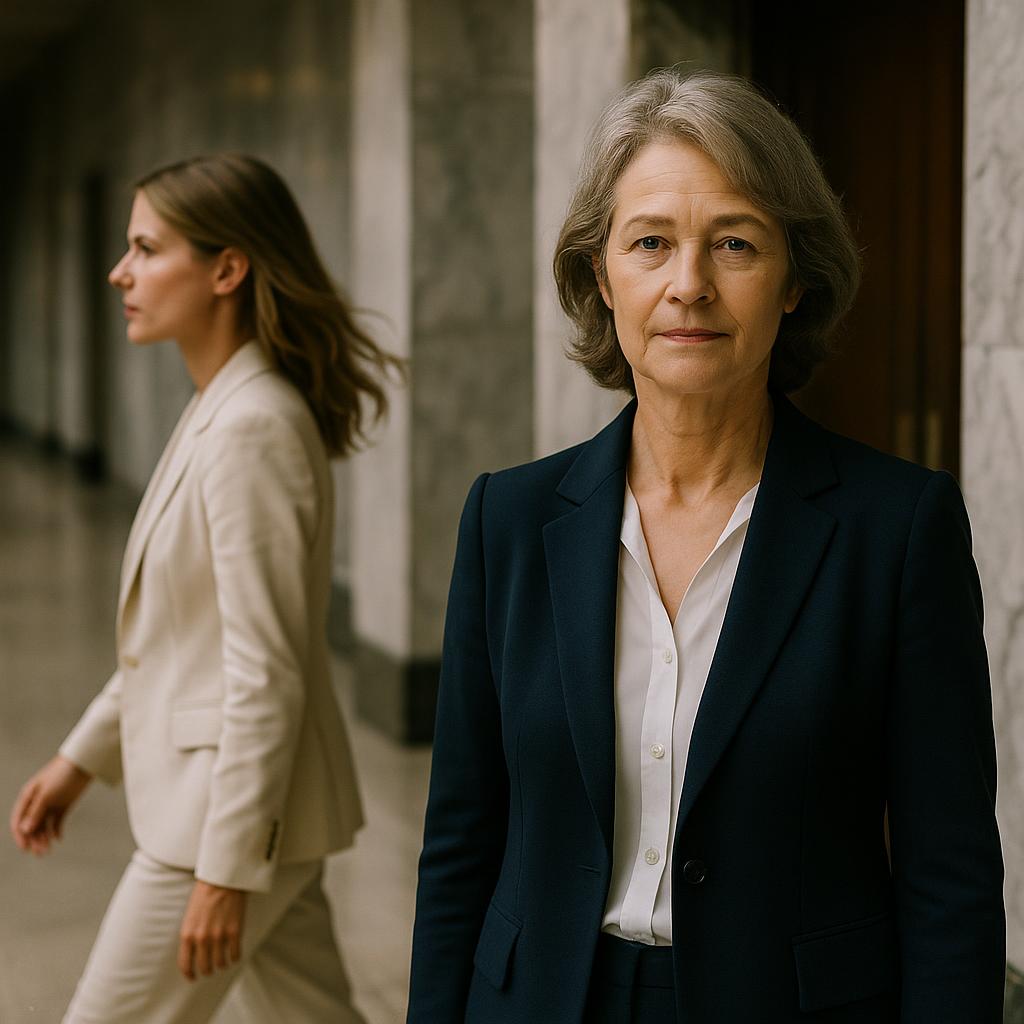 Image by RM AI
Image by RM AI
The New Executor
Two weeks after the court ruling, I met Mr. Levine, the court-appointed executor, at my kitchen table. What a difference from Emily's slick presentations! He arrived in a rumpled suit with a battered leather briefcase that reminded me of Harold's old one. 'Mrs. Wilson,' he said, adjusting his reading glasses, 'I believe in absolute transparency.' He spread documents across the table, each one in a color-coded folder. 'Green for assets, blue for liabilities, yellow for pending items,' he explained, his voice steady and reassuring. When he discovered three additional accounts Emily had hidden—including one with nearly $42,000 in municipal bonds—he didn't try to soften the blow. 'Unfortunately, this happens more often than people realize,' he told me, pouring the tea I'd offered. 'Family members sometimes convince themselves they're entitled to more than their share.' I appreciated his candor. There was something healing about his matter-of-fact approach, as if he was saying: This isn't about you, Laura. You didn't cause this. As we worked through Harold's estate piece by piece, I found myself breathing easier than I had in months. 'You know,' Mr. Levine said as he packed up his briefcase, 'your husband kept meticulous records. That's ultimately what protected you.' He paused at the door. 'And Mrs. Wilson? The judge mentioned something interesting about Emily's financial advisory license that you should probably know.'
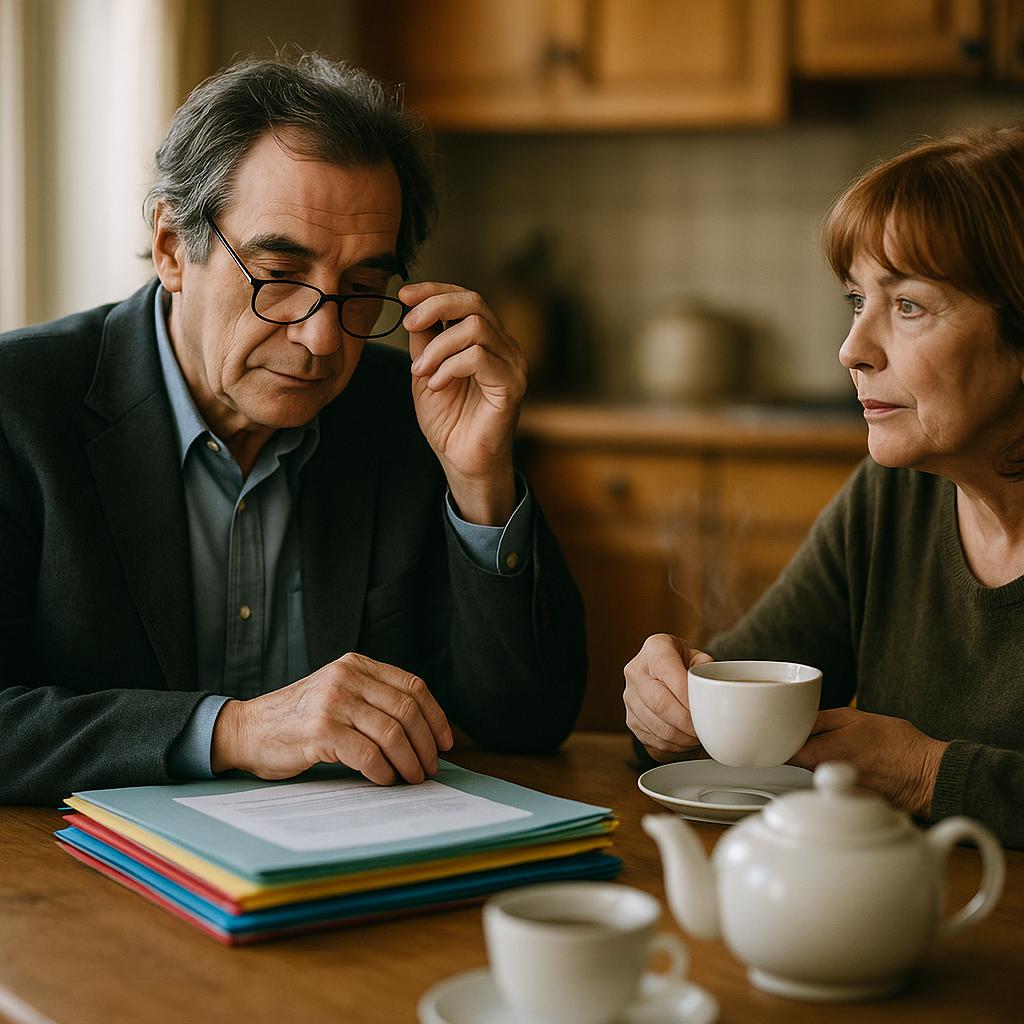 Image by RM AI
Image by RM AI
Restitution Begins
The first restitution payment arrived on a Tuesday morning. I was watering Harold's peace lily when my phone pinged with the bank notification. Unlike that mysterious $48,750 deposit that had started this whole ordeal, this transfer came with proper documentation and a clear paper trail. Mr. Levine had called the day before to prepare me. 'It's just the beginning, Mrs. Wilson,' he'd explained in that gentle, no-nonsense way of his. 'Emily's assets are frozen by court order, and we're unwinding those shell companies one by one.' I sat at the kitchen table, staring at my phone screen, feeling oddly numb. The money wasn't just currency—it was Harold's intentions restored, his careful planning honored at last. When I called Mark to tell him, he suggested champagne. 'Not yet,' I told him. 'Maybe when it's all done.' The truth was, I felt no triumph, no vindication. Just a hollow sort of peace, like the quiet after a violent storm. That evening, as I sorted through Harold's old vinyl records—another project I'd been putting off—I found a note he'd tucked into his favorite Sinatra album: 'For Laura—remember, the best is yet to come.' I traced his handwriting with my fingertip, wondering if he'd somehow known I'd need that reminder long after he was gone. What I couldn't possibly know then was that Emily wasn't quite finished fighting—and that the next morning would bring a visitor I never expected to see again.
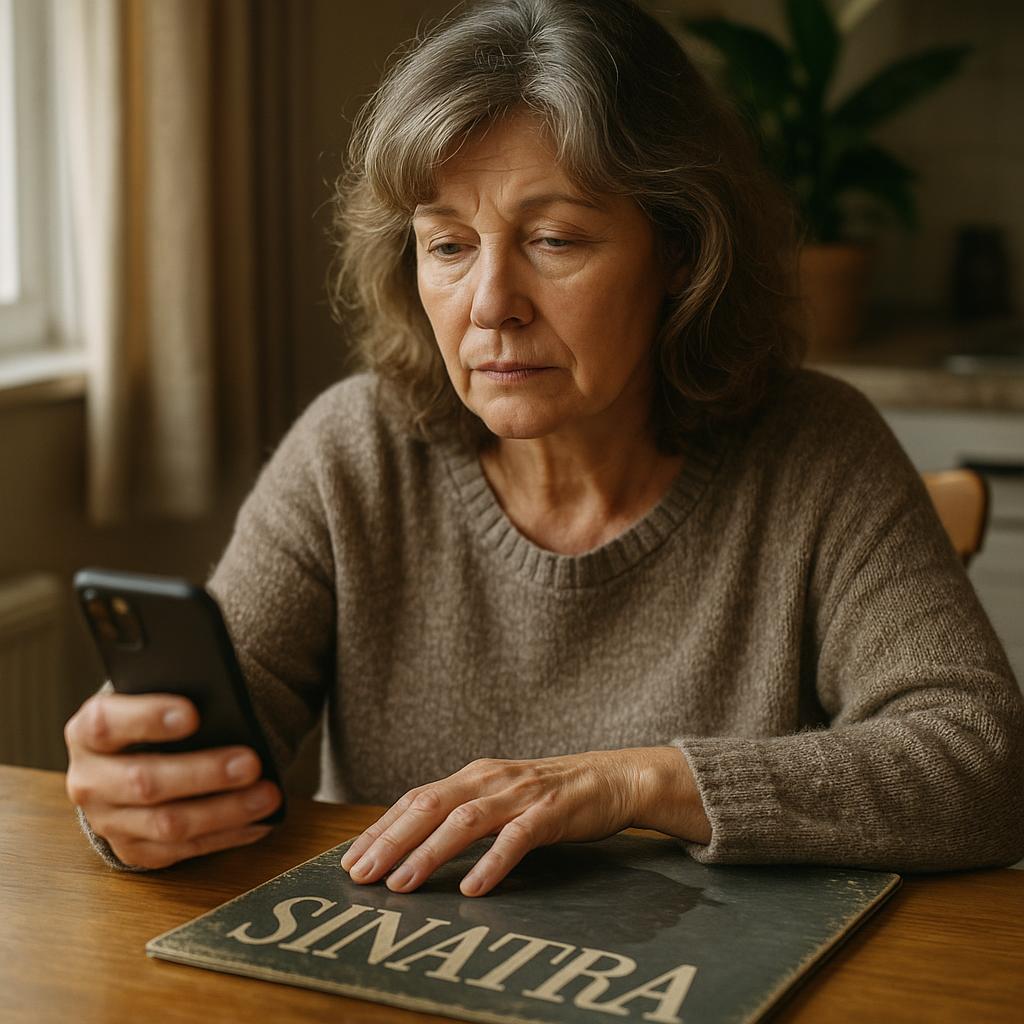 Image by RM AI
Image by RM AI
Emily's Consequences
Three weeks after the court ruling, I was sipping tea with my neighbor Judith when she leaned in conspiratorially. 'Did you hear about Emily?' she asked, her voice dropping to that tone people use when sharing something juicy. Apparently, news travels fast in financial circles. Emily's firm had placed her on 'indefinite administrative leave' while the state regulatory board conducted a full investigation into her practices. 'My nephew works at Meridian Investments,' Judith explained. 'Says they're combing through all her client files now.' I set my teacup down carefully, surprised by my own lack of satisfaction at this news. Shouldn't I feel vindicated? Instead, I felt a complicated sadness. When I mentioned this to Mark during our weekly dinner, he nodded thoughtfully. 'Maybe this is what she needed, Laura. A wake-up call.' He passed me the bread basket. 'People can change when they hit rock bottom.' I wanted to believe that—that somewhere beneath the calculating woman who'd tried to steal her father's legacy was still the girl Harold had loved so fiercely. But the memory of Emily's face in that courtroom, twisted with rage rather than remorse, made it hard to imagine. That night, as I sorted through more of Harold's belongings, I found a photo album I hadn't opened since his passing. There she was—Emily at sixteen, laughing beside her father on a fishing trip, her eyes bright with the same warmth Harold had carried all his life. I traced the outline of their smiling faces and wondered: was that Emily still in there somewhere, or was she gone forever?
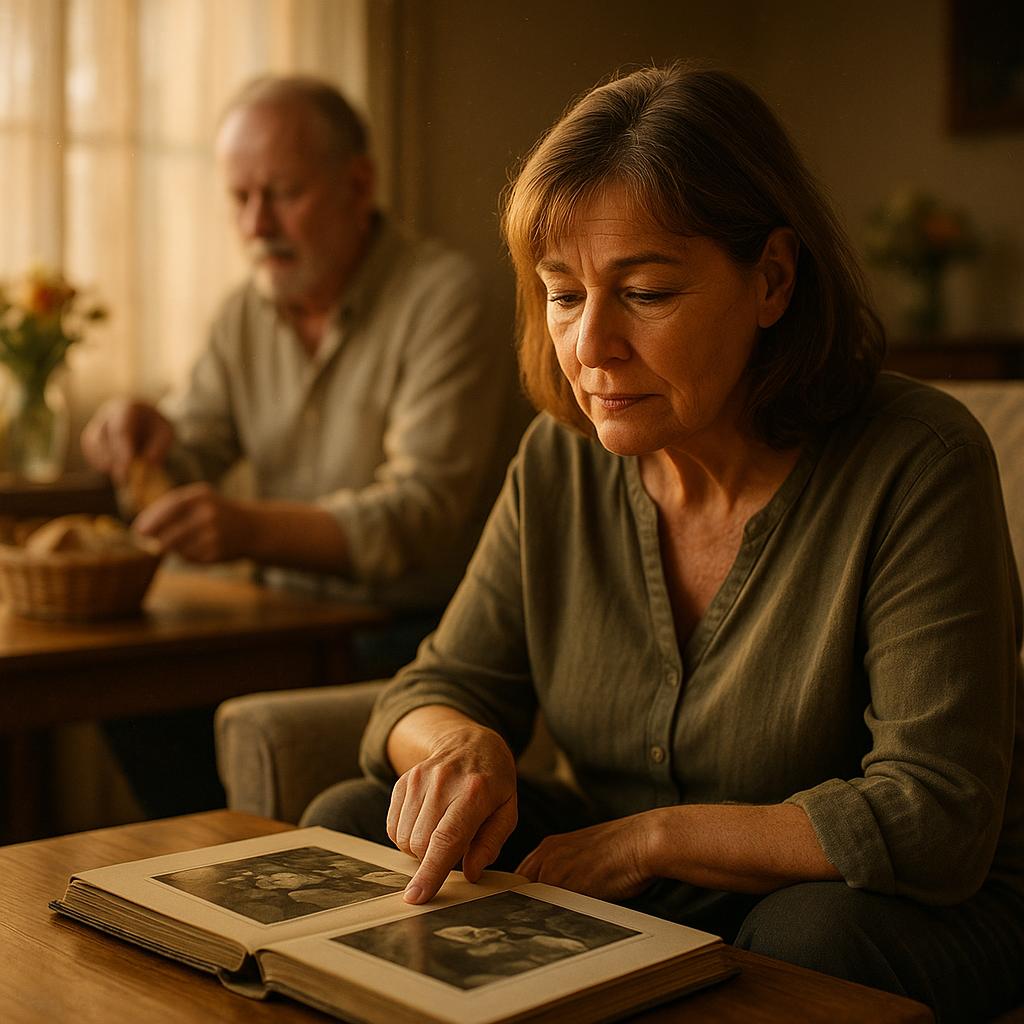 Image by RM AI
Image by RM AI
The House Feels Different
It's been two weeks since the final restitution payment arrived, and I've noticed something strange—the house feels different now. Not just emptier without Harold, which has been true since that awful February morning, but somehow lighter, as if the weight of Emily's betrayal had been pressing down on these walls too. I find myself wandering from room to room, running my fingers along the spines of Harold's books, straightening picture frames that don't need straightening. Last night, I sat in our bedroom and realized I'd spent more time looking at legal documents than at our photo albums these past months. So I pulled out our wedding album and let myself remember the good parts—Harold's terrible dancing, the way he kept whispering "Mrs. Wilson" in my ear like it was our little secret. For the first time, those memories didn't immediately get crowded out by thoughts of probate courts and bank statements. This morning over coffee, I caught myself thinking something that felt almost like betrayal: Do I even want to stay here? This house with its four bedrooms made sense when Emily and her college friends would visit, when Harold's siblings would stay for holidays. Now it's just me rattling around in all this space, dreading the thought of cleaning the gutters come fall. The maintenance alone is exhausting to contemplate. But leaving? That feels like abandoning Harold somehow. Then again, as I stood in our garden this afternoon, I could almost hear him saying what he always said when I fretted over big decisions: "Laura, honey, houses are just boxes. Home is where you feel right." I wonder if he knew, even then, that someday I'd need to hear those words without him here to say them.
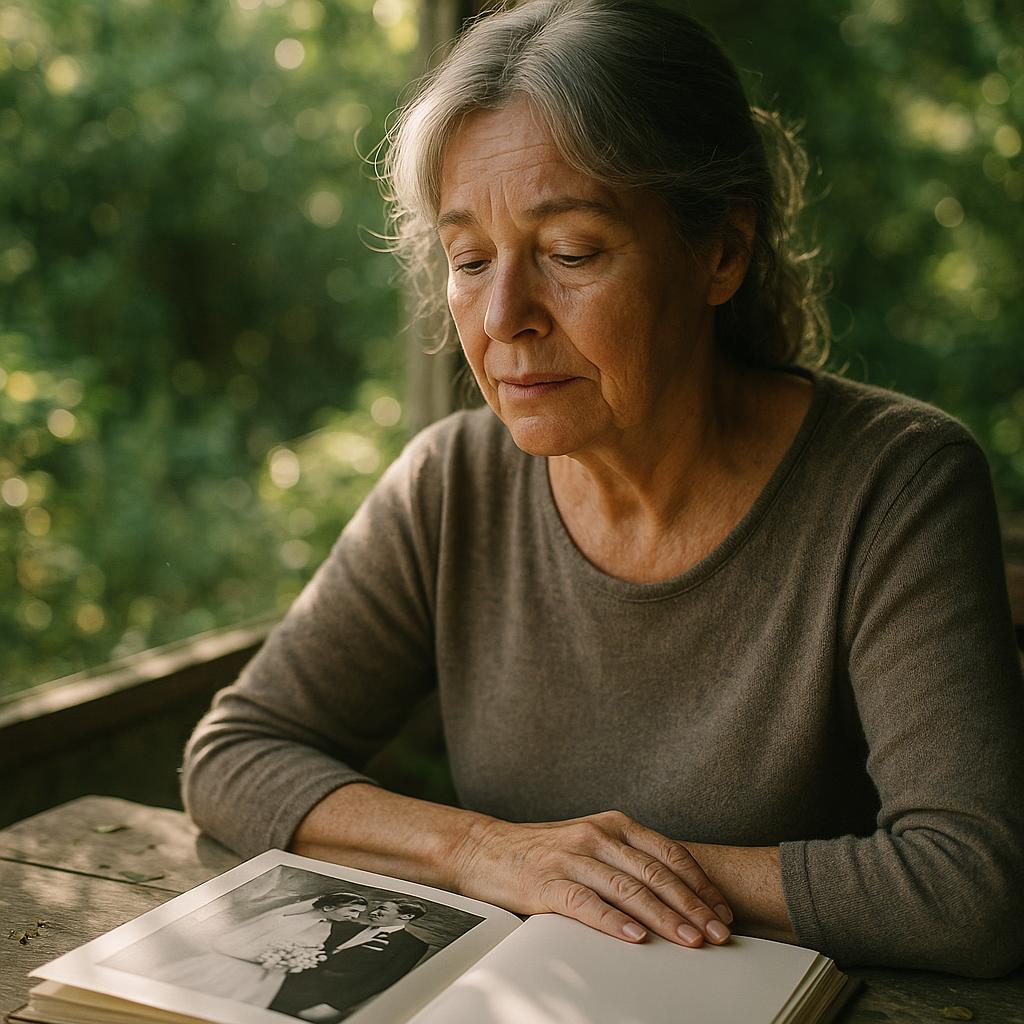 Image by RM AI
Image by RM AI
Lunch with My Sister
I met Diane at Rosie's Café yesterday—our special spot where the cinnamon rolls are bigger than your face and the coffee never stops flowing. I hadn't told her everything about Emily yet, just bits and pieces over the phone. But sitting across from her in our usual corner booth, watching her methodically stir her tea, I finally let the whole story pour out. Diane's face was like watching a weather system move through—cloudy with shock, then stormy with anger, finally settling into the gentle rain of sisterly concern. She didn't interrupt once, just nodded and occasionally squeezed my hand across the table. When I finished, she set down her spoon with a decisive clink. "You know," she said, leaning forward, "I always thought there was something off about Emily. Remember Harold's birthday last year? The way she barely acknowledged you existed? Like you were the caterer instead of his wife." I laughed despite myself—Diane always had a way of cutting to the heart of things. The conversation shifted as we shared a slice of lemon cake, with Diane casually mentioning the empty condo down the street from her in Oakridge. "It's got a garden terrace," she said, trying to sound nonchalant. "And I'm only five minutes away." The thought of being near family again—of Sunday dinners and impromptu coffee dates—settled over me like a warm blanket. For the first time in months, I felt something that resembled hope. What I didn't know then was that Emily had one more surprise waiting for me when I got home.
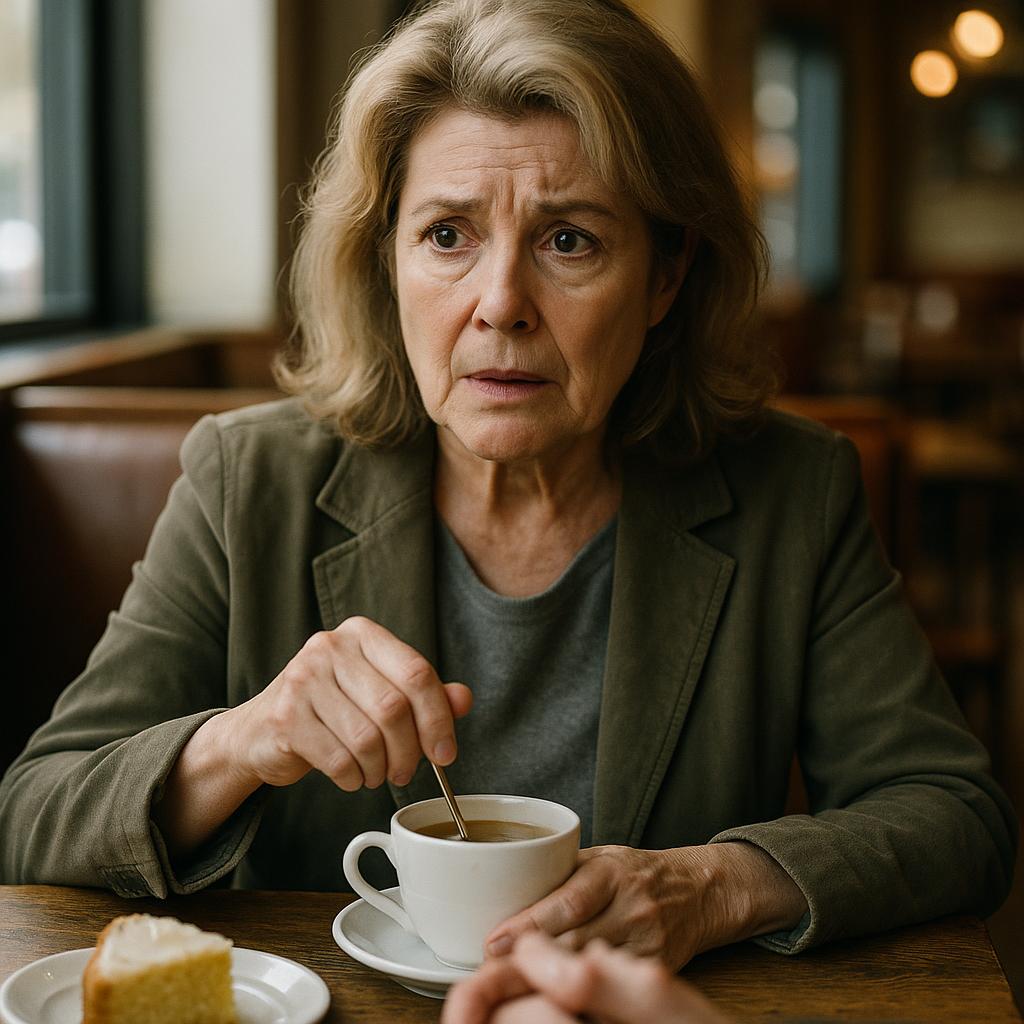 Image by RM AI
Image by RM AI
The Realtor's Visit
I called a realtor yesterday—something I never thought I'd do without Harold by my side. Ms. Winters arrived promptly at 10 AM, clipboard in hand and sensible shoes on her feet. 'Let's start with a walkthrough,' she suggested, her practiced smile putting me at ease. As we moved from room to room, I watched her taking notes, occasionally nodding with approval. 'The original hardwood floors are a major selling point,' she remarked in the living room. 'And these built-ins? People pay extra for craftsmanship like this.' In Harold's study, I found myself lingering by his desk, running my fingers along the edge where he'd worn down the finish from years of leaning on his elbows. Ms. Winters gave me a moment before gently continuing. When we reached the kitchen—Harold's domain on Sunday mornings—she paused by the bay window. 'This garden view is spectacular,' she said, genuinely impressed. Before I knew it, I was telling her about Harold's prized tomatoes, how he'd wake at dawn to check on them, how he'd bring me breakfast with tomatoes still warm from the sun. 'He sounds like he was quite the gardener,' she smiled. 'And quite the husband.' When she mentioned that the market was particularly strong right now, I felt something unexpected—a flutter of excitement rather than the guilt I'd anticipated. 'You could be looking at offers well above asking, especially with this location,' she explained. As she prepared to leave, Ms. Winters handed me her card. 'Take your time, Mrs. Wilson. This is a big decision.' What she couldn't have known was that for the first time since Harold's death, I was actually looking forward to making one.
 Image by RM AI
Image by RM AI
House Hunting in Oakridge
Diane picked me up early Tuesday morning, her SUV loaded with coffee and muffins for our house-hunting adventure. 'You're going to love Oakridge,' she promised as we drove through tree-lined streets. The town was exactly as she'd described—charming without being precious, with a bustling main street full of independent shops where owners waved to each other through windows. We met Carolyn, the realtor, outside a coffee shop where locals greeted Diane by name. 'Your sister's been talking you up for weeks,' Carolyn told me with a wink. We toured four properties that day, but it was the third—a sage-green cottage with a reading nook overlooking a small garden—that made my heart skip. 'This window seat,' I whispered, running my hand along the cushion. 'Harold would have loved this.' Instead of the usual pang of grief, I felt something like permission. As if he was nodding in approval. Over dinner at Diane's that night, surrounded by her husband, their grown children, and two grandkids who climbed into my lap without hesitation, I realized how isolated I'd become. 'The library's always looking for volunteers,' Diane mentioned casually, passing the potatoes. 'Especially for the children's reading program.' I nearly dropped my fork—I'd run a similar program back home for years. 'Is that a sign?' I asked, half-joking. Her daughter Emma laughed. 'If you're looking for signs, Aunt Laura, this is basically a billboard.' What none of them knew was that I'd already made my decision the moment I'd sat in that reading nook, imagining new possibilities instead of just memories.
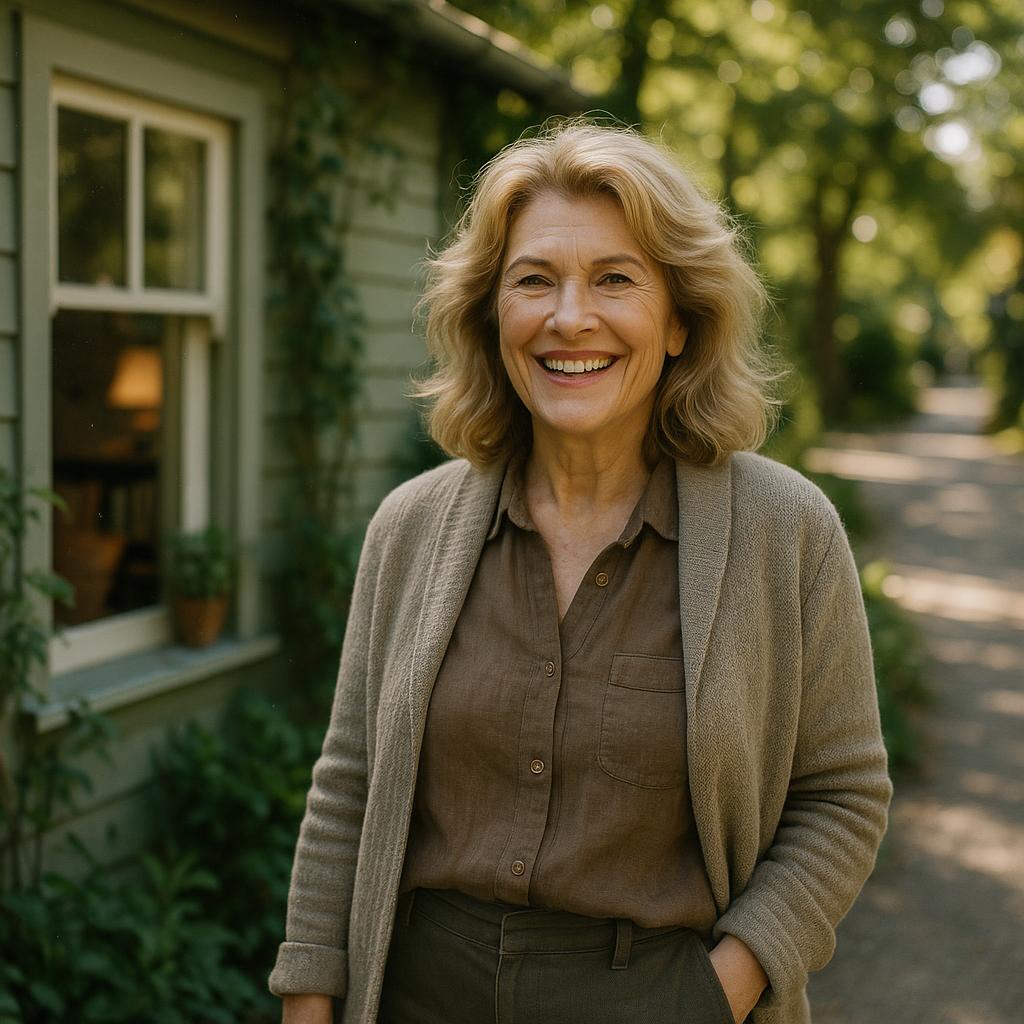 Image by RM AI
Image by RM AI
Making the Decision
I sat at Harold's desk last night, legal pad in front of me, just like he taught me. Two columns: 'Stay' and 'Move.' The yellow paper glowed under his old brass desk lamp—the one I'd polished every month for thirty years. Under 'Stay,' I wrote: 'Memories. Harold's garden. Familiar neighbors. The kitchen where we danced on Sunday mornings.' My pen hesitated before starting the 'Move' column: 'Closer to Diane. Smaller space to maintain. Fresh start. No ghosts in every corner.' I traced the wood grain of his desk with my fingertip, remembering how he'd approach big decisions—methodically listing pros and cons, then ultimately trusting his gut. 'What would you do, Harold?' I whispered to the empty room. No answer came, of course, but somehow the silence felt different. Less accusing. By midnight, my decision was clear. This house holds our past, but it can't give me a future. The memories won't disappear if I leave—they'll travel with me, tucked safely beside my heart. I think Harold knew this day would come. That's why he always told me, 'Laura, the bravest thing you can do is choose your own path forward.' As I closed the legal pad and turned off his lamp, I felt something I hadn't experienced in months: certainty. What I couldn't possibly know was how quickly everything would change once I made that phone call to Ms. Winters the next morning.
 Image by RM AI
Image by RM AI
Listing the House
The 'For Sale' sign went up this morning, a splash of red and white against the green of Harold's meticulously maintained lawn. Ms. Winters arrived early with her team, arranging fresh flowers in the entryway and suggesting I temporarily remove some of our personal photos. 'It helps buyers picture themselves living here,' she explained gently. I nodded, understanding the logic even as my heart protested. One by one, I carefully wrapped our wedding portrait, the candid shot of Harold laughing at our 25th anniversary party, the beach photos from Sanibel Island. Each frame felt heavier than its actual weight, loaded with memories I wasn't ready to part with. 'You're not leaving these behind,' I reminded myself, 'just making space.' Harold's reading chair—the worn leather one with the perfect indentation where he'd sit for hours with his mysteries—was deemed too personal by the staging consultant. As I ran my hand over its arm, I could almost feel the warmth of his presence. By noon, our home of thirty years looked like something from a magazine—beautiful but somehow not quite ours anymore. When the first potential buyers arrived, a young couple with excited eyes, I grabbed my purse and headed to the park. Sitting on a bench by the duck pond, I felt something unexpected bloom in my chest: hope. Not just for selling the house, but for whatever came next. What I couldn't have anticipated was who would be waiting in my driveway when I returned home three hours later.
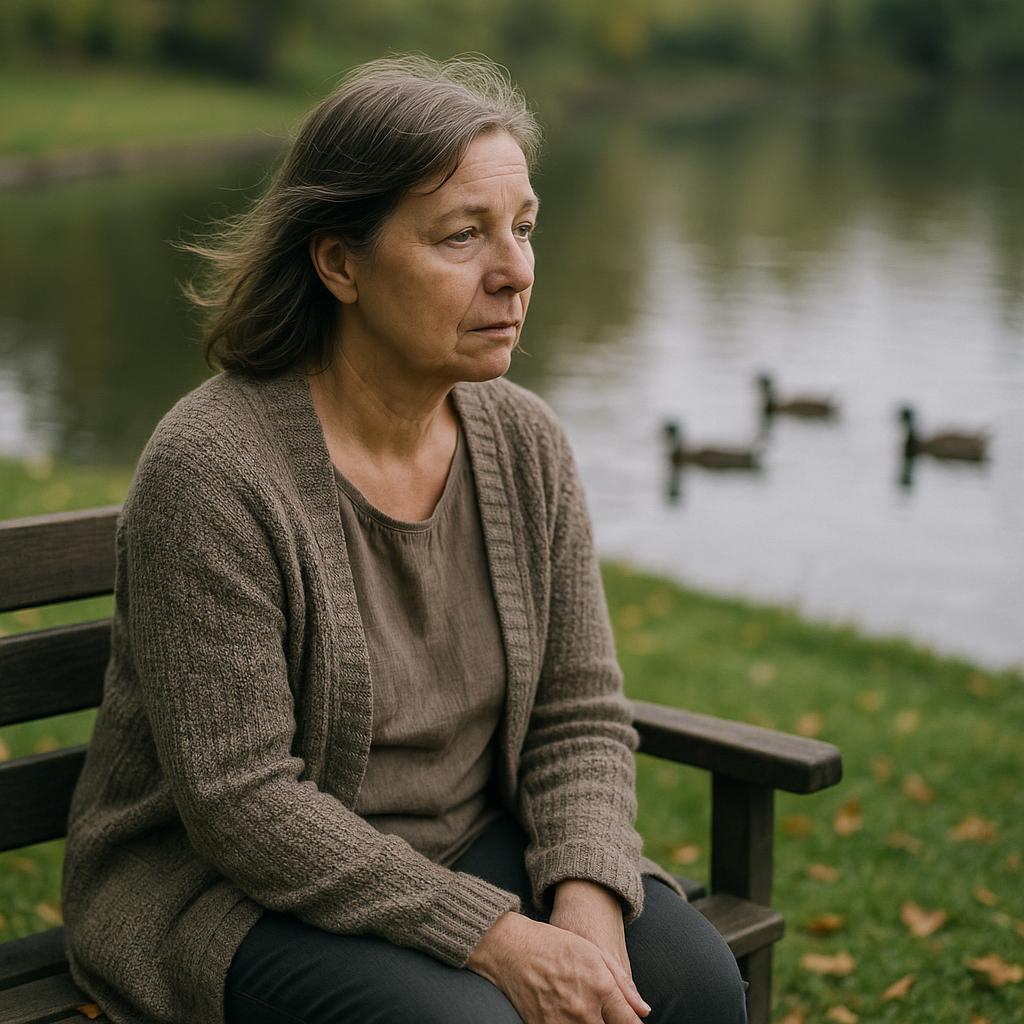 Image by RM AI
Image by RM AI
An Unexpected Letter
The mail arrived just after lunch—mostly the usual suspects of bills and those glossy real estate flyers I'd been getting since listing the house. But there, nestled between a utility bill and a supermarket circular, was an envelope that made my heart stutter. I recognized Emily's handwriting immediately—those precise, slanted letters that Harold always said looked like they belonged in a calligraphy exhibit. My fingers trembled slightly as I opened it, half-expecting another legal threat. Inside was a single sheet of cream-colored stationery and something small that clinked against the paper. 'Laura,' the note began without preamble, 'I found this while clearing out my desk. It's the key to Dad's safe deposit box at First National. There are things in there he would want you to have. I should have given you this months ago.' No 'I'm sorry.' No 'I was wrong.' Just those few lines, ending abruptly without even a signature. I turned the small brass key over in my palm—the same key Harold had shown me years ago, explaining it was where he kept 'the irreplaceable stuff.' Why was Emily sending this now? Was this some kind of olive branch, or was there something else waiting for me in that box? I slipped the key into my pocket, feeling its weight against my thigh like a question that needed answering. What I couldn't possibly know then was that the contents of that safe deposit box would change everything I thought I knew about Harold—and about Emily.
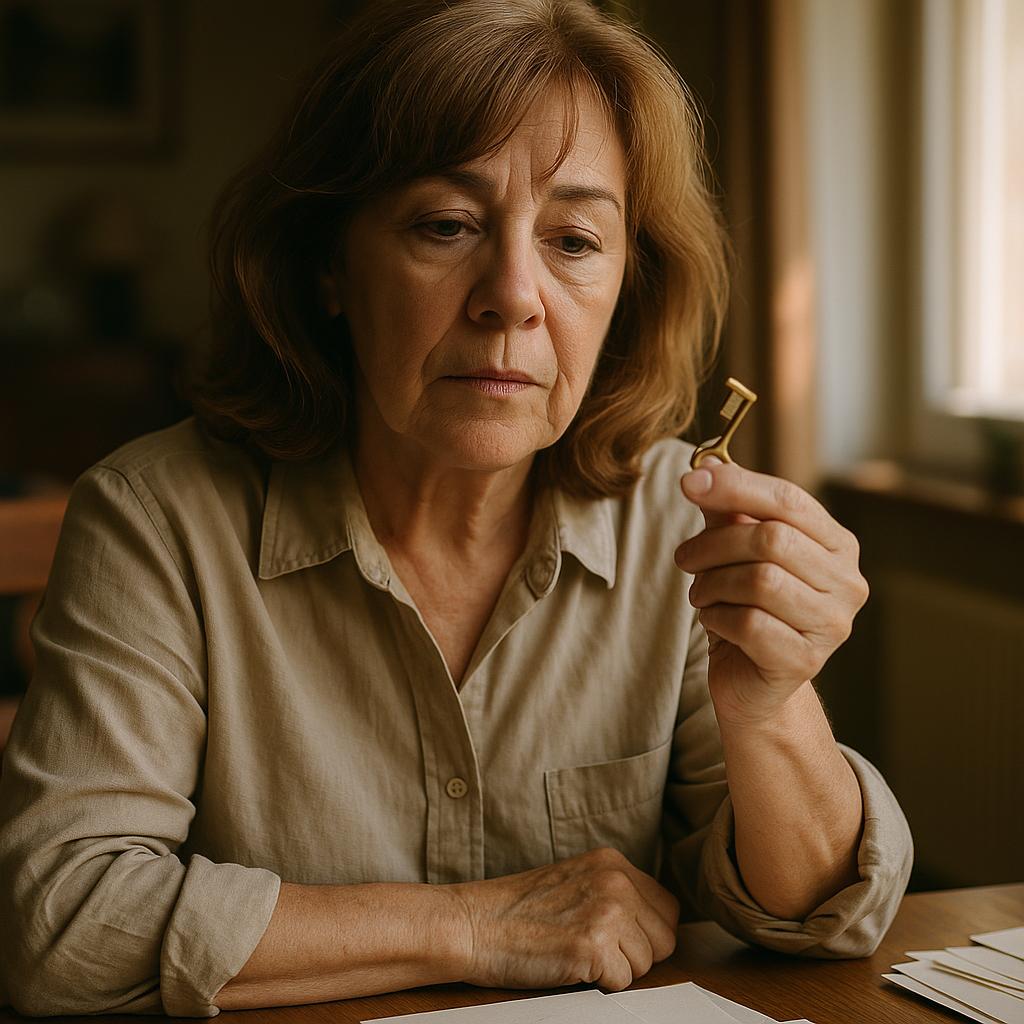 Image by RM AI
Image by RM AI
The Safe Deposit Box
The next morning, I drove to First National with Emily's key burning a hole in my pocket. The bank manager, Mr. Peterson, recognized me immediately. 'Mrs. Wilson,' he said, his voice softening, 'I was so sorry to hear about Harold.' He escorted me personally to the vault, his polished shoes clicking against the marble floor. 'Take all the time you need,' he told me, closing the viewing room door behind him. I sat alone with the metal box, my reflection distorted in its surface. My hands trembled as I inserted the key, hearing that distinctive click as the lock released. Inside, neatly organized as everything Harold did, were the documents I expected—our birth certificates, marriage license, property deeds. But then I found things I never knew existed: a small velvet jewelry box containing his grandmother's sapphire ring (which I'd tearfully told him years ago I thought was lost during our move), a leather-bound journal with entries dating back twenty years, and a cream-colored envelope with my name written in Harold's steady hand. The postmark showed he'd mailed it to himself just three weeks before he died. I traced my name with my fingertip, almost afraid to break the seal. When I finally opened it, the first line made my heart stop: 'My dearest Laura, If you're reading this, then I'm gone, and there are things about Emily you need to know that I was too ashamed to tell you while I was alive.'
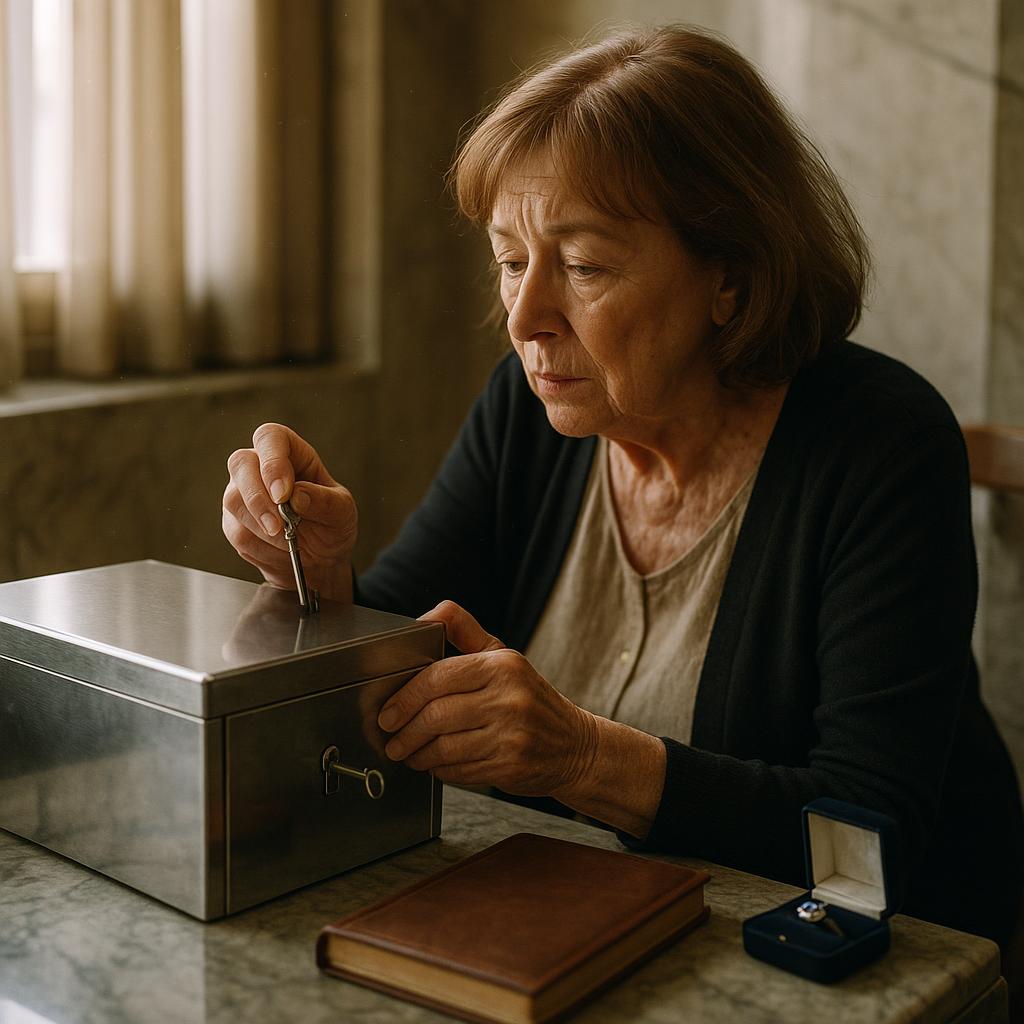 Image by RM AI
Image by RM AI
Harold's Final Words
I sat alone in the bank's viewing room, Harold's letter trembling in my hands. 'My dearest Laura,' it began, and just seeing his handwriting made my heart ache with fresh grief. As I read, it was like he was sitting beside me, his voice clear in my mind. 'You have always been braver than you think,' he wrote, and I had to pause, wiping tears with the back of my hand. Harold spoke of our life together with such pride, such tenderness that I could barely breathe through the tightness in my chest. But then came the part about Emily. 'I've tried to guide her, but she's always been stubborn—like her old dad.' He'd known. All this time, he'd seen the warning signs in his daughter's financial decisions, her character flaws that eventually led to her betrayal. There was regret in his words, a father's pain at not having done more to correct her path. Yet even in acknowledging her shortcomings, there was love—that stubborn, hopeful love parents never quite surrender. 'Don't let grief keep you in one place, my darling,' he urged, as if he could see me now, hesitating at the threshold of my new life. I pressed the letter to my heart, feeling both devastated and strangely comforted. Harold hadn't been blind to Emily's nature; he'd just been hopeful she would change. What I couldn't possibly know then was that there was more to Harold's letter—a revelation on the second page that would change everything I thought I understood about our family.
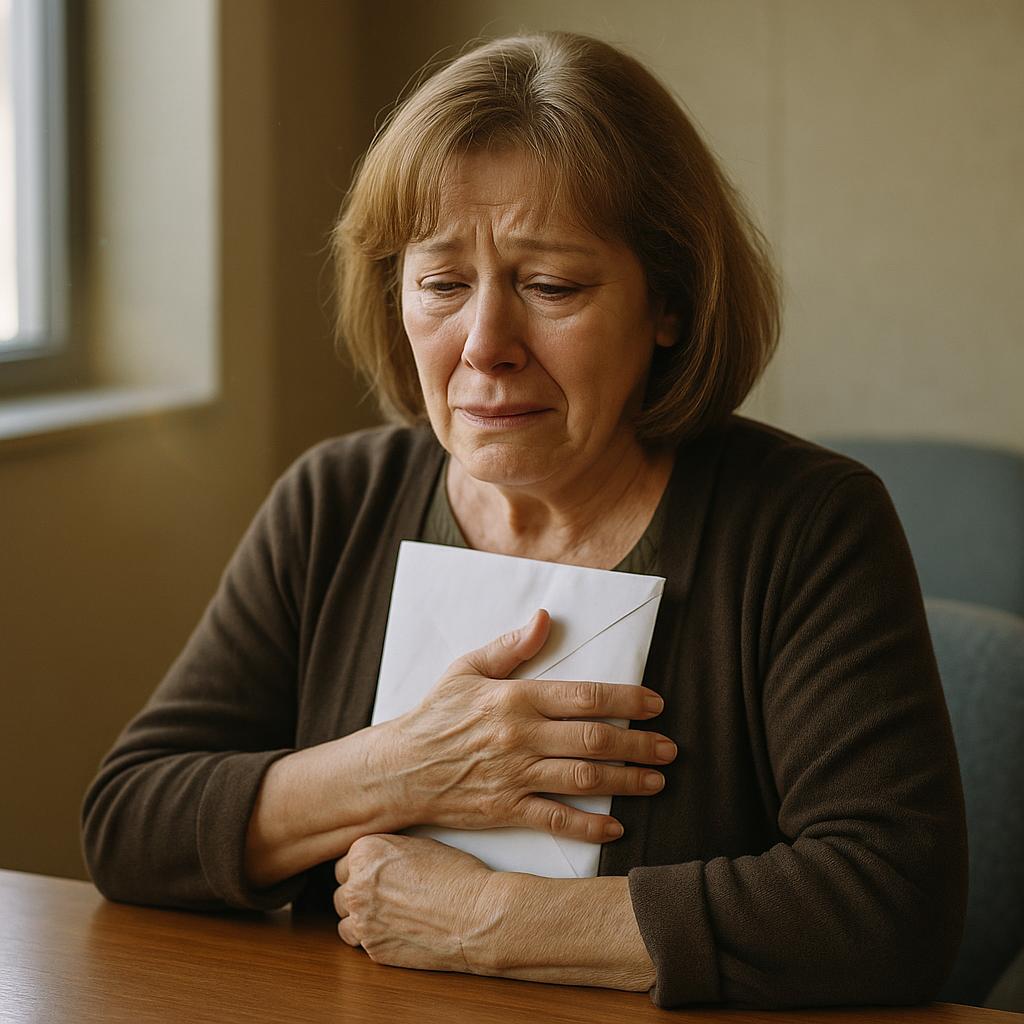 Image by RM AI
Image by RM AI
The Journal's Revelations
That evening, I settled into Harold's reading chair, the leather creaking familiarly beneath me as I opened his journal with trembling hands. The weight of it felt like holding a piece of him again. Page after page revealed Harold's neat handwriting, documenting our quiet dinners, his thoughts on retirement, and his worries about getting older—all the little moments I thought were just passing by unnoticed. But what caught my breath was an entry from two years ago: 'Emily called again about the investment opportunity. Told her no for the third time. I worry about her looking for these quick fixes instead of building something solid. Laura would never...' He'd been comparing us, seeing things I never knew. Another entry, dated just weeks before that awful diagnosis, read: 'Met with Richard today to update the will. Need to make sure Laura is protected, especially given Emily's current situation. Some debts can't be paid with money alone.' I pressed my hand against my mouth, tears welling up. Harold had known—he'd seen the warning signs in his daughter that I'd missed completely. He'd been quietly putting safeguards in place, trying to protect me while still hoping Emily would change. All those times he'd reassured me that everything was taken care of, he wasn't just being his usual organized self—he was building a fortress around me that Emily had tried to dismantle the moment he was gone. What broke my heart most wasn't just the betrayal I'd already uncovered, but realizing how deeply it must have hurt Harold to know what his daughter might become.
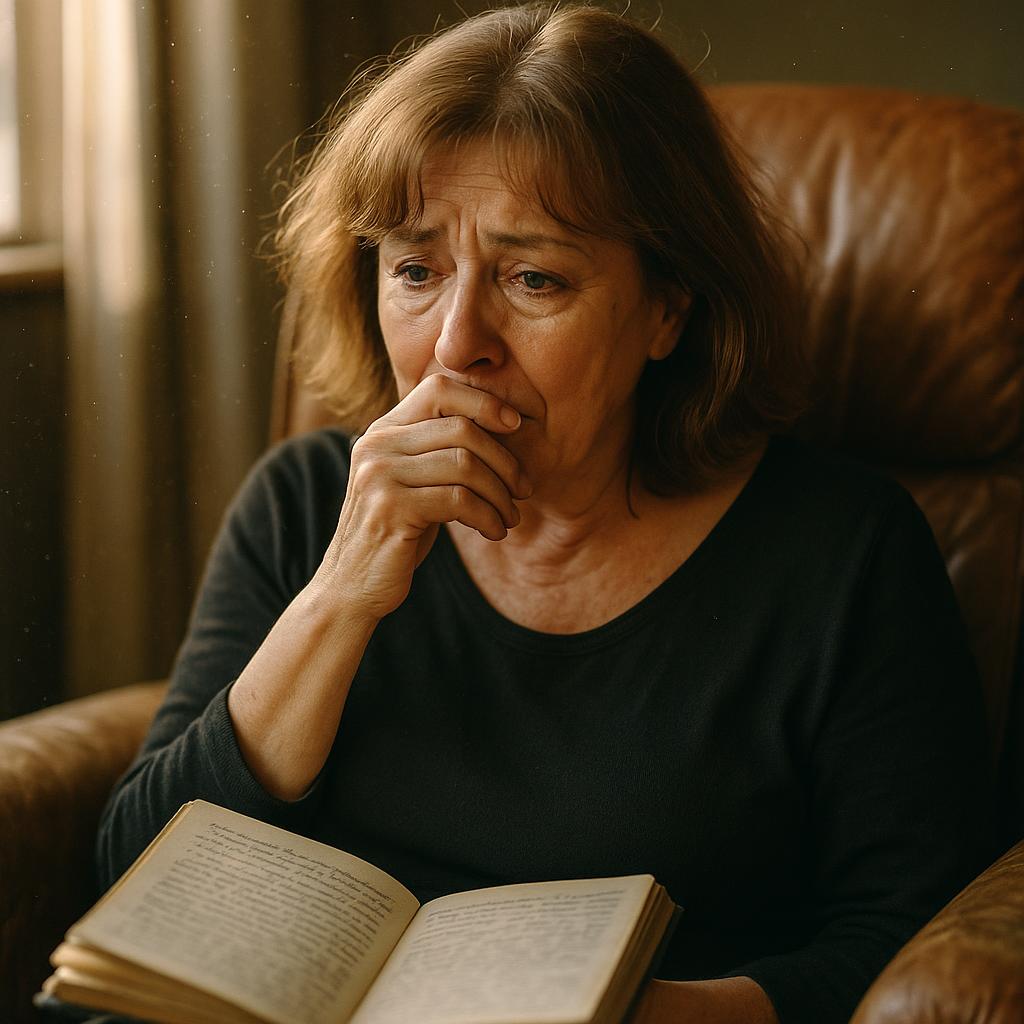 Image by RM AI
Image by RM AI
A Buyer for the House
Ms. Winters called this morning with news that made me nearly drop my coffee mug. 'Laura, we have an offer on the house!' she announced, her voice bubbling with excitement. 'And it's a good one.' The young couple who'd toured last week—the ones with the little boy who'd asked if he could plant his own tomatoes—had fallen in love with Harold's garden. They offered just slightly below asking price, but with flexible closing terms that would give me all the time I needed to pack up thirty years of memories. 'The wife actually cried when she saw the garden,' Ms. Winters confided. 'Said it reminded her of her grandmother's place where she spent summers as a child.' Something about that detail made my heart swell. I could almost hear Harold whispering, 'See, Laura? The garden will still be loved.' When Ms. Winters mentioned that their four-year-old daughter had already picked out which bedroom would be hers, I felt the last of my hesitation melt away. This house deserved to be filled with children's laughter again, with new traditions and fresh memories. 'Tell them yes,' I said, surprising myself with how steady my voice sounded. 'The house should go to a family.' As I hung up, I noticed my hands weren't shaking anymore. For the first time since Harold died, I felt certain about something. What I didn't realize was that accepting this offer would set in motion a chain of events that would bring Emily back into my life in a way I never could have anticipated.
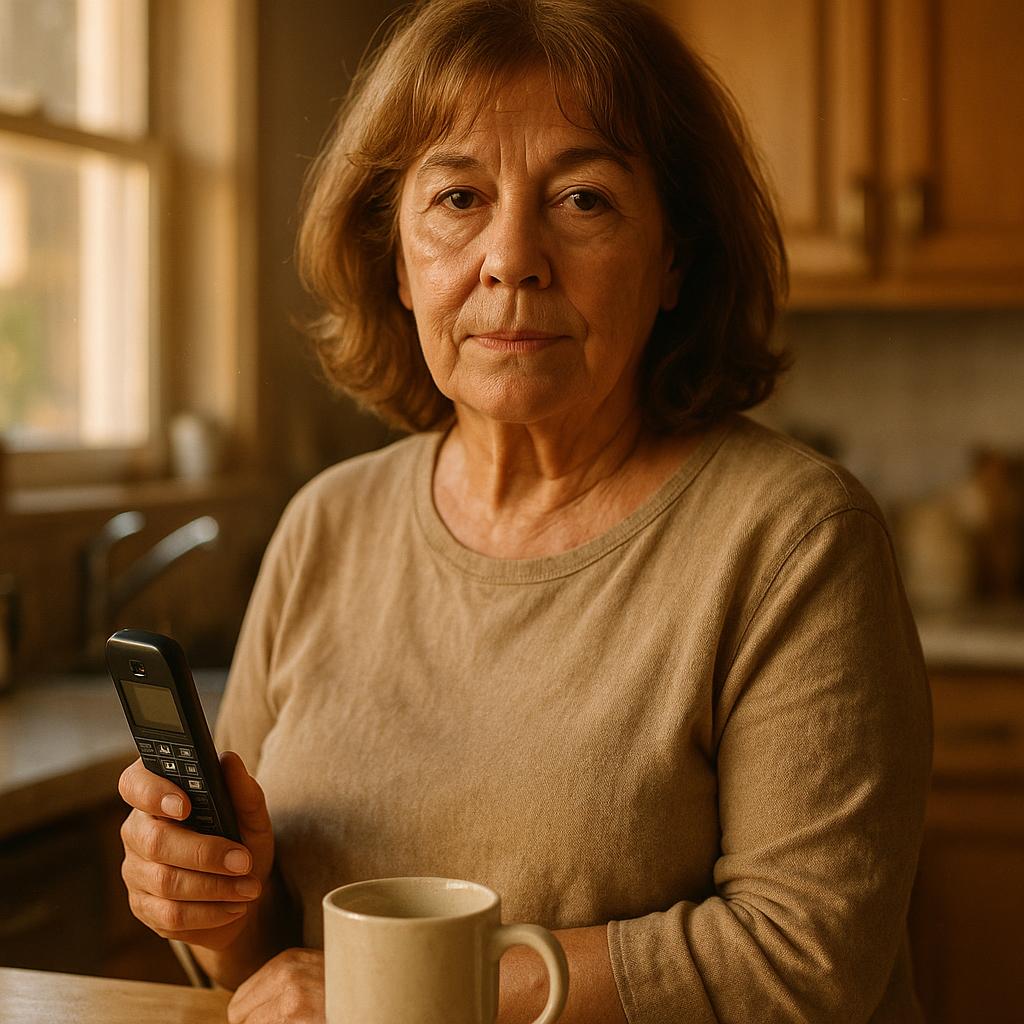 Image by RM AI
Image by RM AI
Packing Memories
I never realized how much stuff two people could accumulate over thirty years until I started packing it all up. Every drawer, every closet, every forgotten box in the attic held pieces of our life together. Mark came over on Tuesday with his pickup truck and work gloves, ready to tackle the heavy furniture. 'Just point to what goes where,' he said, already rolling up his sleeves. Diane arrived Friday evening with three bottles of wine and a box of tissues. 'The wine is for celebrating your new beginning,' she explained, 'and the tissues are for everything else.' We worked methodically, room by room, creating piles: keep, donate, discard. It was the 'keep' decisions that broke me open. In Harold's closet, I stood frozen, my hands trembling as I touched his sweaters still hanging in perfect order. When I pulled his favorite navy cardigan to my face, the faint scent of his cologne made my knees buckle. 'Oh,' was all I could say, pressing the soft wool against my cheek. Diane appeared beside me, her hand warm on my shoulder. 'Take that one with you,' she whispered. 'Some things are too precious to let go.' That night, after Mark and Diane had gone, I sat on the floor surrounded by photo albums and Harold's cardigan draped around my shoulders. I was halfway through the second bottle of wine when my phone buzzed with a text. The name that appeared on the screen made my blood run cold: Emily.
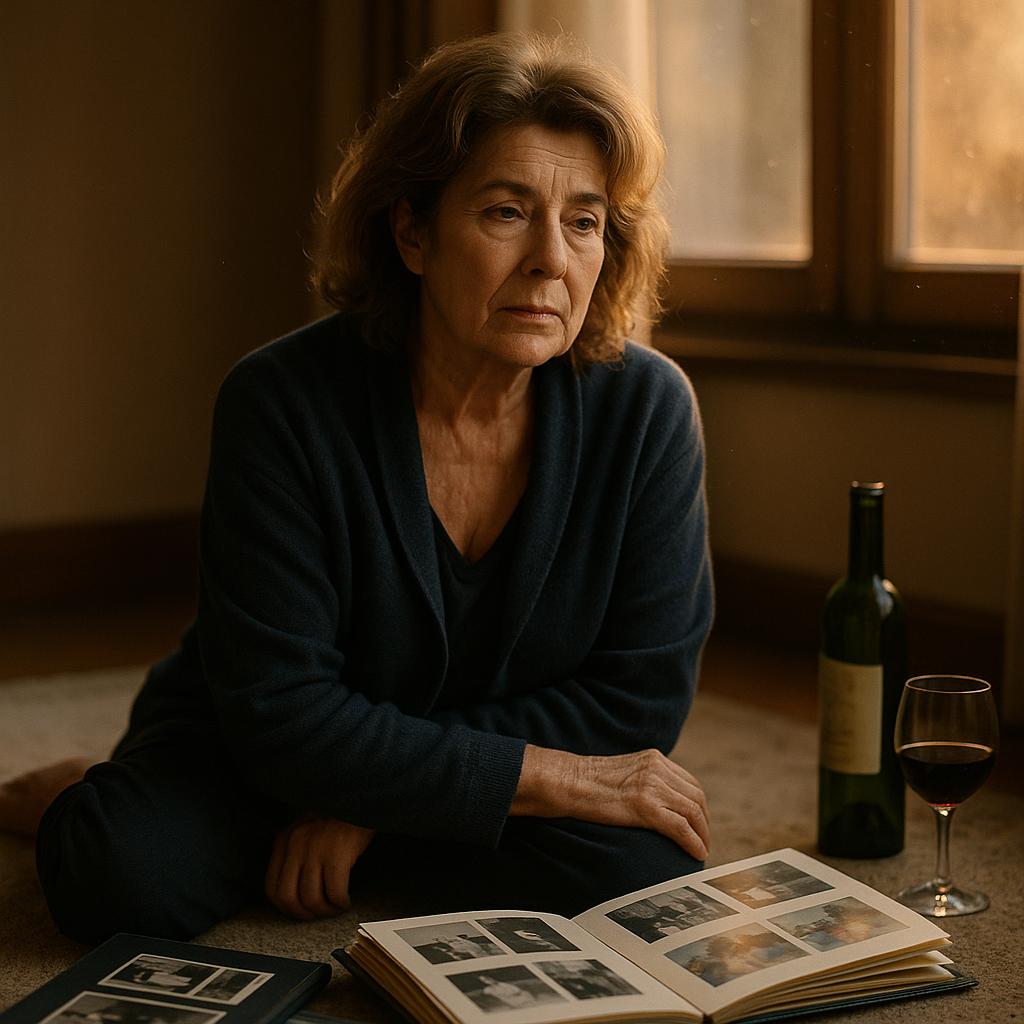 Image by RM AI
Image by RM AI
The Cottage Purchase
I never thought I'd feel this way about a house that wasn't the one Harold and I built our life in. Yet here I was, walking through the sage-green cottage in Oakridge, my offer already accepted, watching sunlight dance across hardwood floors that would soon be mine. The home inspector followed behind me, clipboard in hand, occasionally muttering about water pressure and foundation settling. But I barely heard him. I was too busy imagining my reading chair in the corner by the east-facing window, where morning light would make the perfect companion to my coffee and book. 'The previous owner left detailed notes about the garden,' the realtor mentioned, handing me a small leather-bound notebook. 'She planted everything with purpose.' Later that afternoon, I met Margaret, the widow who'd lived here for twenty-two years. She was moving to Arizona to be near her daughter—another woman rebuilding after loss. 'The hydrangeas bloom blue if you add coffee grounds to the soil,' she told me, her weathered hands gesturing toward the garden. 'And the window in the kitchen sticks a bit in humid weather, but a gentle push sets it right.' As we walked the perimeter of what would soon be my garden, she stopped suddenly. 'I hope you'll be as happy here as I was,' she said, her eyes bright with unshed tears. It didn't feel like an ending anymore, but rather like being handed the next chapter of a book someone else had lovingly started. What I couldn't possibly know then was that Margaret had left something else behind—something hidden that would connect our stories in ways neither of us could have imagined.
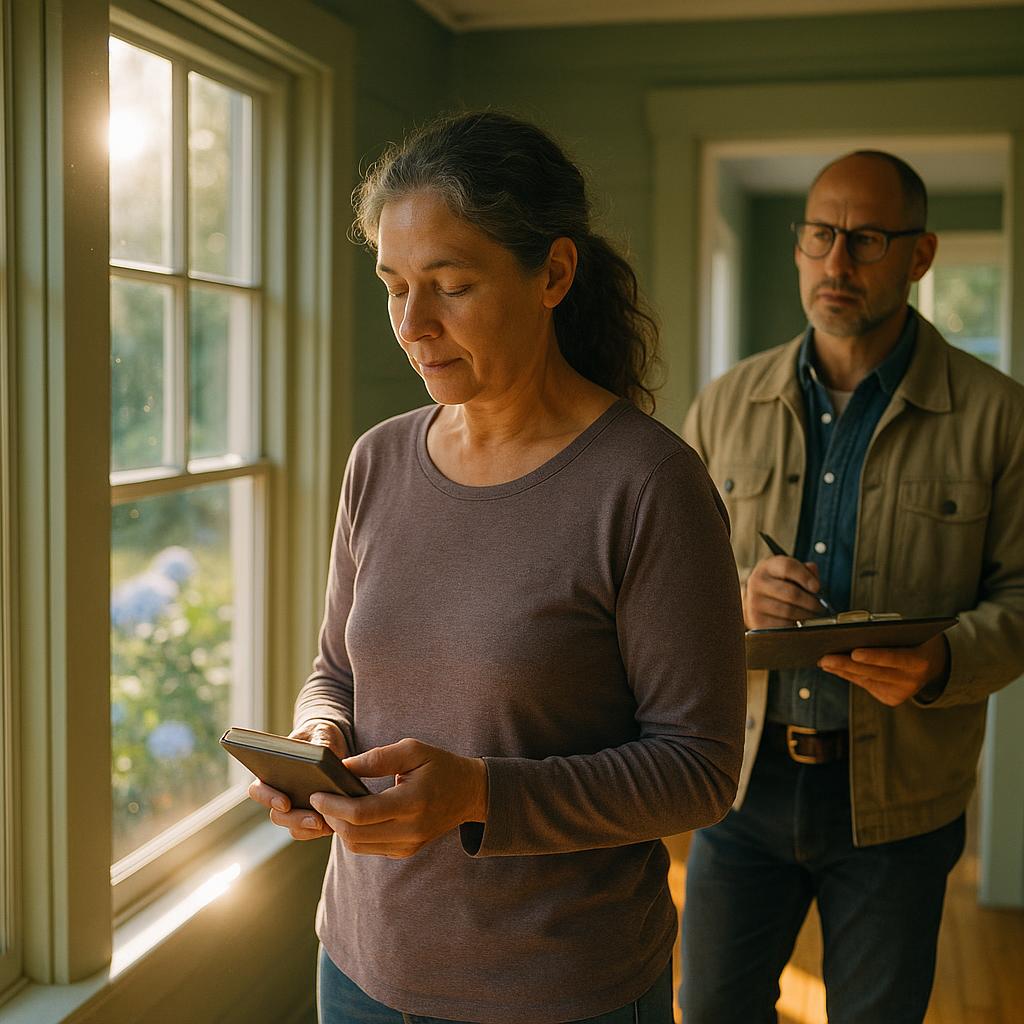 Image by RM AI
Image by RM AI
Final Settlement
The phone call from Mr. Levine came on a Tuesday morning while I was labeling boxes in what used to be our dining room. 'Mrs. Wilson, I have good news,' he said, his voice warm with satisfaction. 'The estate settlement is complete. Every penny Emily diverted has been recovered and distributed according to Harold's original wishes.' I had to sit down, my knees suddenly weak with relief. When he offered to mail the final paperwork, I surprised myself by asking him to bring it in person instead. 'I'd like to thank you properly,' I explained. Two days later, we sat at my kitchen table—now an island surrounded by packed boxes and bubble wrap—sharing coffee and, surprisingly, laughter. Mr. Levine, with his bow tie and wire-rimmed glasses, reminded me of Harold in the way he told stories—measured and thoughtful, with perfect timing for the punchline. He shared tales from his forty years of practice, including family financial disputes far messier than mine. 'What makes your case different, Laura,' he said, stirring a second spoonful of sugar into his coffee, 'is that you never lost your dignity or sought revenge. You wanted justice, not punishment.' He smiled, his eyes crinkling at the corners. 'Harold chose his wife well.' Those words settled over me like a warm blanket. As Mr. Levine gathered his briefcase to leave, he paused at the door. 'By the way,' he said casually, 'Emily asked me to give you something when this was all finished.' From his pocket, he pulled out a small, worn envelope with my name written in a familiar hand that wasn't Harold's.
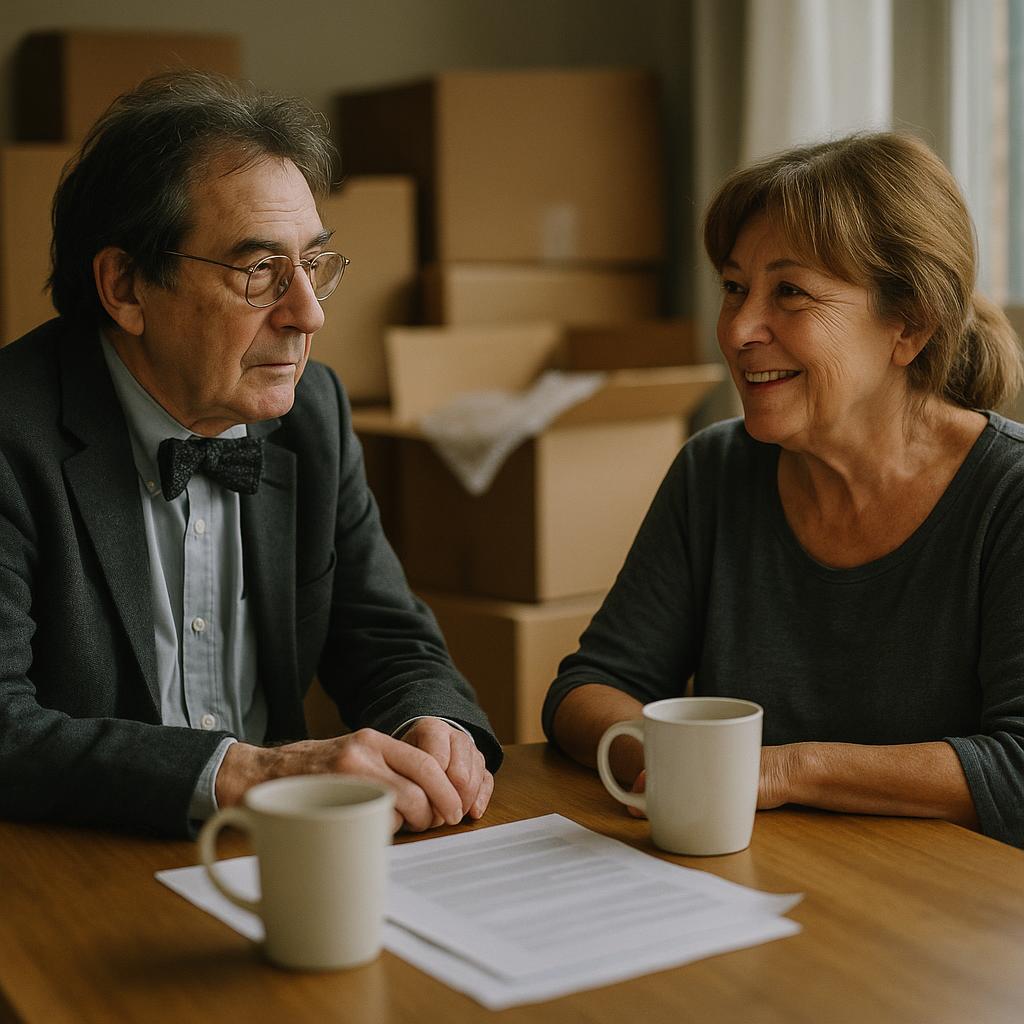 Image by RM AI
Image by RM AI
Emily's Children
I was sorting through Harold's old fishing tackle when the doorbell rang. Standing on my porch were two teenagers I hadn't seen in months—Zach and Lily, Emily's children. My heart did a little flip. 'We wanted to see the house one more time,' Zach explained, his voice cracking slightly. 'Before, you know...' He gestured vaguely at the FOR SALE sign. I invited them in for lemonade, my hands trembling slightly as I poured. We sat in Harold's garden, the late afternoon sun warming the flagstones. 'Remember when Grandpa let us plant those sunflowers?' Lily asked, pointing to the corner bed. 'He said they were the happiest flowers because they always look toward the light.' I hadn't known that story. For an hour, they shared memories of Harold I'd never heard—how he taught Zach to tie fishing flies in the garage, how he'd let Lily practice her French homework on him even though he only knew 'bonjour' and 'merci.' When they finally stood to leave, Zach hesitated, then pulled something from his pocket—a faded photo of Harold holding them as toddlers. 'We thought you might want this,' he said. As they walked to the door, Lily suddenly turned back and wrapped her arms around me. 'Grandpa always said you were the kindest person he knew,' she whispered against my shoulder. I watched them walk down the driveway, these pieces of Harold that Emily couldn't keep from me. What I couldn't have known then was that this wouldn't be the last time they'd come looking for me—or what they'd bring with them next time.
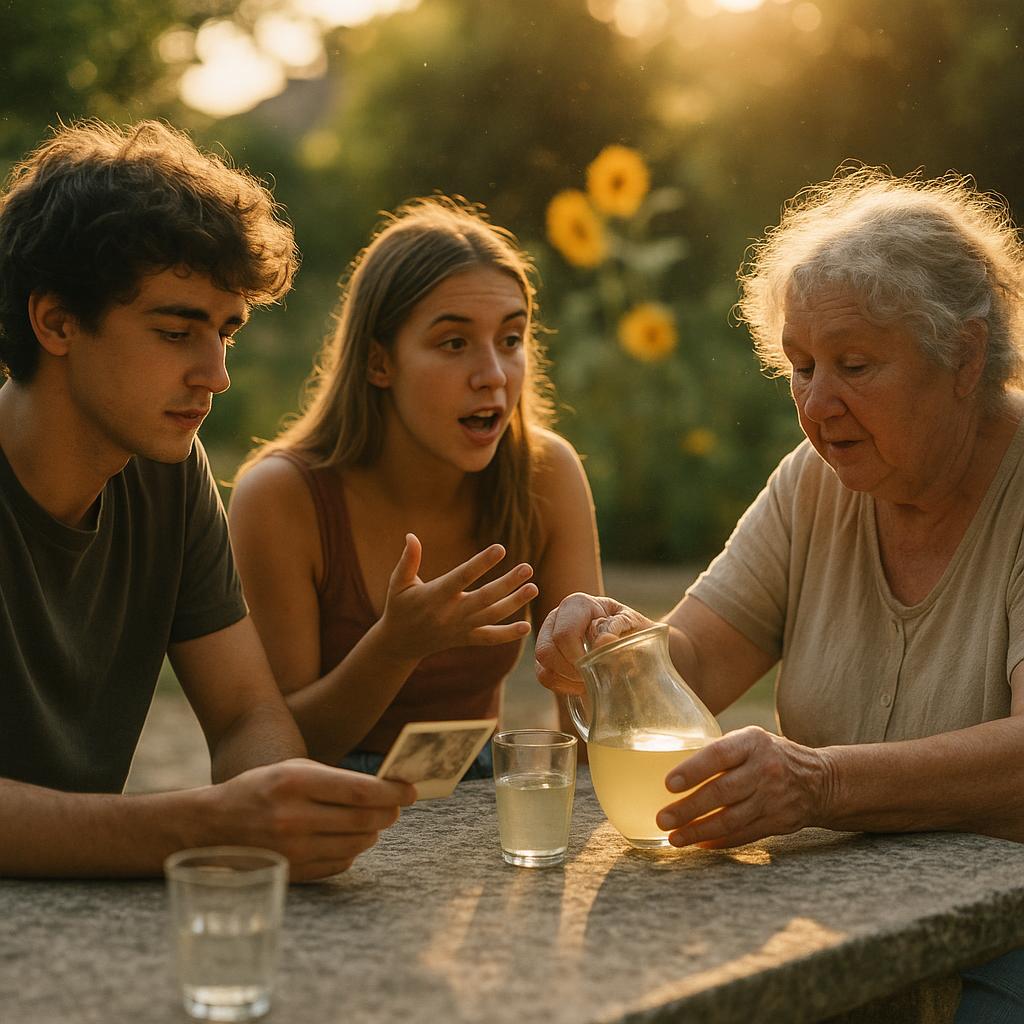 Image by RM AI
Image by RM AI
Last Night in the House
The movers left around four, taking with them the physical weight of our life together but leaving behind thirty years of memories that seemed to hover in the empty spaces. I stood in the doorway of our bedroom—my bedroom, I corrected myself—where the indentation from Harold's nightstand was still visible in the carpet. 'Remember when you insisted we needed matching lamps?' I whispered to the empty room, my voice bouncing off bare walls. In the kitchen, I ran my fingers along the countertop where Harold had measured and mixed countless Sunday pancake batters. The dining room still held echoes of Thanksgiving laughter and Christmas arguments. I paused at the living room window, remembering how Harold would sit in his leather chair, reading glasses perched on his nose, looking up occasionally to share a passage from whatever mystery had captured him that week. As the sun began to set, I made my way to the garden, Harold's pride and joy. The new owners—that sweet young couple with their curious children—had specifically asked if they could keep his rosebushes and herb garden. 'Of course,' I'd told them, fighting back tears. 'He would have wanted them to be loved.' Sitting on the porch steps, I watched twilight settle over the yard where we'd built our life. 'Thank you,' I whispered, not feeling foolish at all for talking to a house. 'Thank you for sheltering us, for weathering storms with us, for being our anchor.' I didn't realize I was crying until I felt the tears drop onto my hands. This wasn't abandonment—it was a grateful release, a necessary step forward. As darkness fell completely, I stood and turned the key in the lock one final time, not knowing that what awaited me at the cottage would test everything I thought I knew about fresh starts.
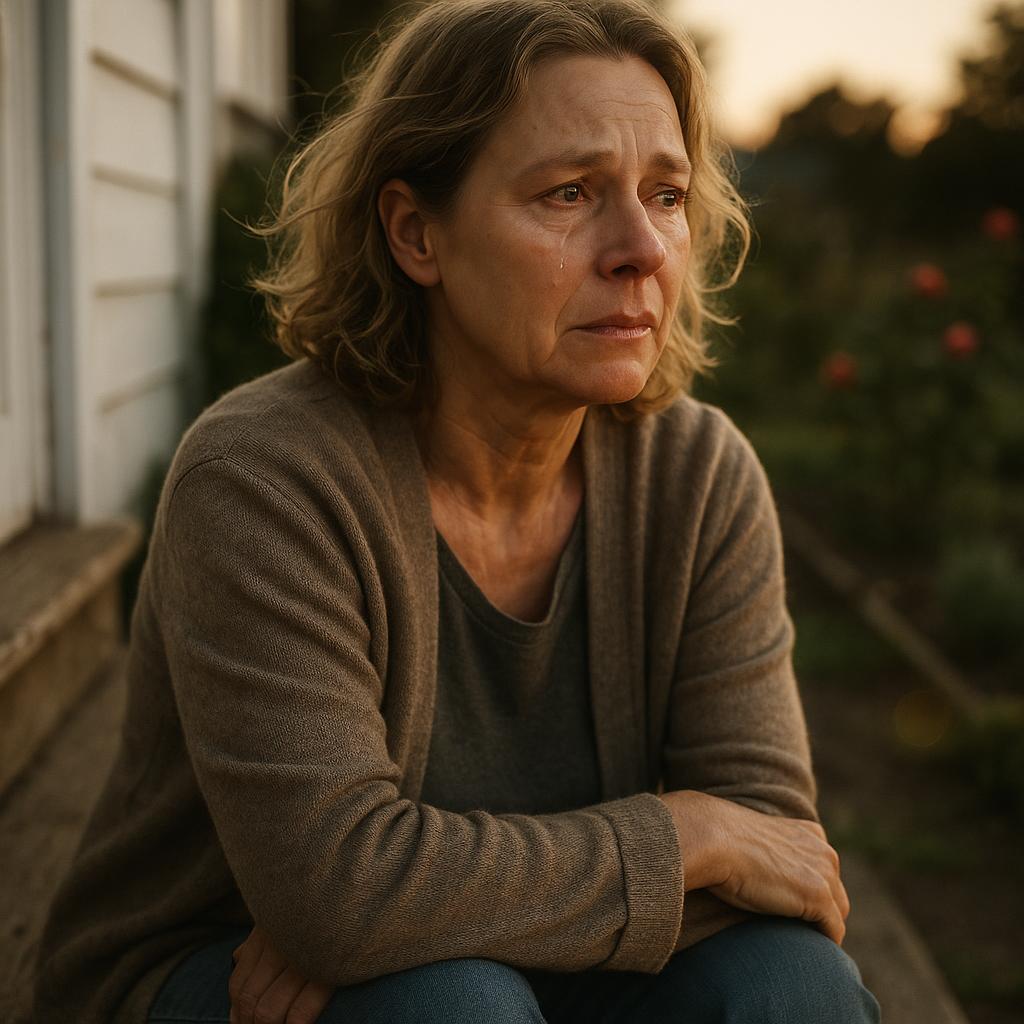 Image by RM AI
Image by RM AI
Moving Day
Diane arrived at 7 AM sharp, her SUV already packed with what she called my 'irreplaceables'—Harold's leather journal, our wedding album, the sapphire ring I'd thought was lost forever. I stood in the empty foyer, keys in hand, feeling strangely light. 'Just one more minute,' I whispered, walking through each room one final time. The house echoed with my footsteps where our furniture had once stood. In the kitchen, I ran my fingers along the counter where Harold had measured pancake ingredients every Sunday for thirty years. 'Laura, honey, we should get going before traffic picks up,' Diane called gently from the doorway. I nodded, surprised by my own readiness to leave. As we pulled away from the curb, I turned for one last look at the house—our house—now just a structure waiting for new memories to fill it. 'You okay?' Diane asked, reaching over to squeeze my hand. 'Actually, yes,' I replied, and meant it. The three-hour drive to Oakridge passed in comfortable conversation about Diane's grandchildren's latest antics, my plans to volunteer at the local library, and the community garden plot I'd already reserved. 'You know what Harold would say right now, don't you?' Diane asked as we crossed the county line. I smiled, hearing his voice in my head: 'Onward, Laura. Always onward.' What I couldn't possibly know then was that 'onward' would lead me to discoveries about Harold—and Emily—that would shake the very foundation of everything I thought I knew.
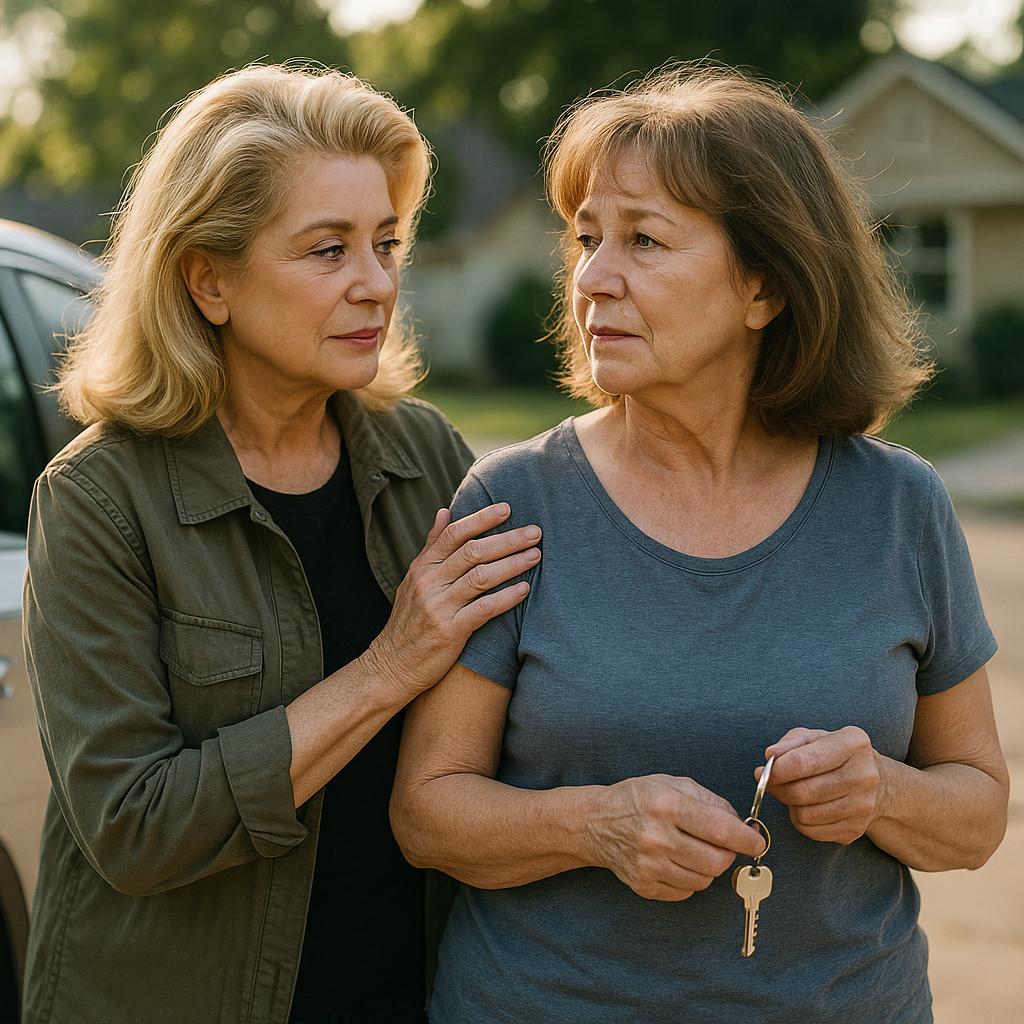 Image by RM AI
Image by RM AI
The Cottage Welcome
We pulled into the driveway of my new cottage just after noon, and I was stunned to see a small welcoming committee waiting on the porch. Diane had orchestrated the whole thing—five of her friends from the area, all with casserole dishes and determined smiles. 'We thought you might need some help,' said a woman who introduced herself as Patty, already rolling up her sleeves. Within hours, they had transformed the empty cottage into something that felt almost like home. The previous owner's lace curtains filtered the afternoon sunlight into patterns across the hardwood floors, creating a warmth I hadn't expected to feel so soon. 'These curtains are lovely,' I told Patty as she helped me make up the bed. 'Margaret had good taste,' she replied. 'She was particular about letting light in without sacrificing privacy.' By evening, the essential boxes were unpacked, the kitchen was functional enough for morning coffee, and I'd placed a few treasured photographs on the mantel. My favorite—Harold laughing by the ocean during our 25th anniversary trip, his hair wild from the wind—seemed to watch over the room with approval. After everyone left, I stood alone in the quiet cottage, listening to unfamiliar creaks and settling sounds. For the first time in months, I didn't feel the crushing weight of grief pressing down on my chest. That night, beneath unfamiliar ceiling beams, I slept deeply and dreamlessly, only to be awakened at dawn by a gentle tapping at my kitchen window.
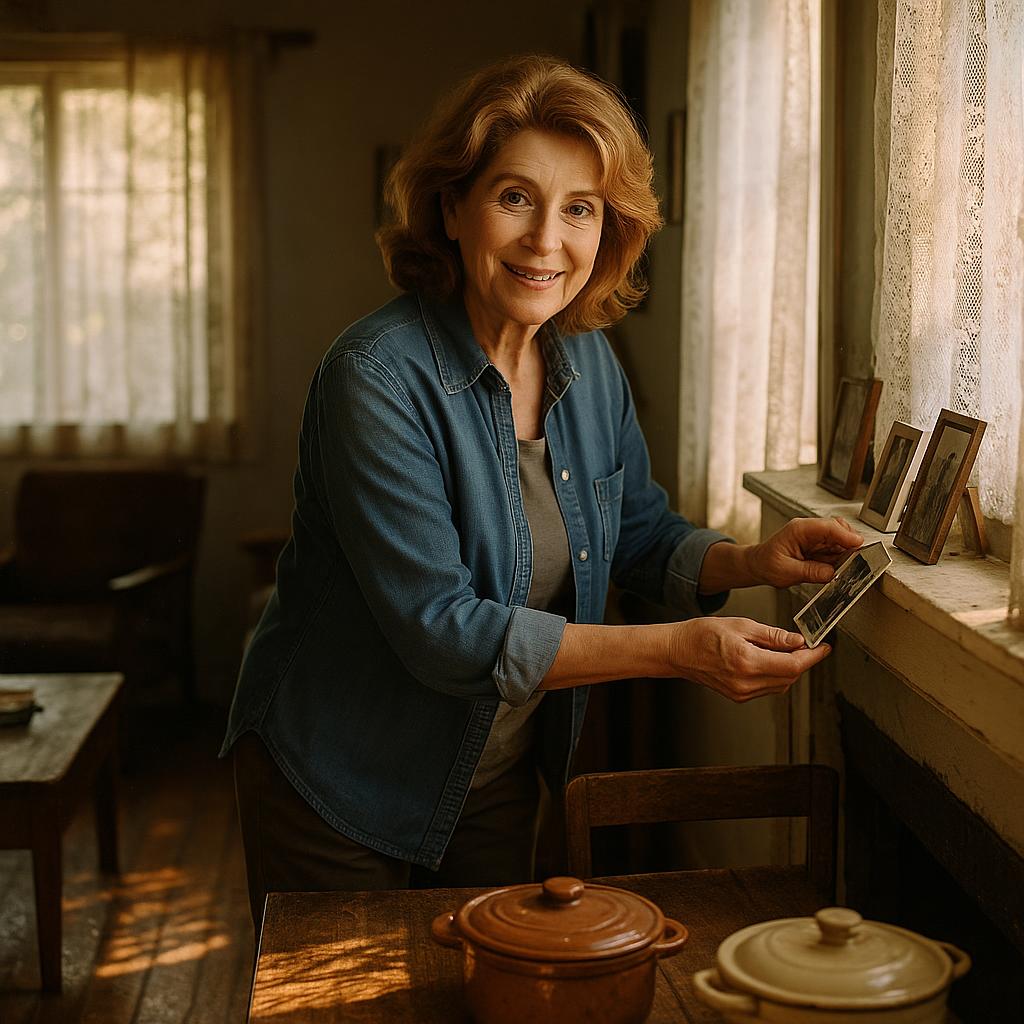 Image by RM AI
Image by RM AI
First Day as a Volunteer
The Oakridge Public Library was nothing like the grand, marble-floored institution back home, but it had a charm all its own. Ms. Chen, a petite woman with salt-and-pepper hair and reading glasses that hung from a beaded chain, gave me the tour with obvious pride. "We're small but mighty," she said, showing me the children's corner with its rainbow rug and miniature chairs. Two weeks after moving in, this was my first real step toward building a life here. When Wednesday morning came and I sat facing eight expectant little faces for story time, I felt a flutter of nervousness. "Today we're reading 'The Dragon Who Couldn't Breathe Fire,'" I announced, opening the colorful picture book. Without thinking, I slipped into a gruff, smoky voice for the dragon—exactly the way Harold used to read to Zach and Lily. The children's eyes widened, and a little girl with pigtails giggled. By the time I finished, using a different voice for each character, they were completely enthralled. "Another one, please!" a freckle-faced boy begged. As I walked home that afternoon, I felt lighter somehow, as if I'd discovered a muscle I'd forgotten I had. I was so lost in thought that I almost missed the envelope tucked into my mailbox—an envelope with Emily's handwriting on the front.
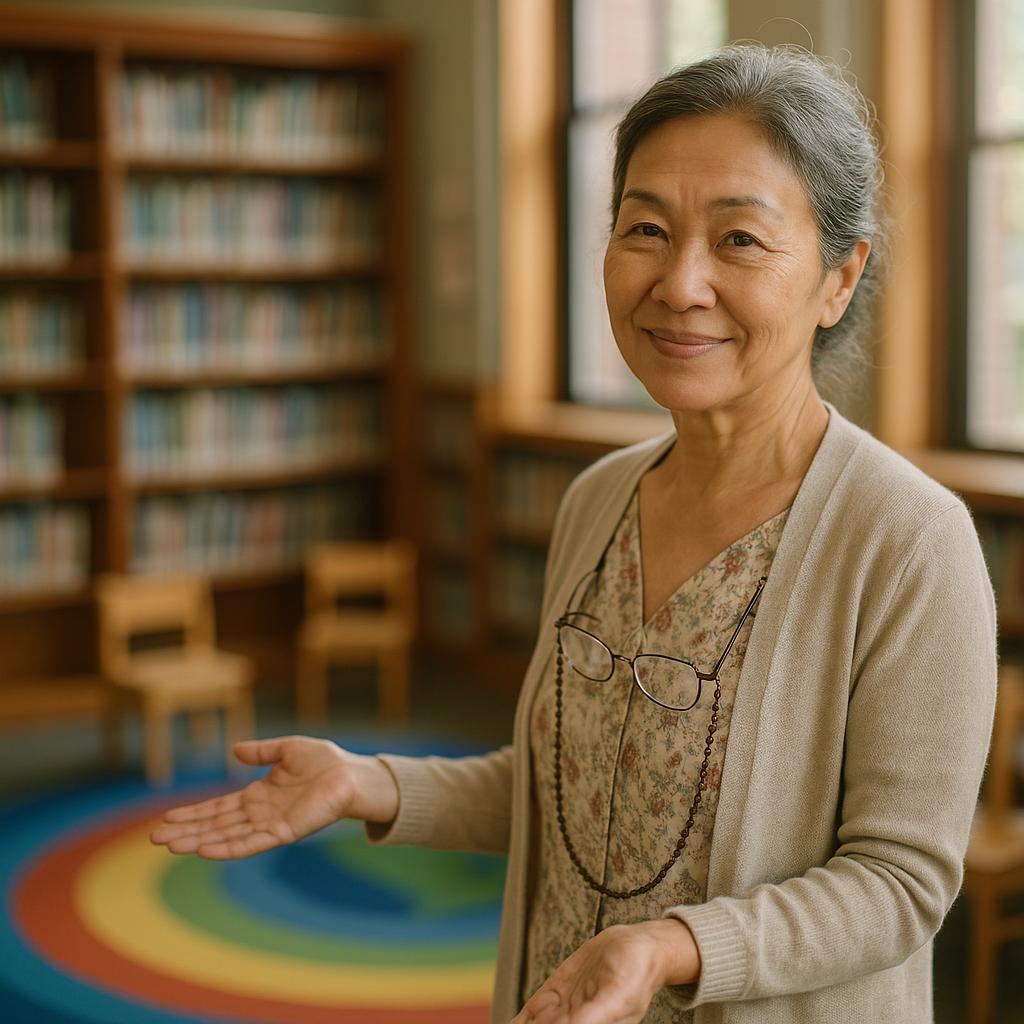 Image by RM AI
Image by RM AI
The Garden Plot
I never expected to find peace in a 10x12 plot of soil, but Harold's seeds have given me something I didn't know I needed. Every morning, I'm up with the sun, garden gloves and Harold's old trowel in hand as I make my way to the community garden. My plot sits next to Antonio's—a 72-year-old retired chef with hands as weathered as old leather and stories as rich as the compost he swears by. 'The secret is in how you listen to the plants,' he told me on my first day, demonstrating how to properly stake tomato plants. 'Just like people, they tell you what they need if you pay attention.' We've fallen into a comfortable rhythm—gardening side by side as the morning dew burns off, then sharing coffee on the wooden bench overlooking our handiwork. When the first of Harold's heirloom tomatoes ripened—those Cherokee Purples he'd babied for years—I nearly cried picking them. 'These,' Antonio declared, holding one up to the sunlight like a jeweler examining a rare gem, 'these have character. Your husband understood quality.' That afternoon, Antonio brought a small bottle of olive oil he'd been saving, some basil from his plot, and mozzarella he'd made himself. We sat at my little patio table, eating the simplest and most perfect tomato salad I'd ever tasted. 'To Harold,' Antonio toasted with his water glass, 'for growing more than just tomatoes.' I smiled through tears, wondering if Harold somehow knew I'd need someone like Antonio to help me grow roots in this new place. What I didn't realize was that those tomatoes would lead to an unexpected visitor the very next day.
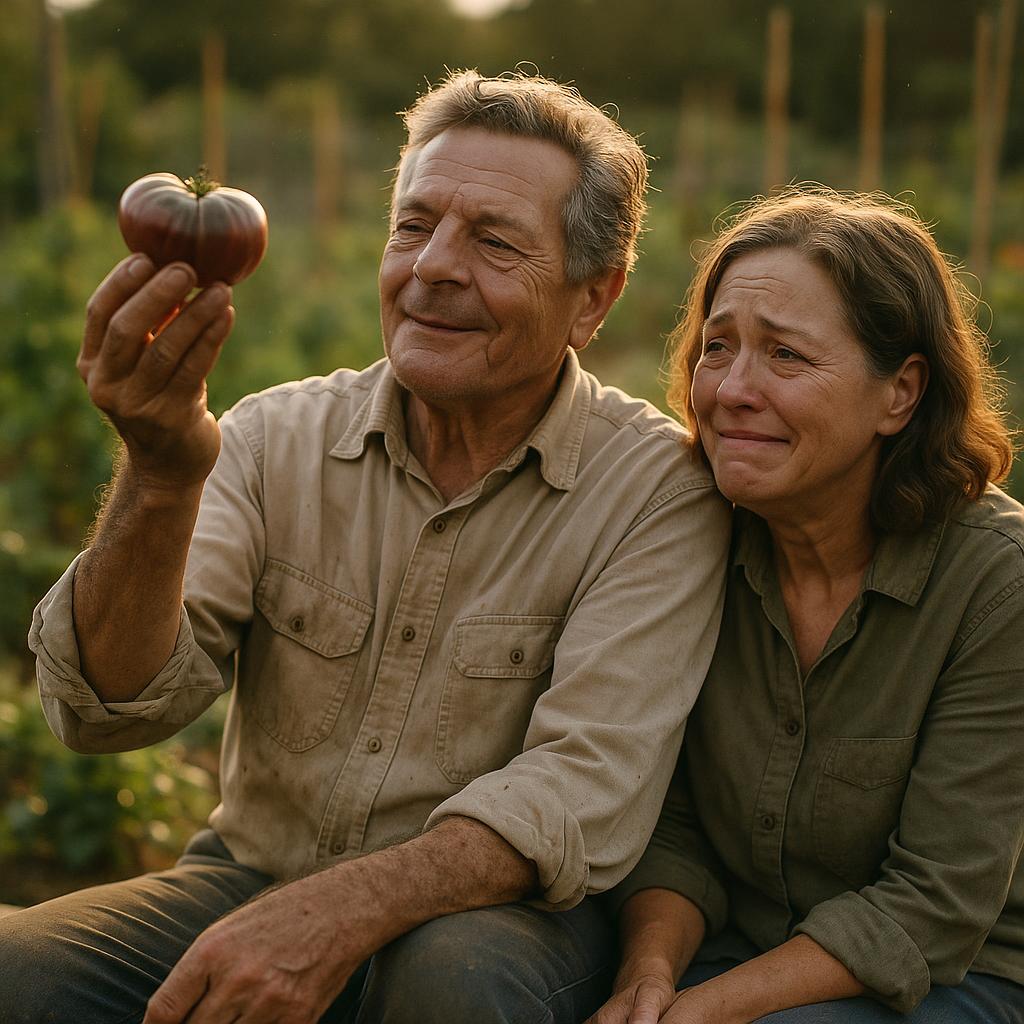 Image by RM AI
Image by RM AI
The Mysterious Account
The bank statement arrived on a Tuesday, tucked between a gardening catalog and a flyer for the senior center's upcoming pottery class. I almost tossed it with the junk mail until I noticed the account number—that account, the one with the mysterious $48,750 deposit that had first alerted me to Emily's deception. Six months into my new life, and here was this paper reminder of everything I'd left behind. I'd kept the account open deliberately, like keeping a scar visible as a reminder of a hard-learned lesson. The balance had grown slightly with interest, but I hadn't touched a penny. During my weekly call with Mark, I mentioned the statement while we chatted about his grandson's baseball tournament. 'You know, Laura,' he said thoughtfully, 'that money doesn't have to remain a symbol of betrayal. What if you transformed it into something Harold would be proud of?' His suggestion—a scholarship in Harold's name or perhaps a donation to my new library—struck me like a revelation. 'Turn something painful into something beautiful,' I murmured, remembering how Harold had once transformed our backyard's barren clay soil into his magnificent garden. That night, I sat on my porch with a cup of tea, watching fireflies dance above Antonio's tomato plants next door, and for the first time, I felt a sense of purpose for those funds. What I couldn't have known then was that my decision about the money would lead to an unexpected connection with someone from Harold's past—someone even Emily didn't know existed.
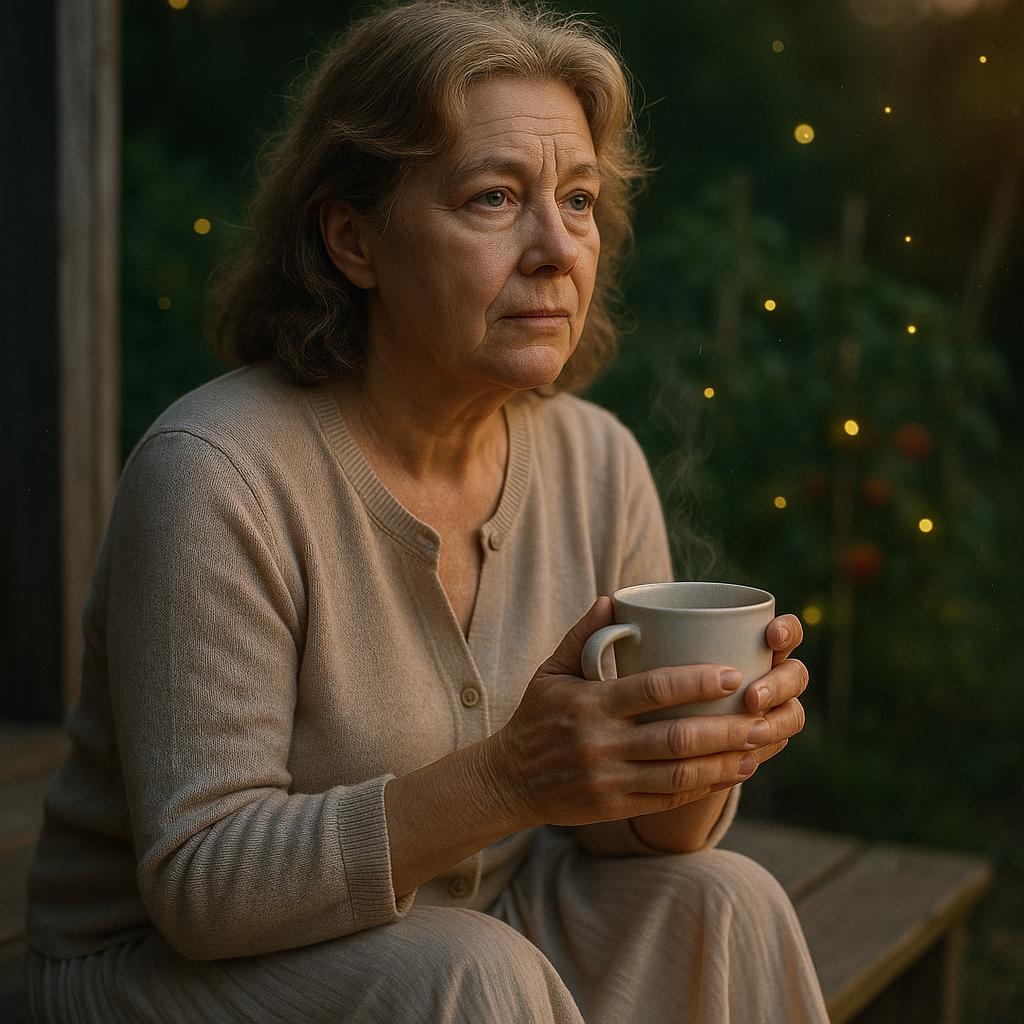 Image by RM AI
Image by RM AI
The Harold Williams Reading Corner
I sat across from Ms. Chen in her tiny office, the mysterious $48,750 statement spread between us like a confession. 'I want to do something meaningful with this money,' I explained, my voice steadier than I expected. 'Something Harold would approve of.' As I shared the complicated story behind the funds—Emily's deception, the court battle, my reluctance to touch what felt tainted—Ms. Chen's expression shifted from concern to inspiration. 'What if we created a reading corner?' she suggested, eyes brightening. 'The Harold Williams Reading Corner.' We spent the next hour sketching plans on yellow legal pads: comfortable chairs that wouldn't hurt aging backs, good lighting for tired eyes, and most importantly, a collection of financial literacy books for all ages. 'Harold was always explaining investments to anyone who'd listen,' I laughed, remembering how he'd cornered our neighbors at barbecues with talk of compound interest. 'He believed everyone deserved to understand money.' Over the following weeks, I found myself researching furniture durability standards and curating book lists with an enthusiasm I hadn't felt since... well, since before. I selected chairs Harold would have approved of—practical but comfortable, built to last. The small brass plaque arrived yesterday: 'The Harold Williams Reading Corner: Where Financial Wisdom Grows.' Running my fingers across his name, I felt something shift inside me—this money that had once represented betrayal was becoming a legacy. What I couldn't possibly know then was who would be sitting in one of those chairs on opening day, holding a book Harold had written that I'd never seen before.
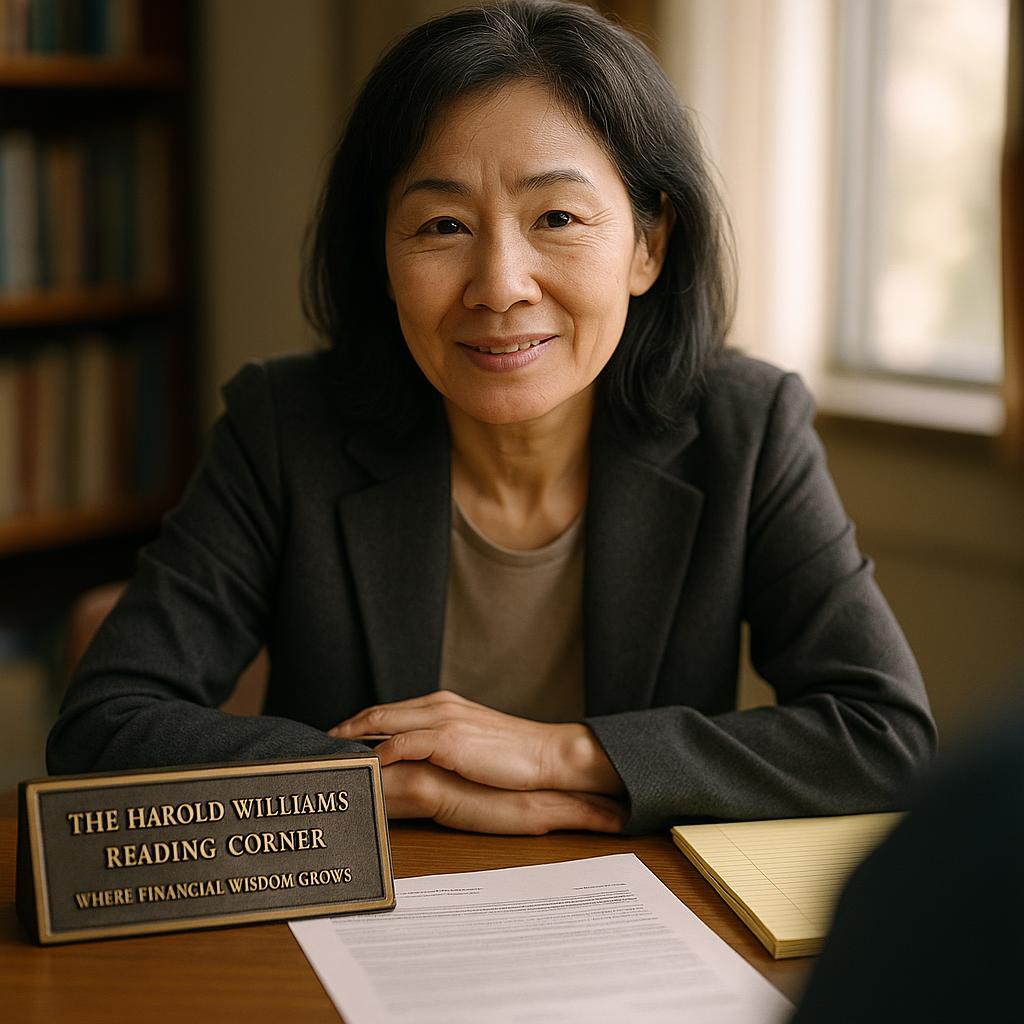 Image by RM AI
Image by RM AI
An Email from Emily
The email arrived on a Tuesday morning while I was watering the basil in my kitchen window. I nearly dropped my phone when I saw the sender: Emily Williams. For a moment, I just stared at the notification, my thumb hovering over the delete button. It had been almost a year since the court ruling—almost a year of silence after her bitter accusations in the courthouse hallway. With a deep breath, I opened it. 'Dear Laura,' it began, formal and stiff. The message was brief, carefully worded like she'd drafted it multiple times. She wrote that she'd been in therapy, working to understand why she'd done what she did. Not quite an apology—Emily couldn't bring herself to say 'I'm sorry'—but there was an acknowledgment of 'regret for the pain caused.' What surprised me most was learning she'd been volunteering with a financial literacy program for low-income families. 'A form of restitution,' she called it. The email ended with a question that made my heart race: 'Would you ever be open to a conversation?' I read it four times, emotions cycling between anger, suspicion, and something else I couldn't quite name. Maybe relief? I set my phone down and watched the morning light dance through the kitchen window. Harold would know what to do. But Harold wasn't here, and this was my decision alone. I decided to let the email sit unanswered for a while. Some wounds need time before you can tell if they're truly healing or just scabbed over, waiting to break open again at the slightest touch.
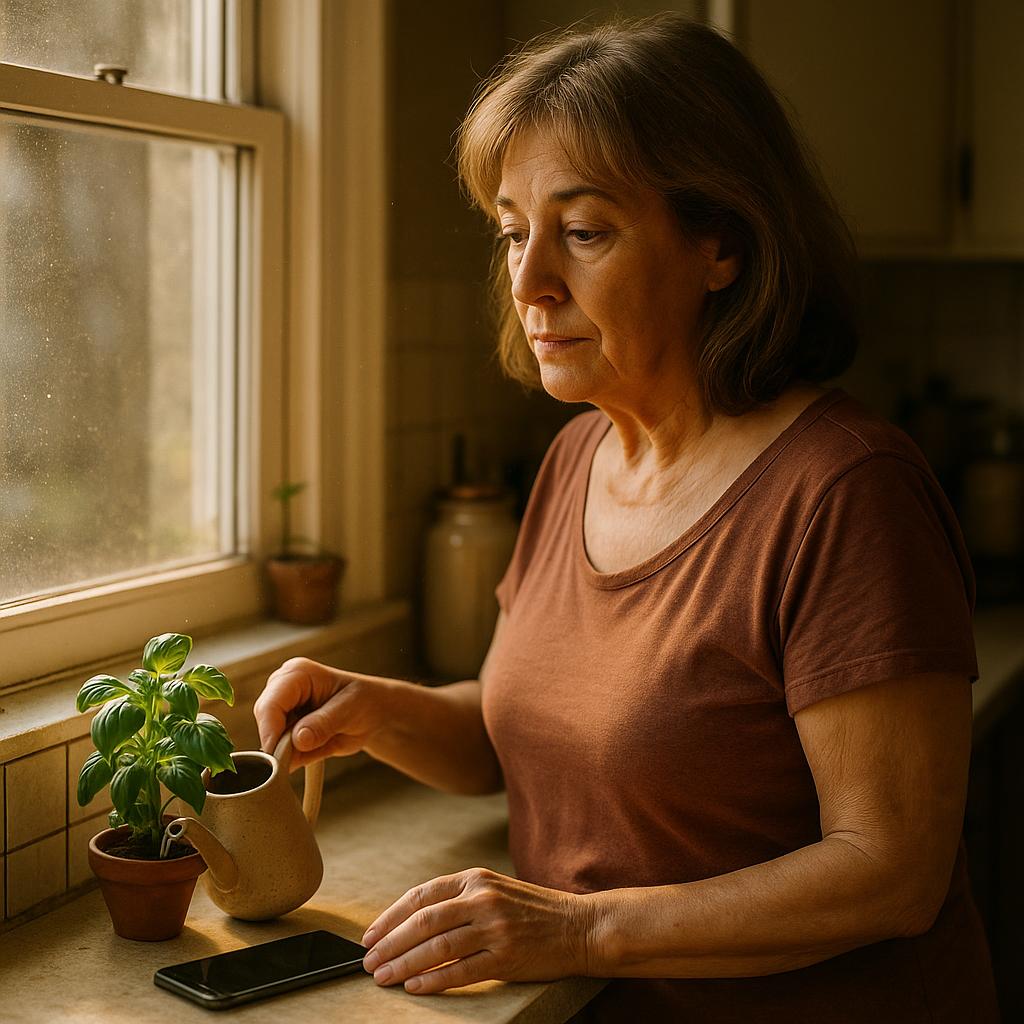 Image by RM AI
Image by RM AI
The Reading Corner Dedication
The dedication ceremony for the Harold Williams Reading Corner was small but perfect. Ms. Chen had arranged everything beautifully—a simple podium, chairs for about thirty people, and a blue ribbon stretched across the entrance to the new space. I wore Harold's favorite color, a deep navy dress that made me feel like he was somehow with me. Diane sat in the front row, dabbing at her eyes before things even started. My garden friends clustered together, Antonio beaming with pride as if he'd personally built the bookshelves. When Ms. Chen introduced me, my prepared speech suddenly felt inadequate. 'My husband believed that understanding money wasn't just for bankers and brokers,' I said, my voice steadier than I expected. 'He thought financial literacy was as essential as knowing how to read.' I shared how Harold would explain compound interest to checkout clerks and how he'd taught neighborhood kids to save using jars labeled 'now,' 'soon,' and 'later.' After the ribbon cutting, I watched a little girl with pigtails immediately claim one of the new chairs, pulling a picture book about a squirrel saving acorns onto her lap. The sight of her there, tiny fingers tracing the colorful illustrations, brought tears to my eyes. This was Harold's true legacy—not the money Emily had tried to take, but the wisdom he'd always freely given. As people mingled and explored the new space, I noticed a man lingering by the financial planning section, occasionally glancing my way. Something about his profile seemed oddly familiar, though I couldn't place why.
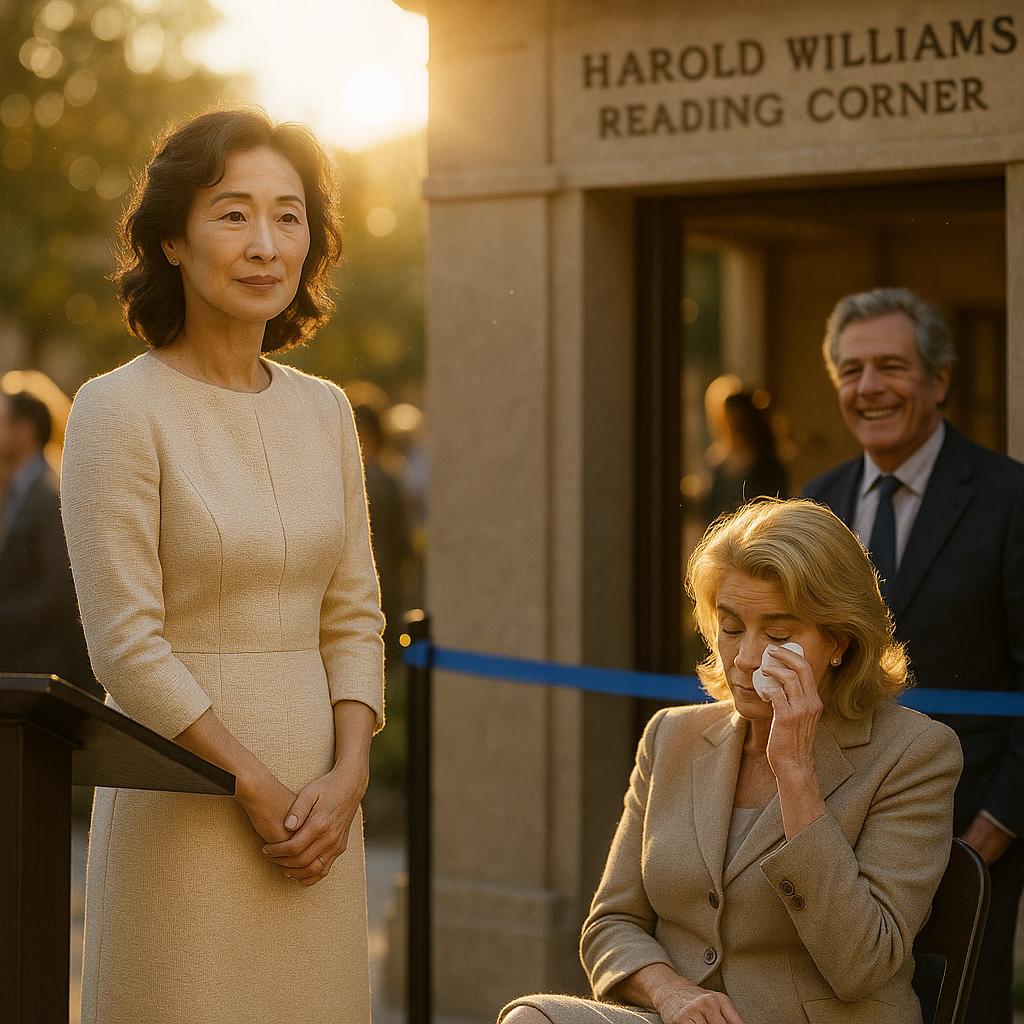 Image by RM AI
Image by RM AI
My Reply to Emily
I stared at Emily's email for three days before I finally sat down to reply. Each time I tried, my fingers would hover over the keyboard, then retreat. 'What would Harold do?' I asked his photo on my nightstand. His smile offered no answers, just that familiar warmth. After a long talk with Diane over chamomile tea and blueberry scones ('You don't owe her forgiveness, but you might owe yourself closure,' she'd said), I finally found the words. My reply wasn't flowery or dramatic—just honest. I acknowledged Emily's therapy journey without dismissing the pain she'd caused. 'I'm not ready for face-to-face meetings,' I wrote, 'but I would welcome updates about Zach and Lily. They are Harold's grandchildren, after all.' I attached a photo of the Harold Williams Reading Corner plaque, explaining how I'd used the contested money to create something meaningful. 'Your father believed knowledge should be shared freely,' I added, hoping she'd understand the subtle message. Before hitting send, I read it aloud to myself three times, making sure it reflected the person I wanted to be—someone who acknowledges hurt without drowning in it. When I finally clicked 'send,' I felt a weight lift that I hadn't realized I'd been carrying. What I couldn't have anticipated was how quickly my phone would ping with a response—or what those three attached photos would reveal about Harold's final days.
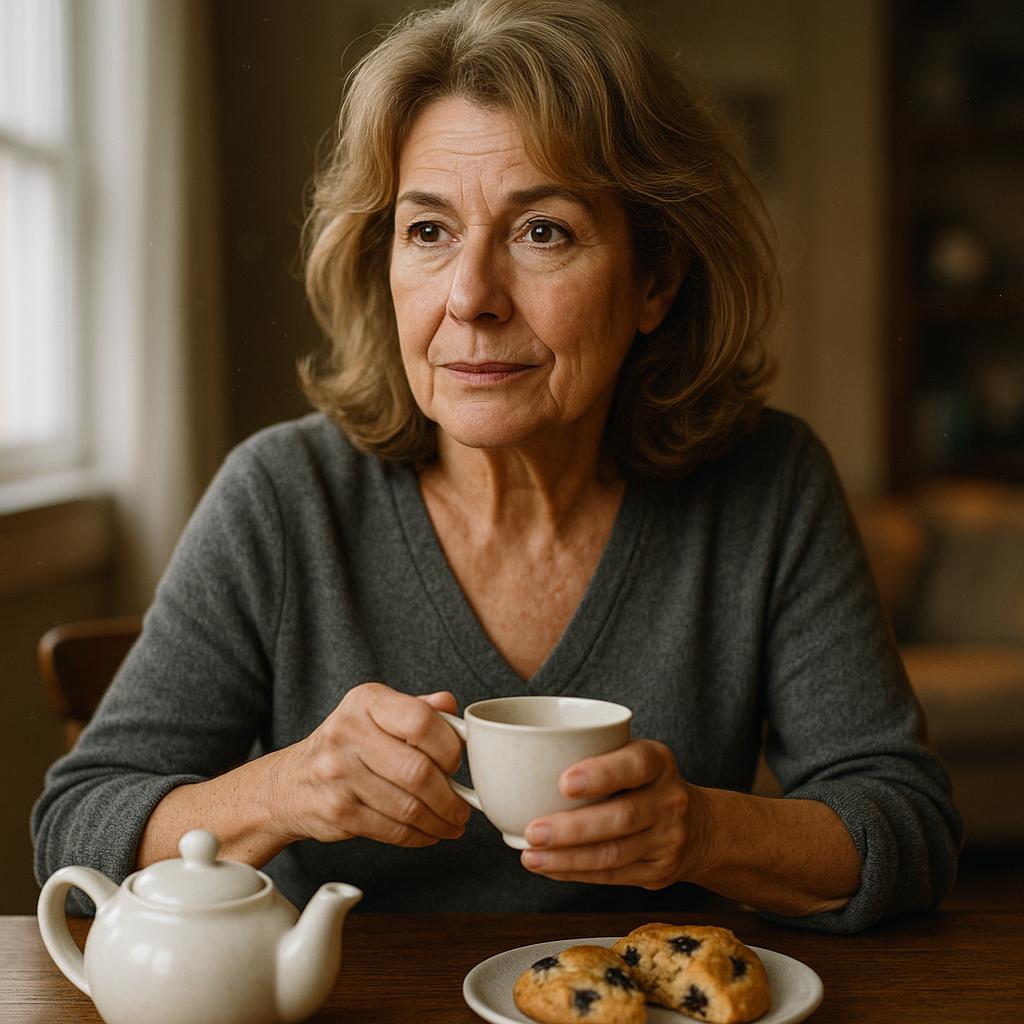 Image by RM AI
Image by RM AI
One Year Later
It's hard to believe it's been a year since I moved to Oakridge, and almost two years since Harold left this world. Sometimes I still reach across the bed in the morning, expecting to find him there. But grief changes shape over time—it doesn't disappear, but it makes room for new growth. My cottage garden is thriving now, filled with divisions from Harold's beloved plants that Diane helped me transport. The tomatoes aren't quite as perfect as his were, but Antonio insists they have 'character.' The Harold Williams Reading Corner has become the heart of our little library, with Ms. Chen telling me it's the most used section in the building. I volunteer three days a week now, and the children's faces light up when I do the dragon voice during story time. The mysterious $48,750 account remains open—not as a reminder of betrayal anymore, but as a monument to finding my voice. Every statement that arrives is like a badge of courage, proof that I stopped being a doormat and started asking questions. Last night, as I sat on my porch watching fireflies dance above the garden, Harold's leather journal open beside me, I realized something profound: people always say money changes you, but I think it just reveals who you truly are. And sometimes, if you're paying attention, it shows you who you can become. What I never expected was that Emily's latest email would test this newfound strength in ways I couldn't have imagined.
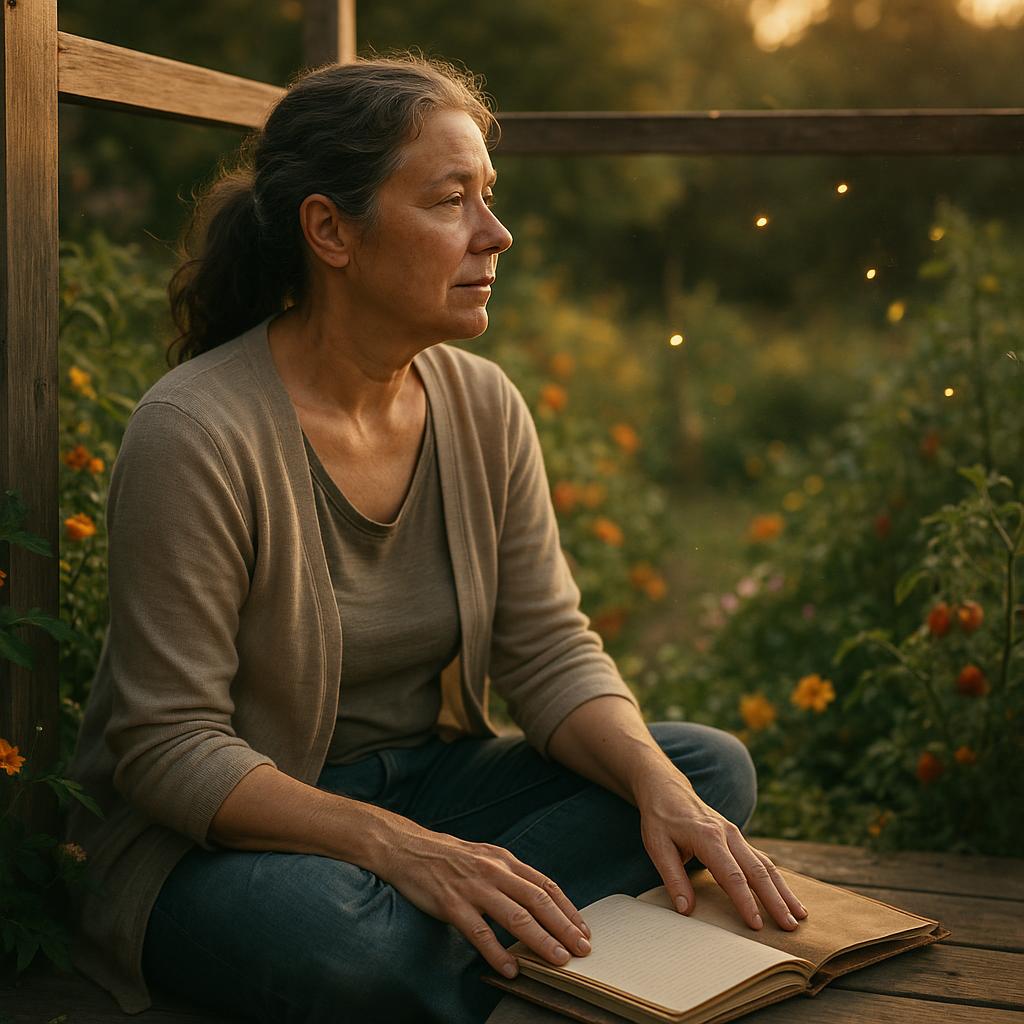 Image by RM AI
Image by RM AI
KEEP ON READING

20 Longest Championship Droughts in Sport History
Will the Guardians Ever Win a Championship?. Being a sports…
By Rob Shapiro Nov 12, 2025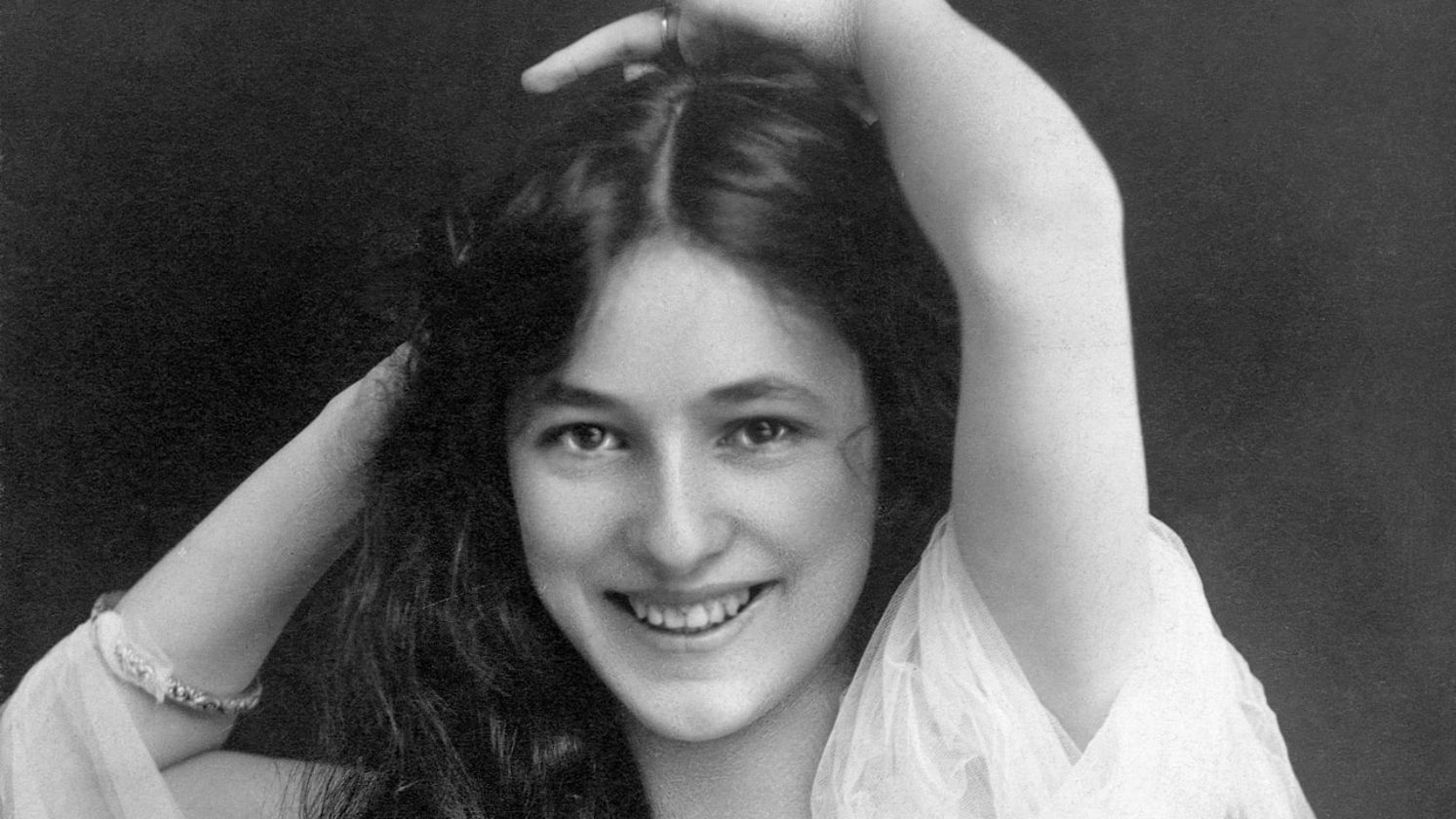
The Love Triangle That Ended In The Trial Of The…
Evelyn Nesbit was a 20th-Century Helen of Troy. Considered the…
By Ashley Bast Nov 11, 2025
Laughter Isn’t The Best Medicine. How Hysteria Took Over A…
OurWhisky Foundation on UnsplashOn January 30th, 1962, an all-girls boarding…
By Breanna Schnurr Nov 11, 2025
When Robert Gould Shaw Fell in Battle, No One Retrieved…
Whipple Studio, 1847 - 1873 on WikimediaColonel Robert Gould Shaw…
By Cameron Dick Nov 11, 2025
10 Countries With The Lamest Origin Stories & 10 With…
Some Nations Rose In Glory—Others In Paperwork. Not all nations…
By Emilie Richardson-Dupuis Nov 11, 2025
It’s Raining Meat In Kentucky—At Least, It Was In 1876
In 1876, the residents of Olympia Springs, Kentucky, were left…
By David Davidovic Nov 7, 2025
